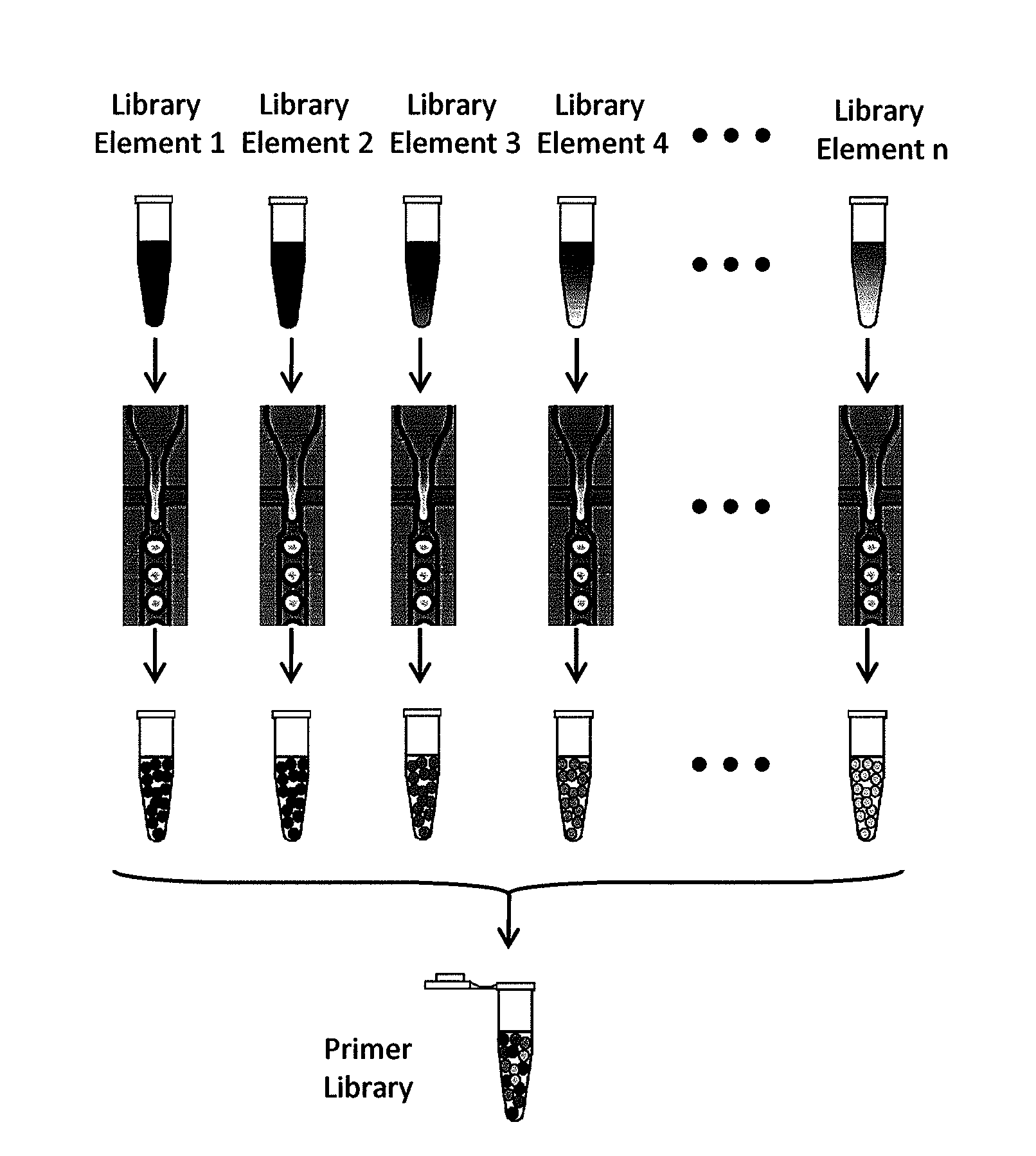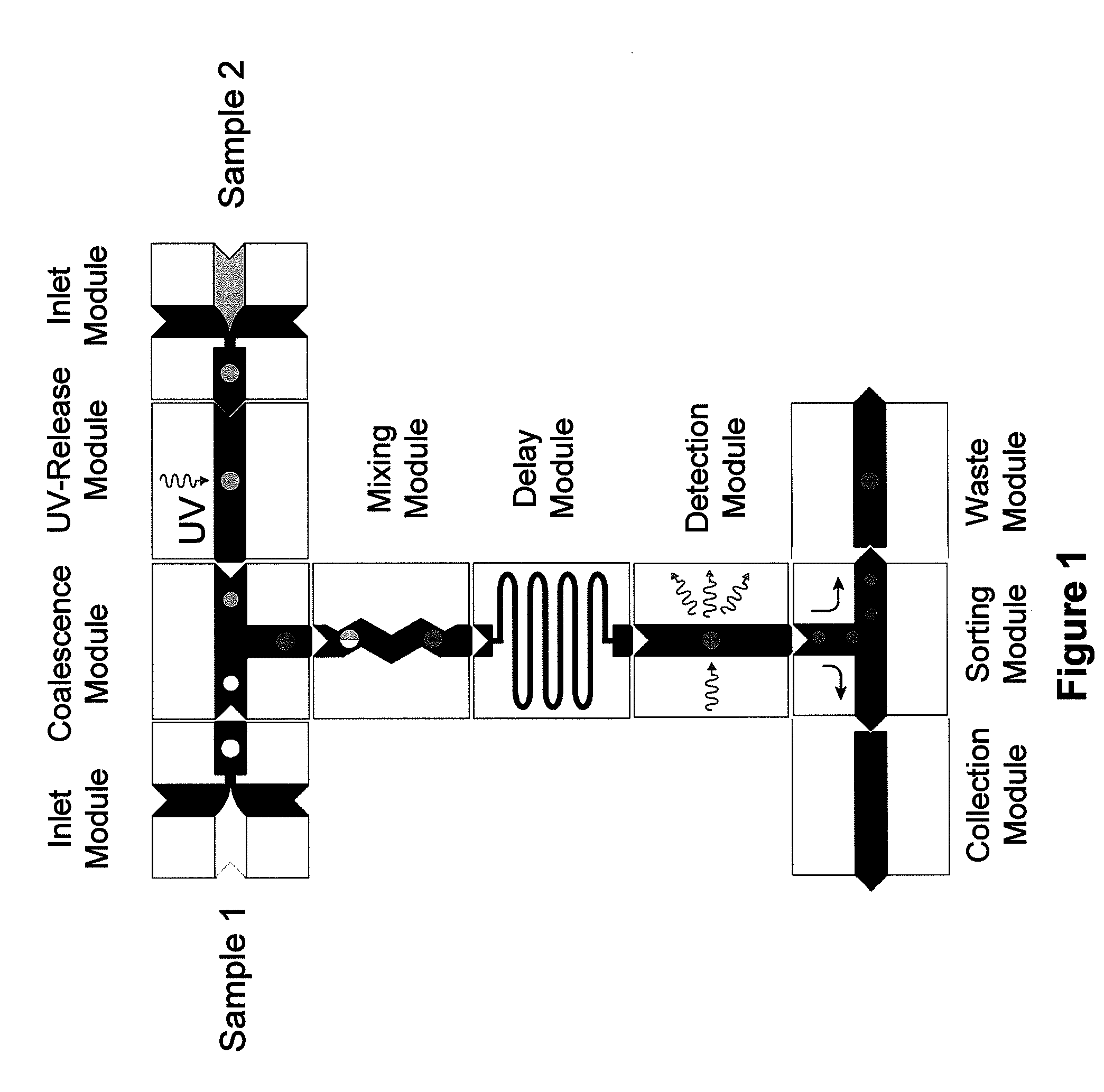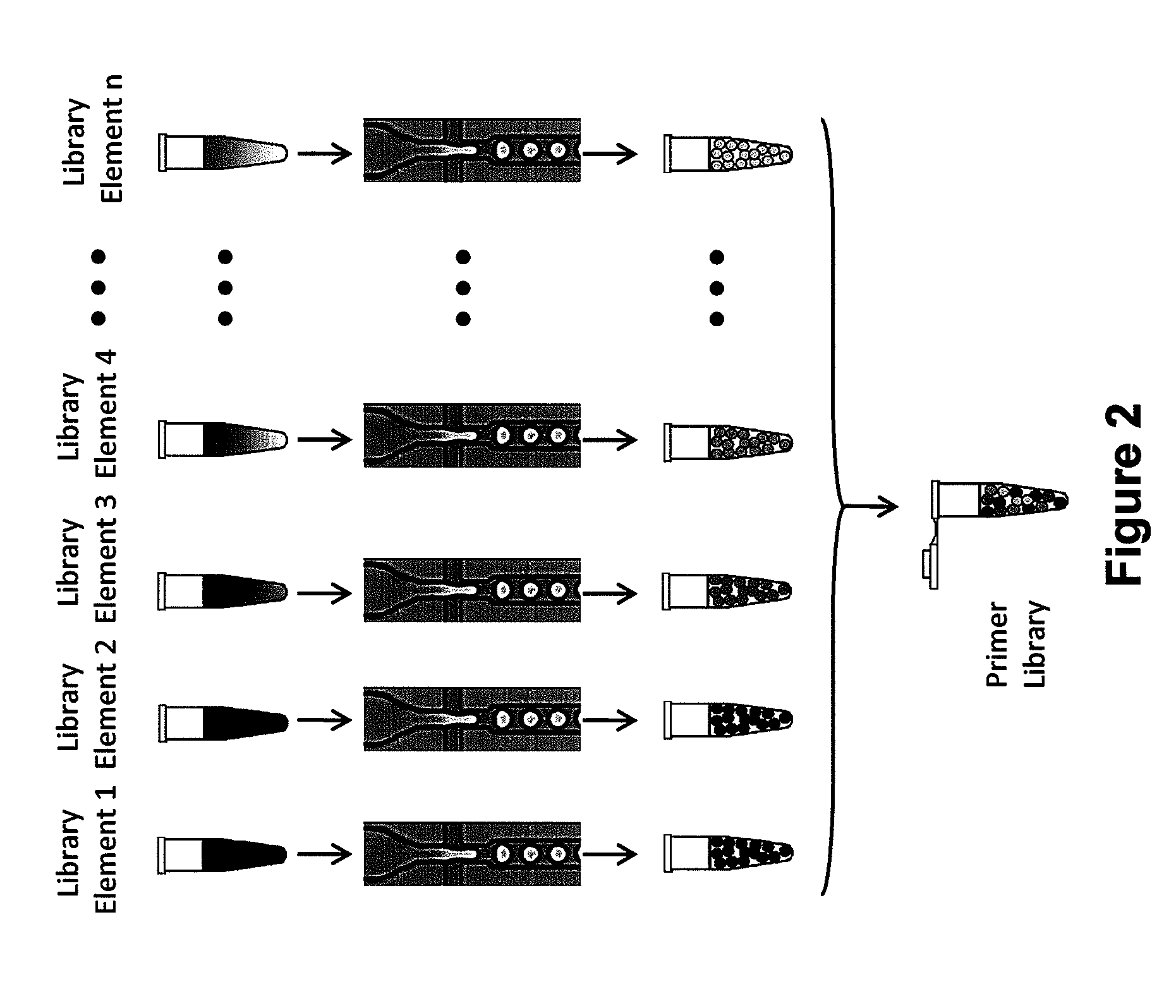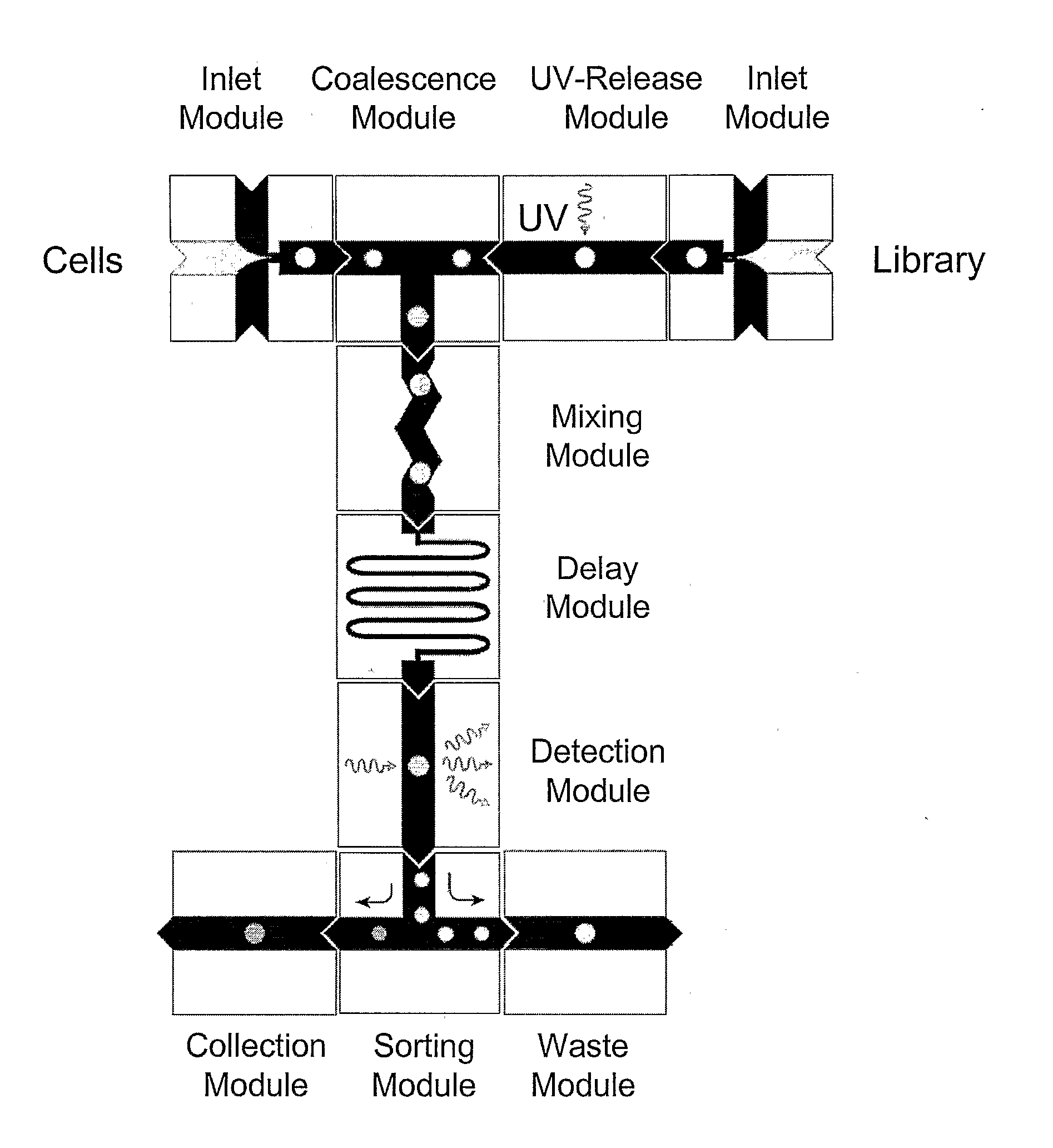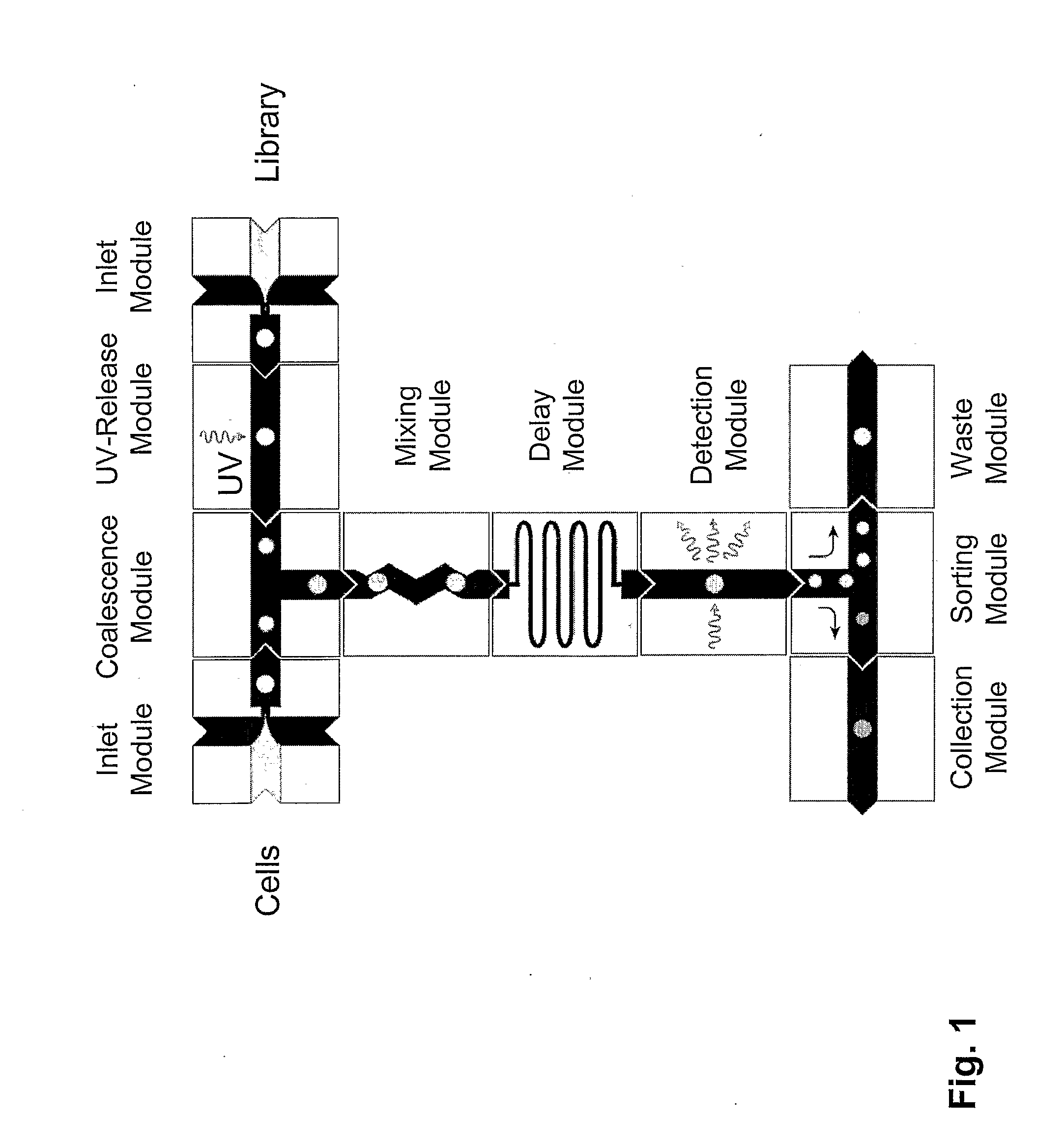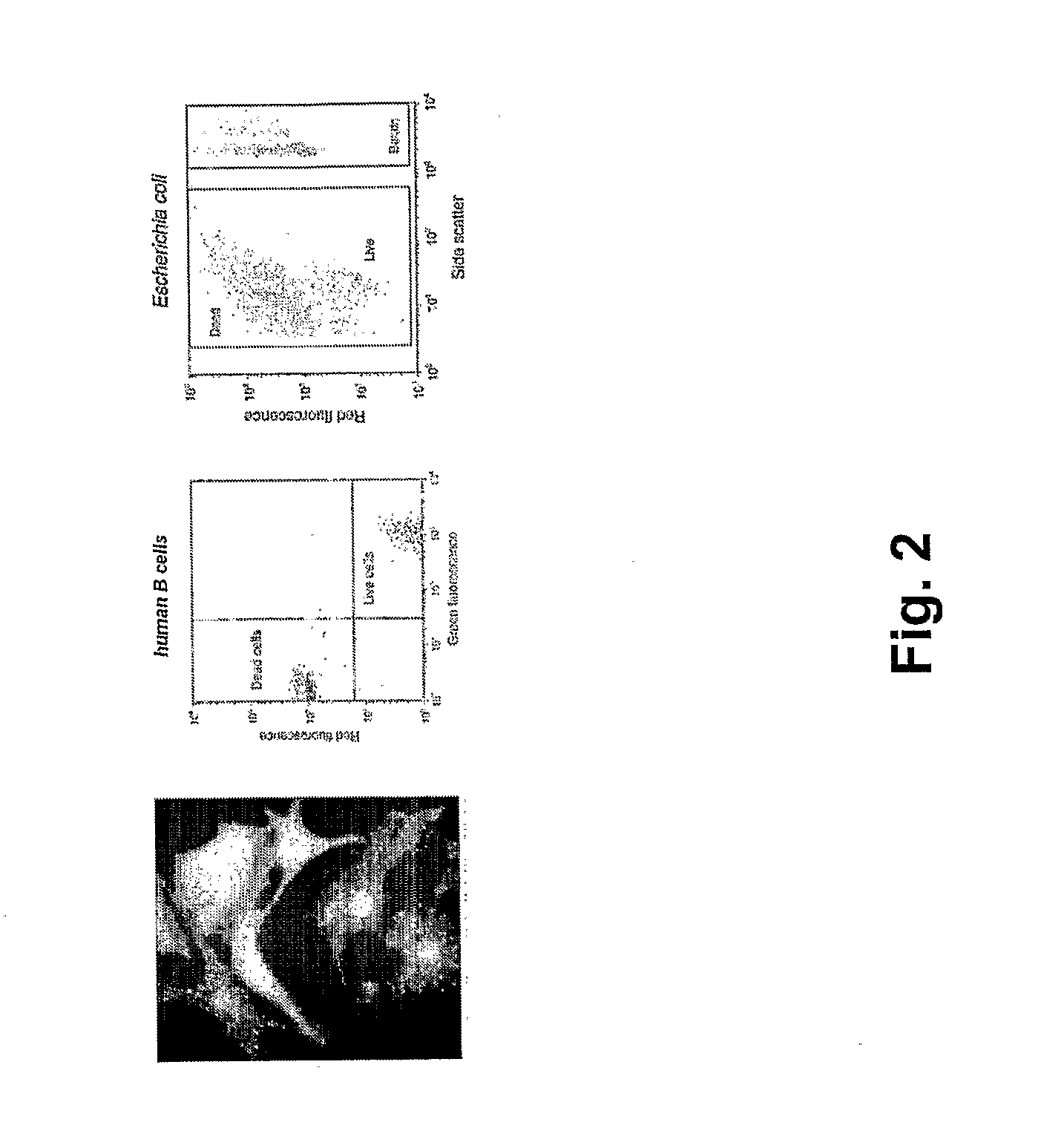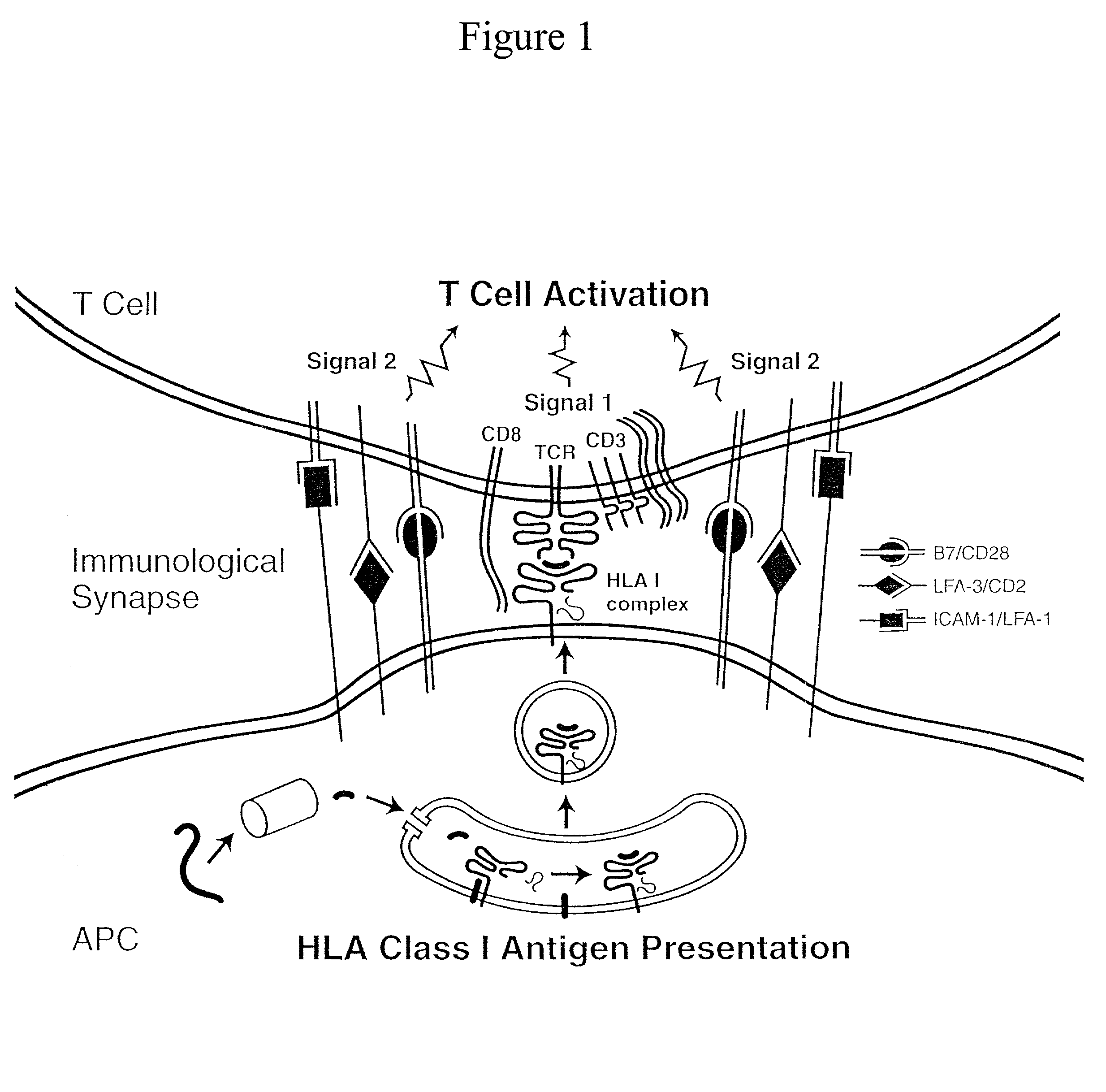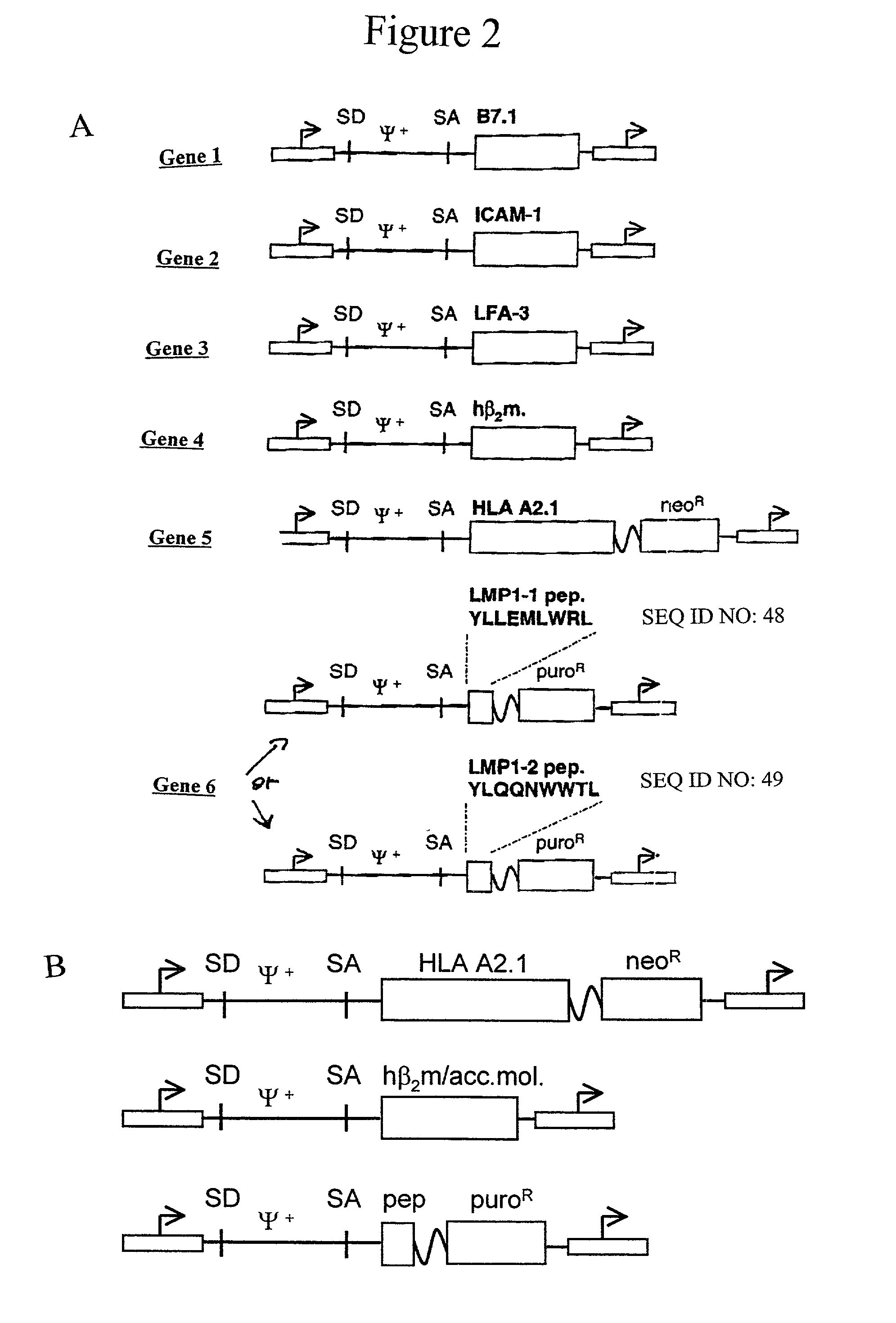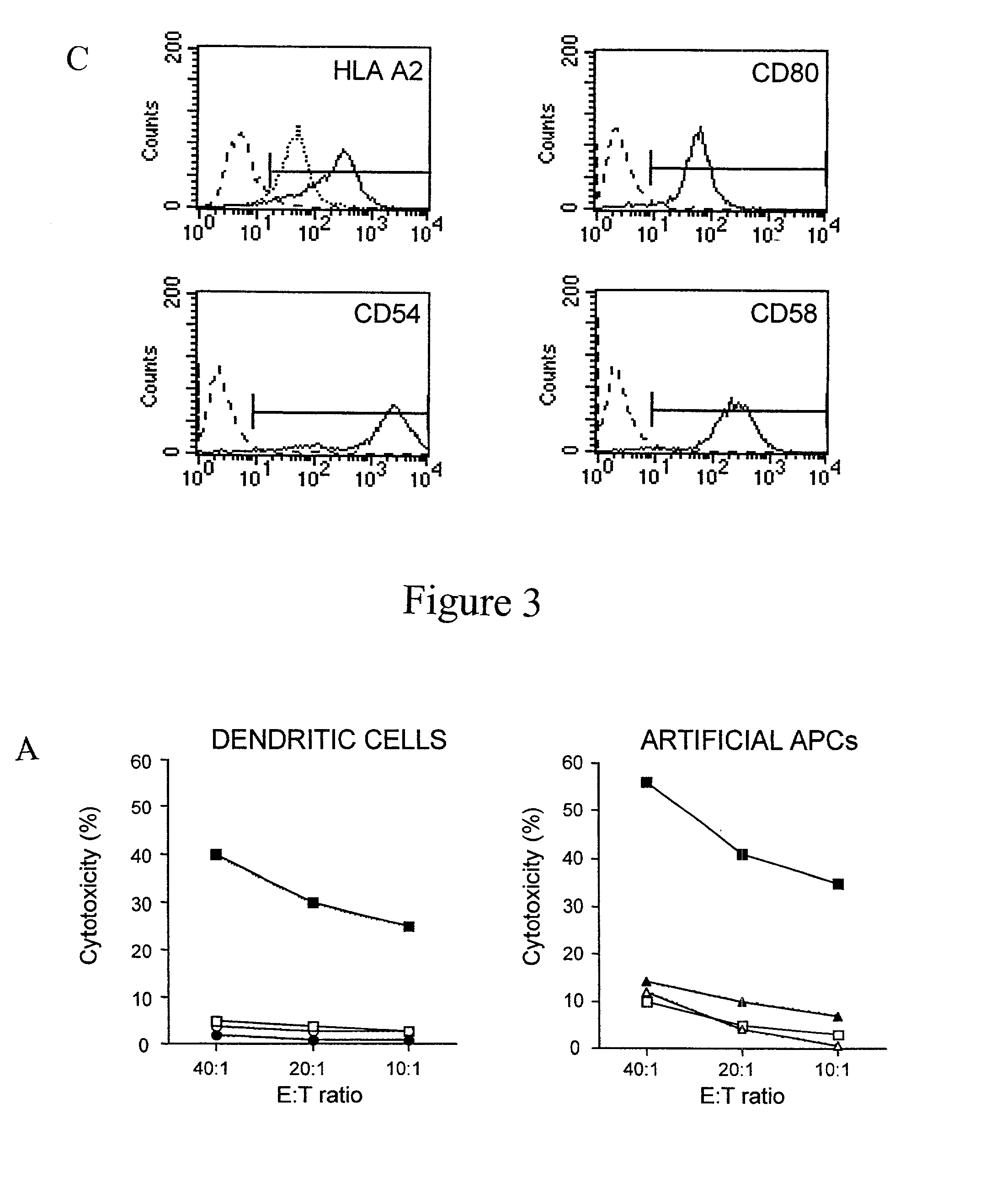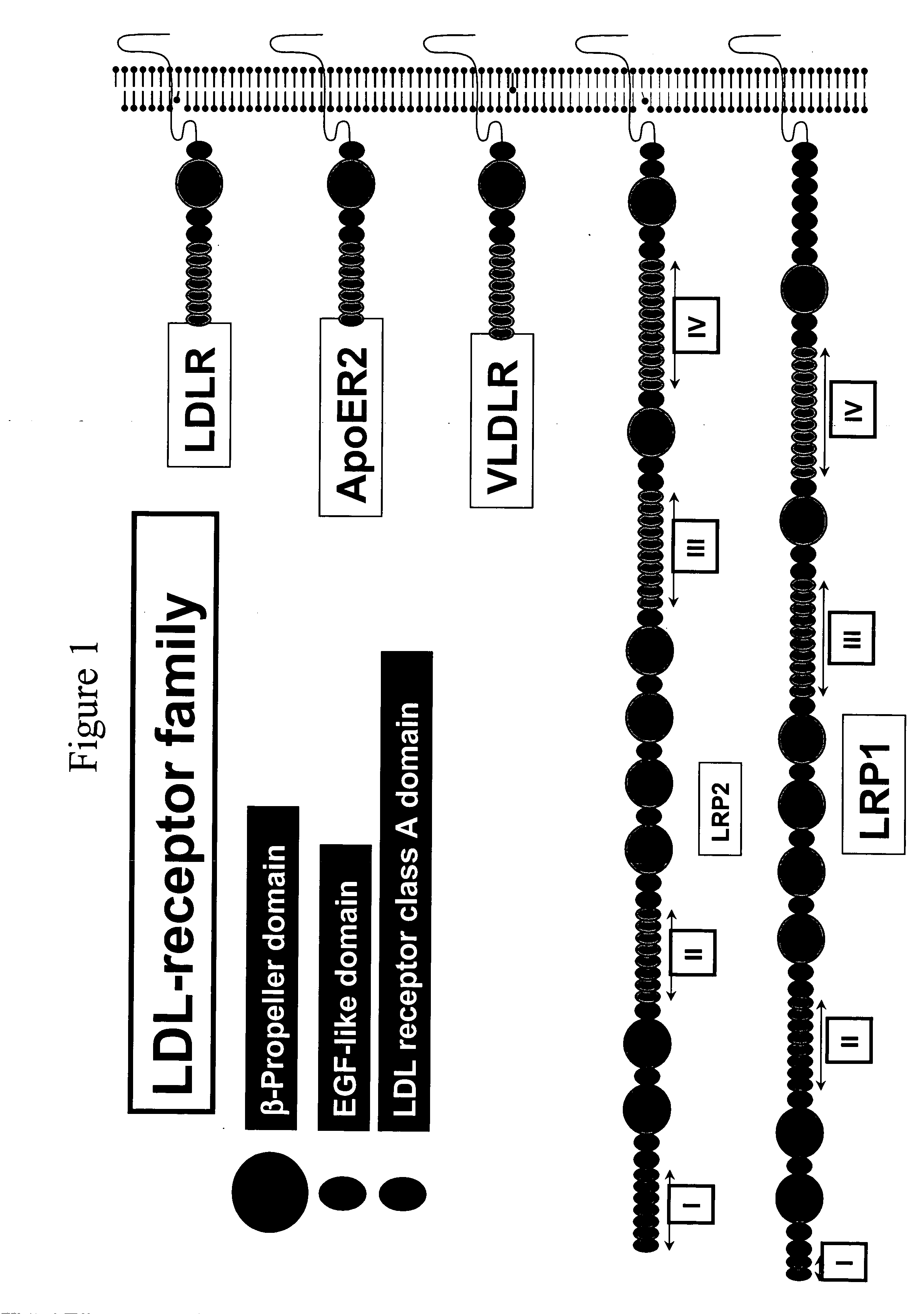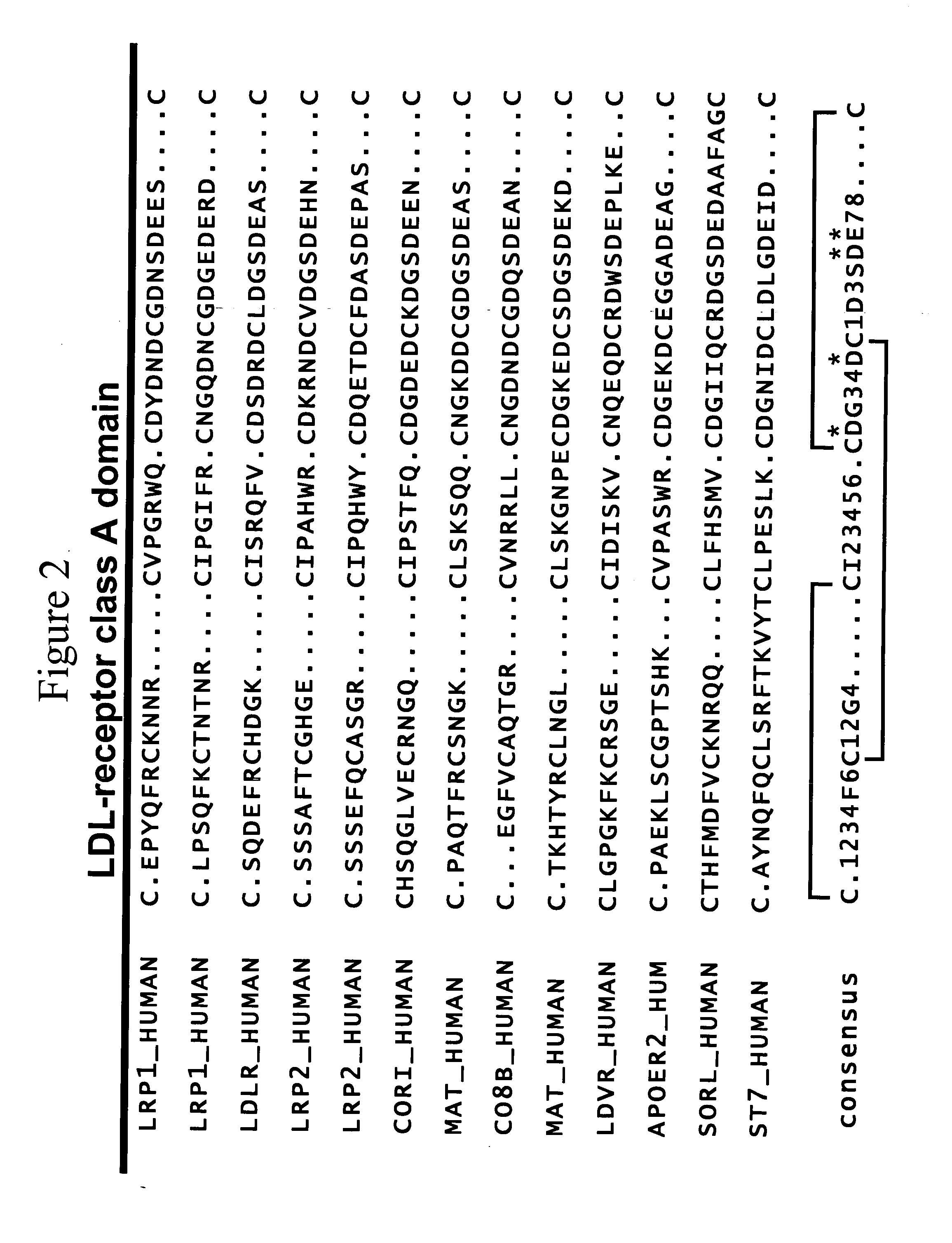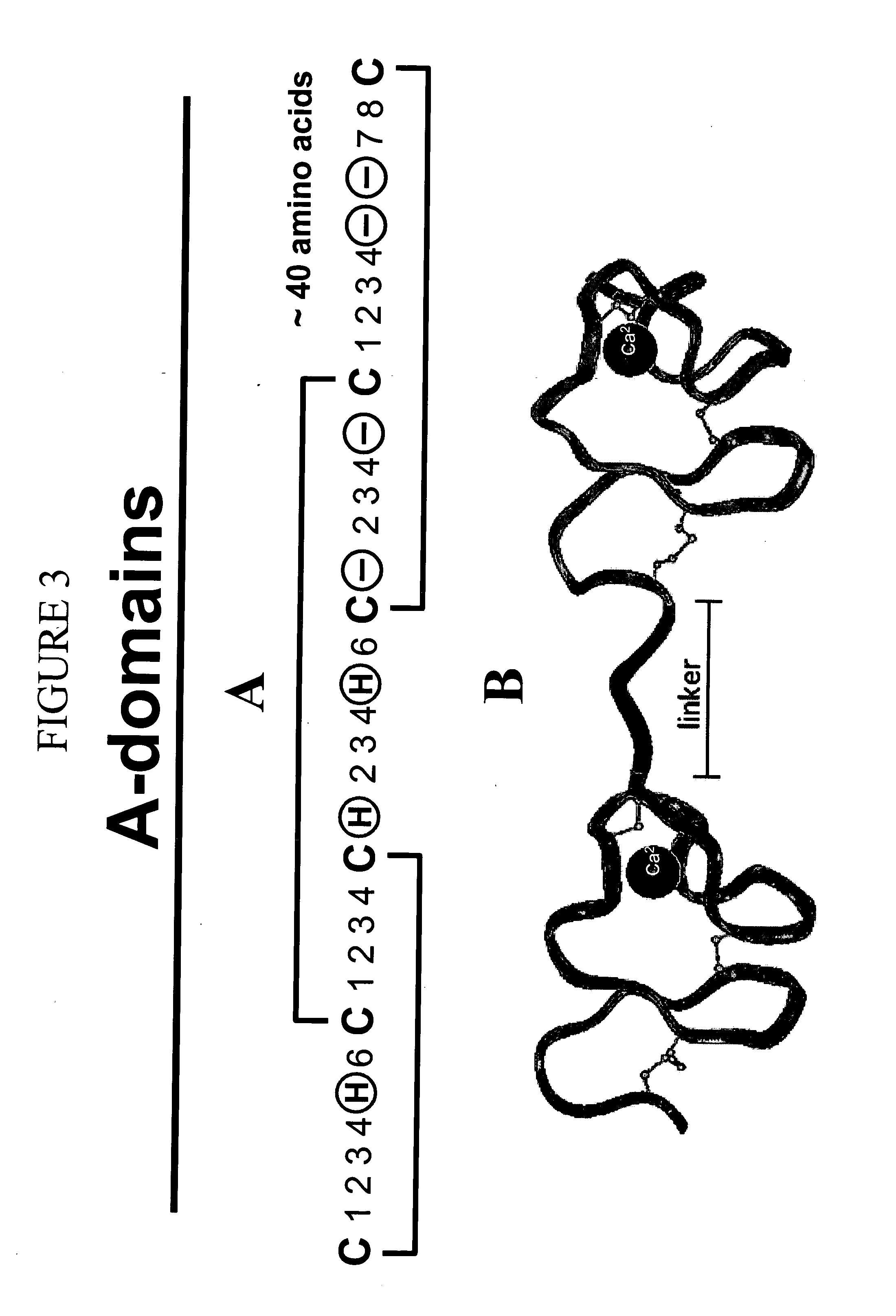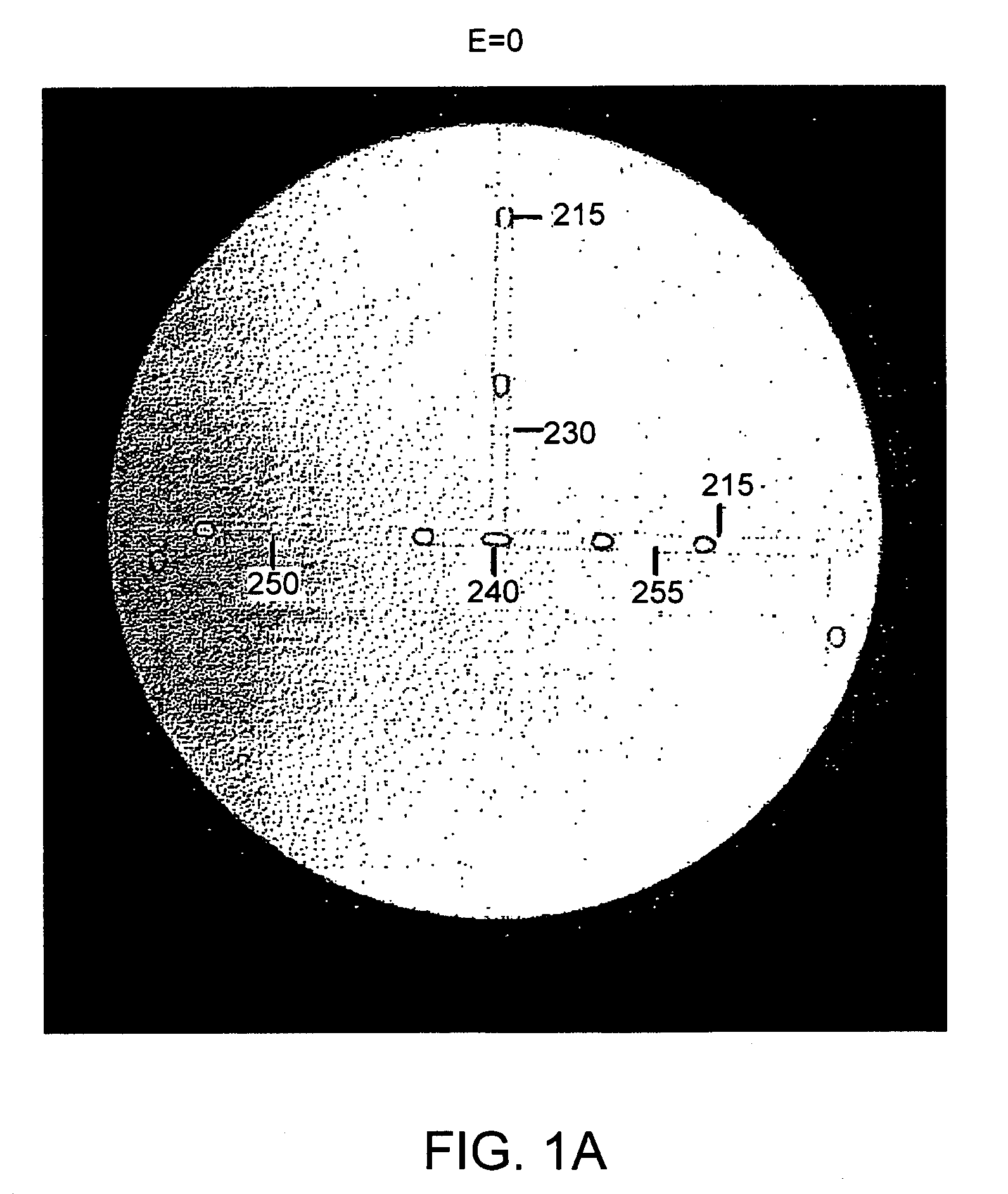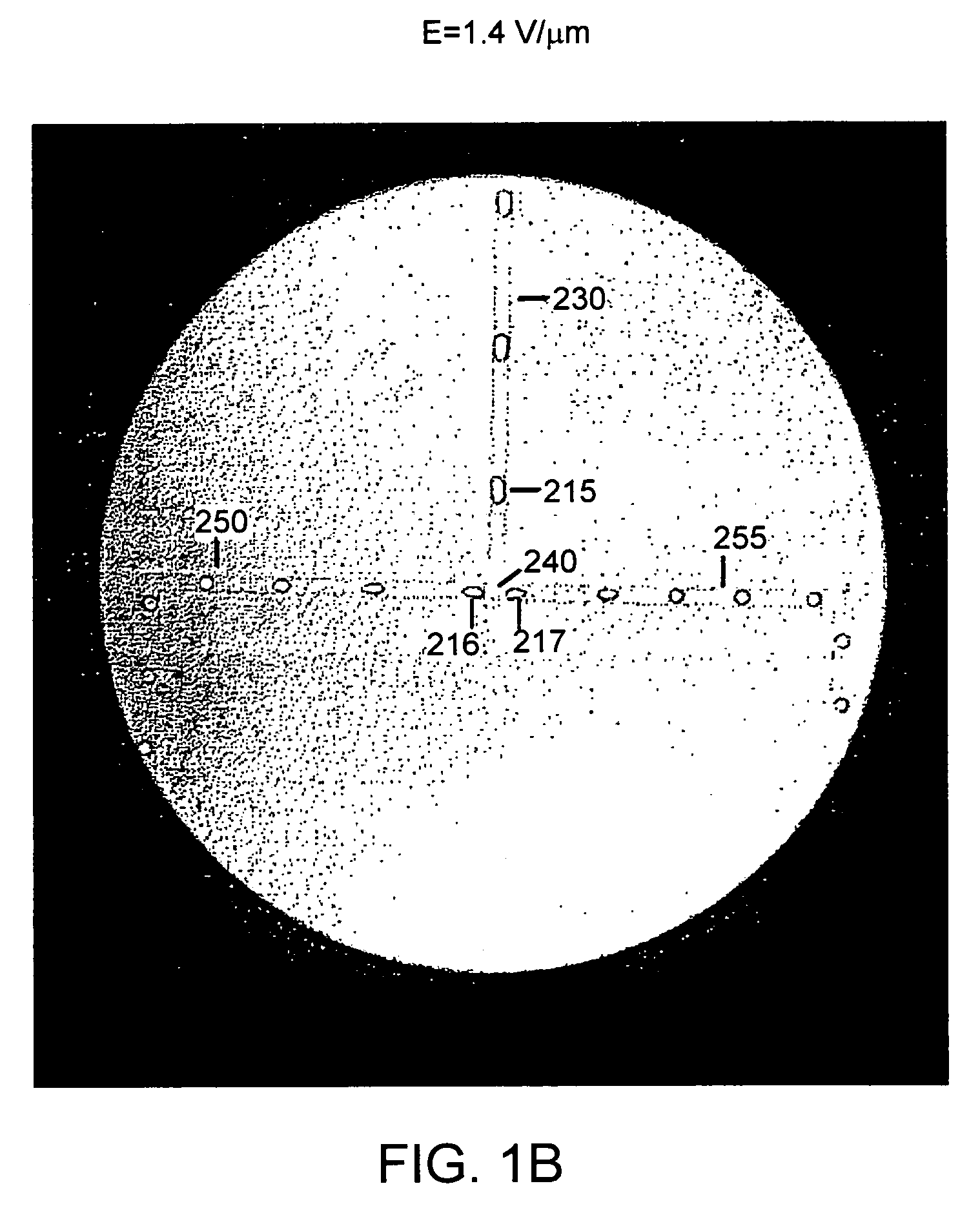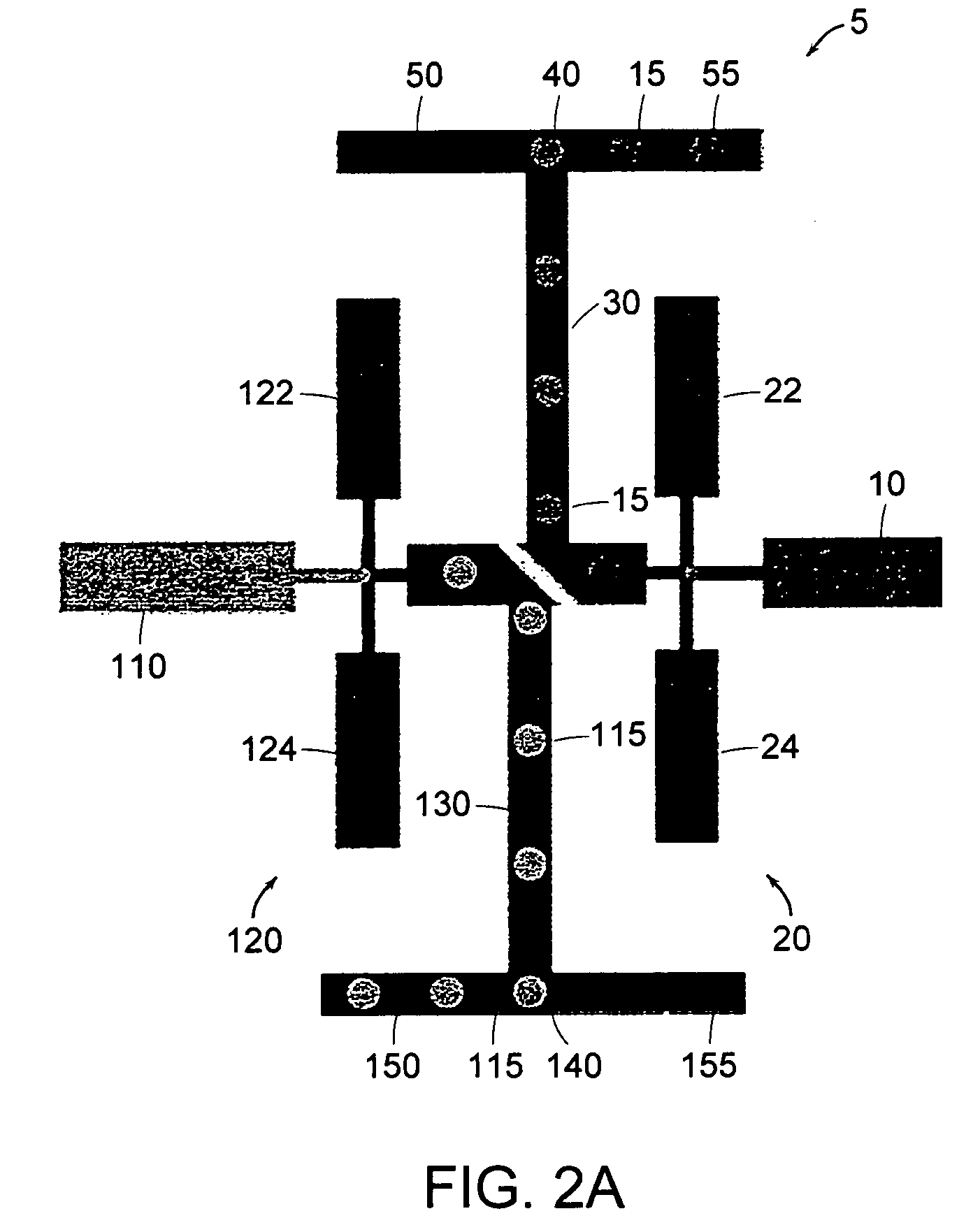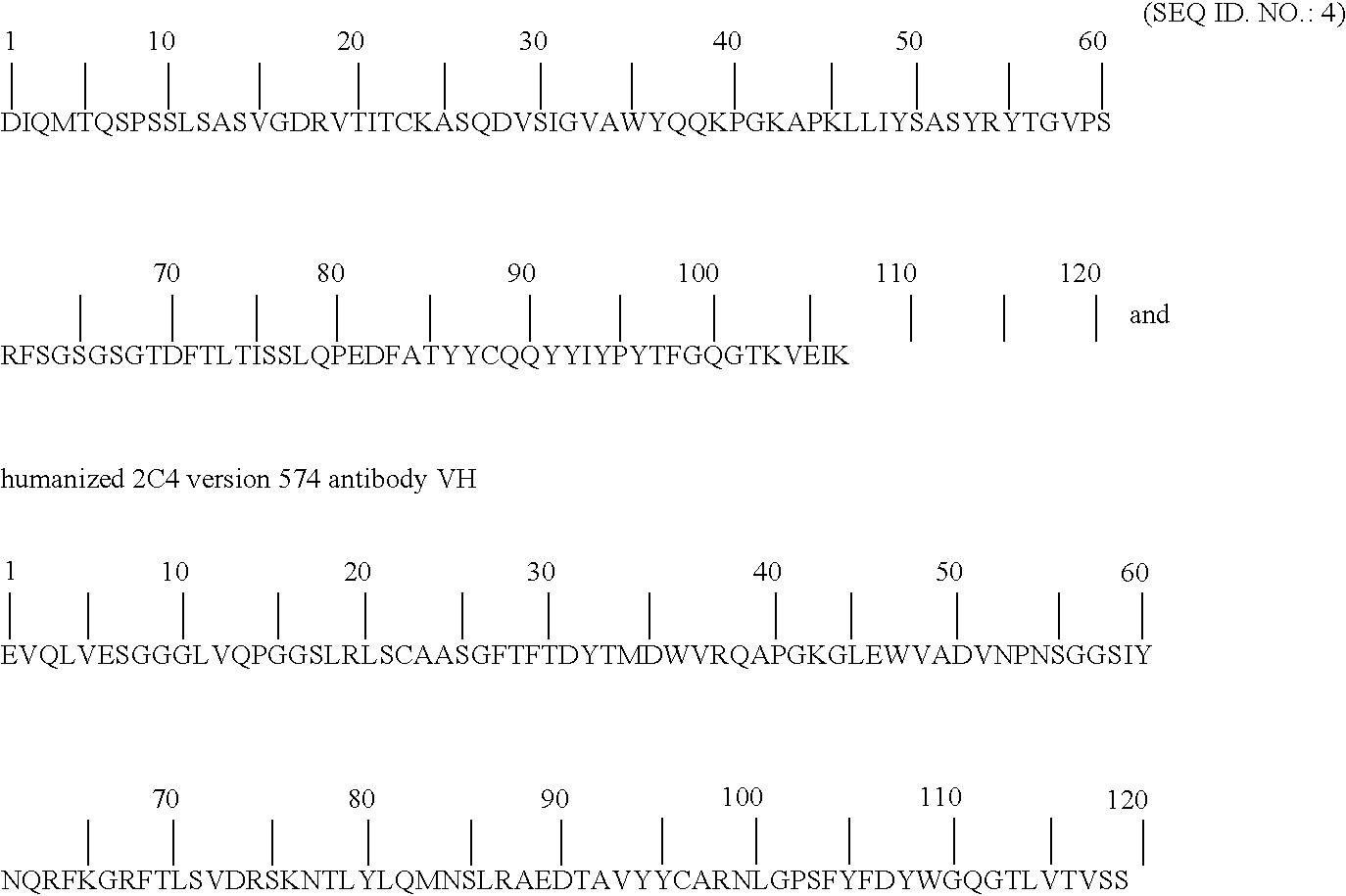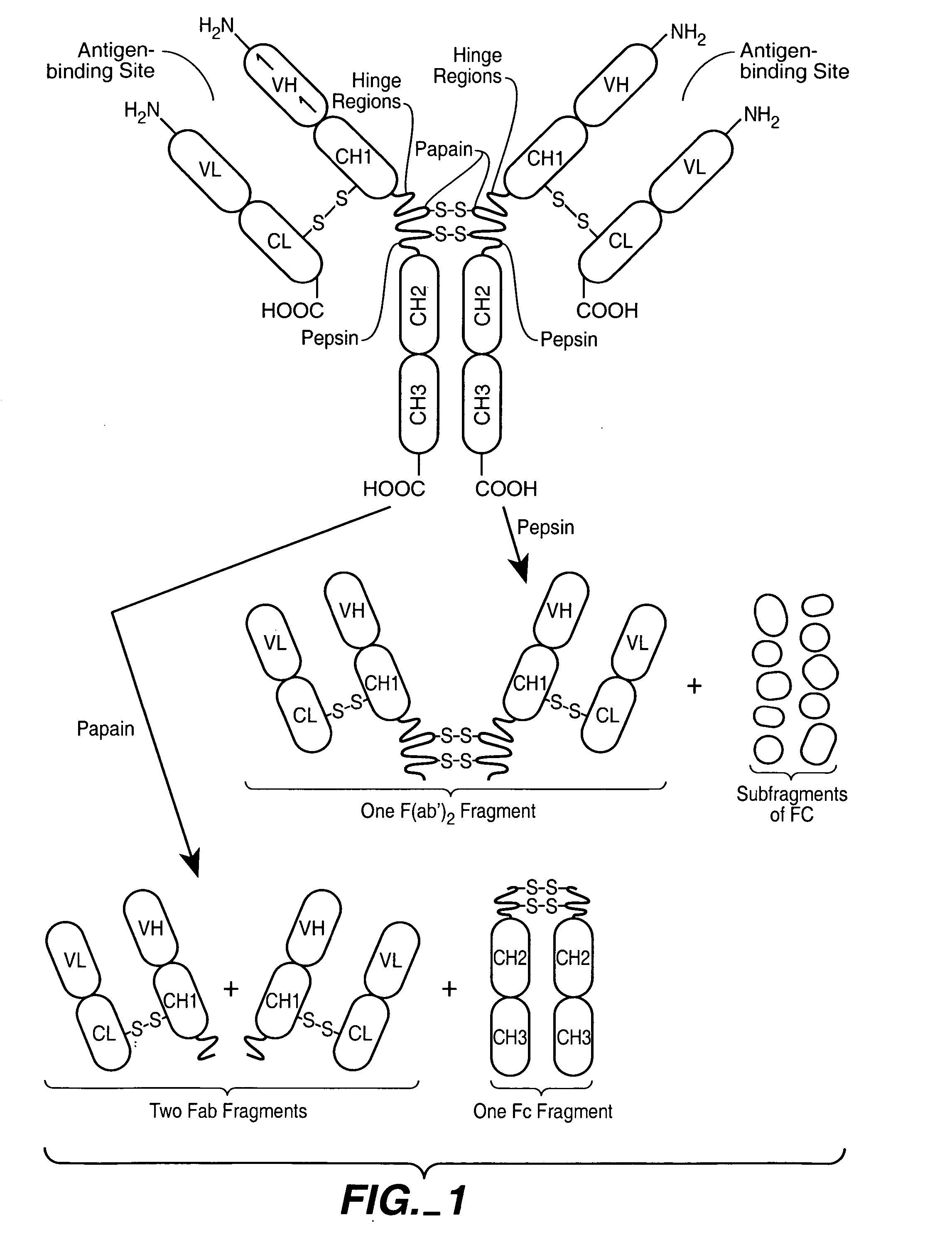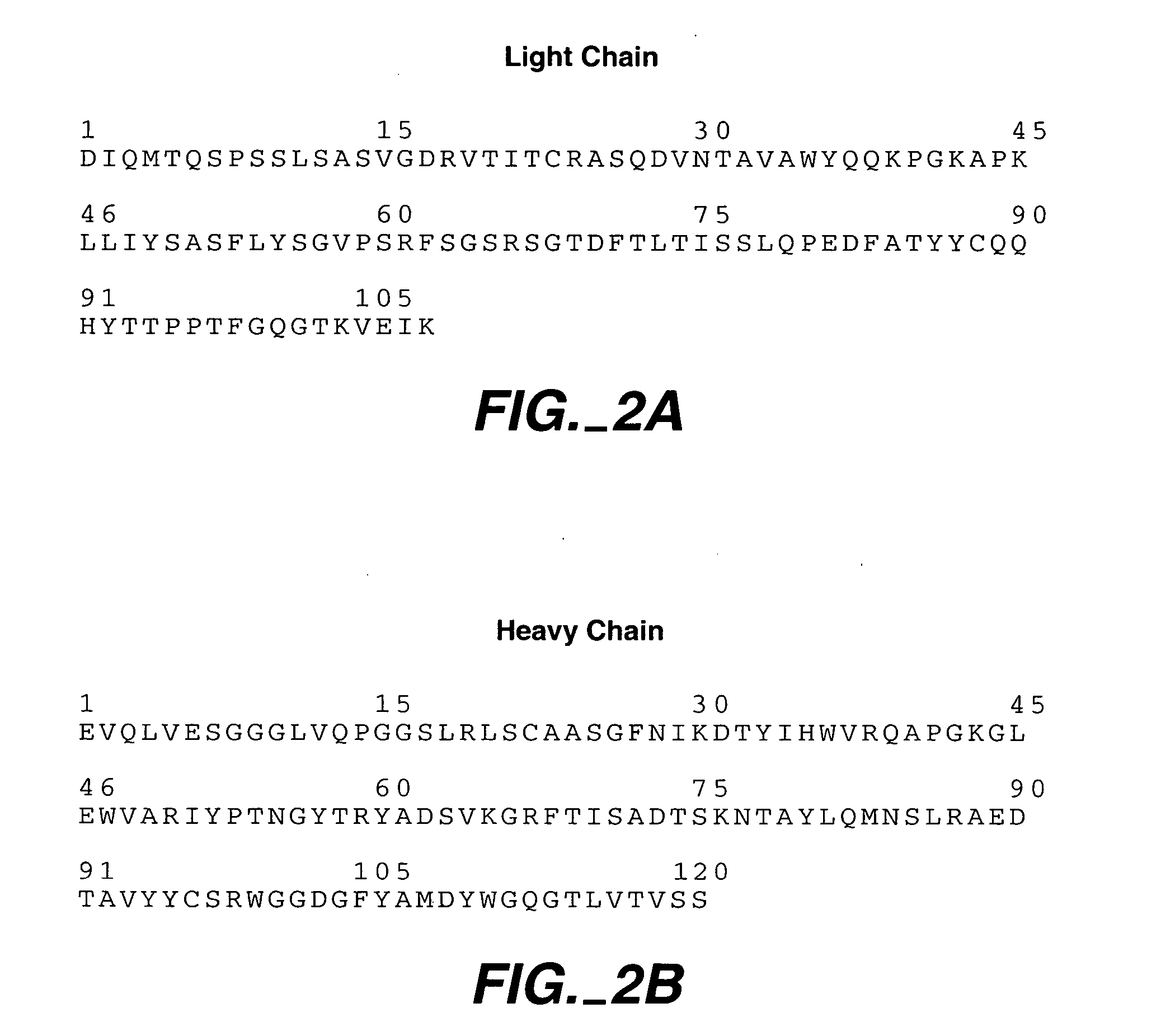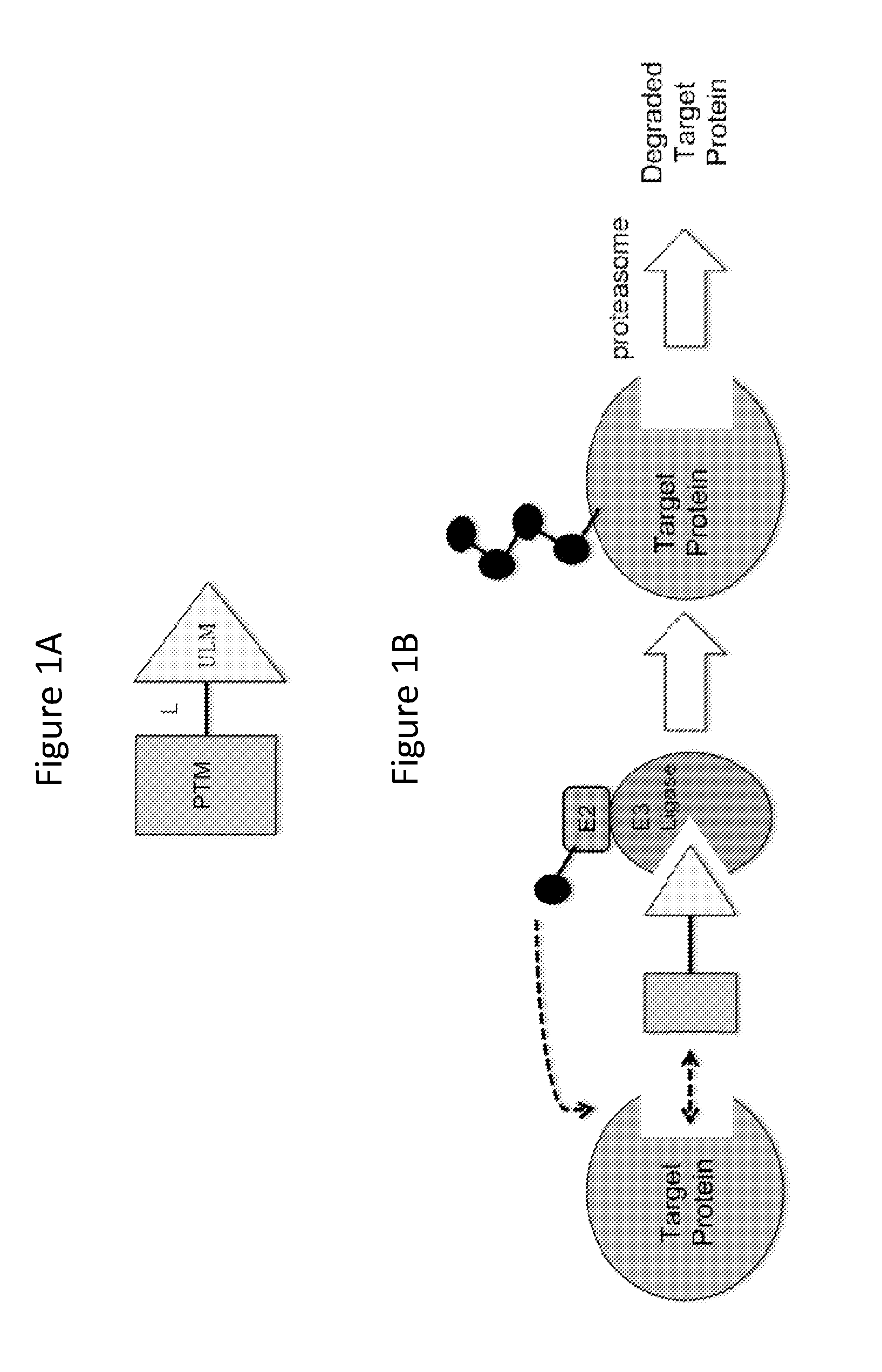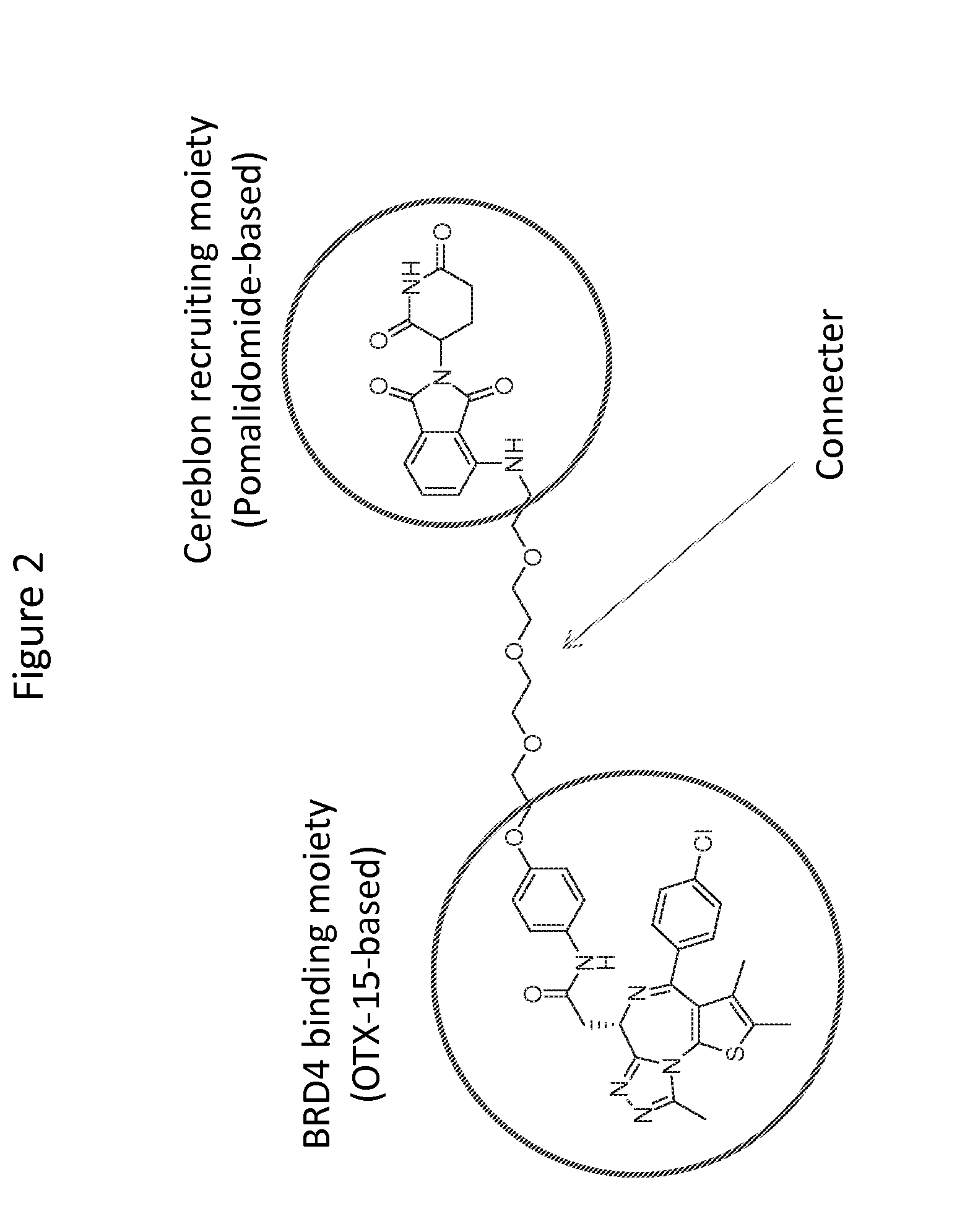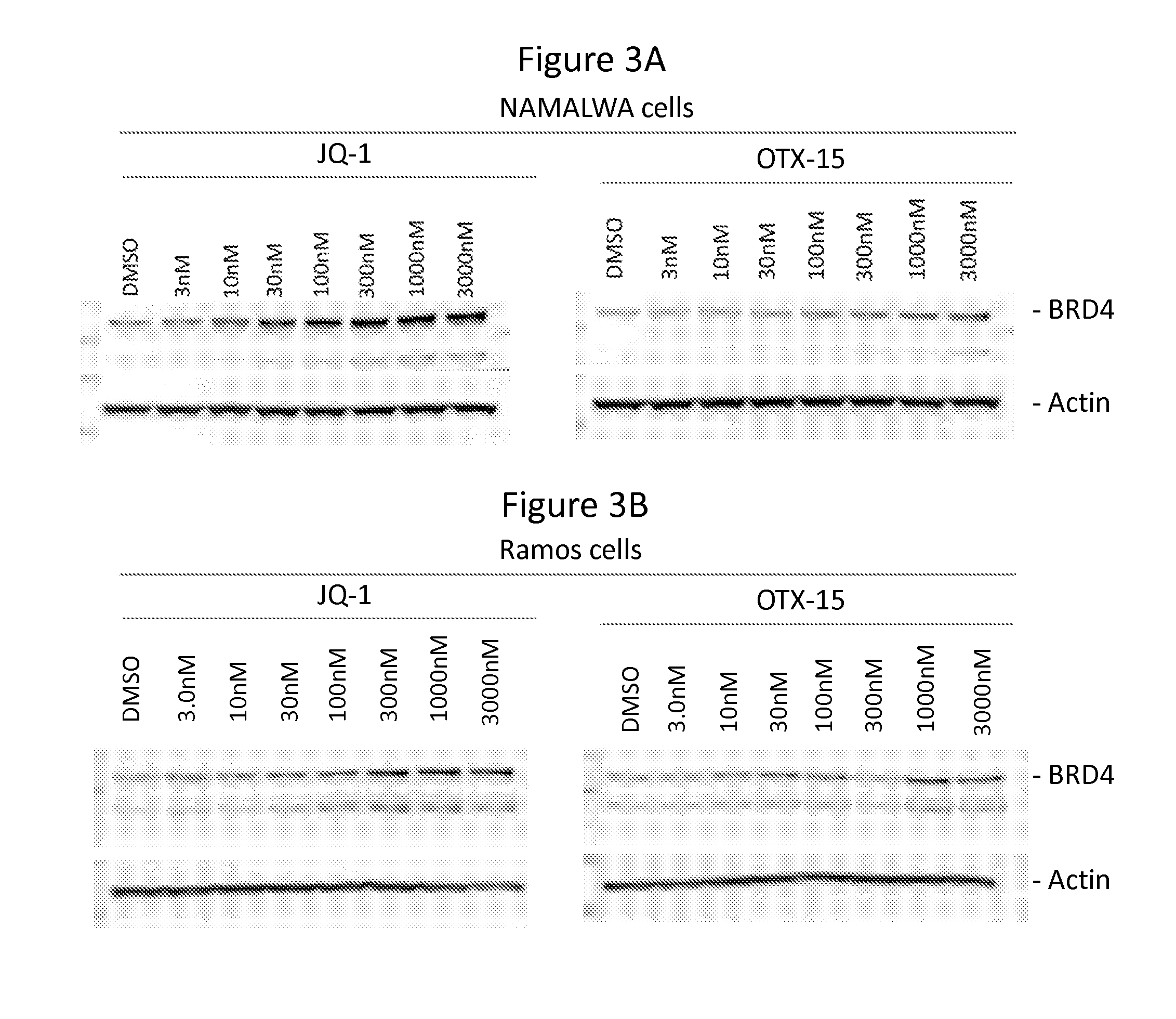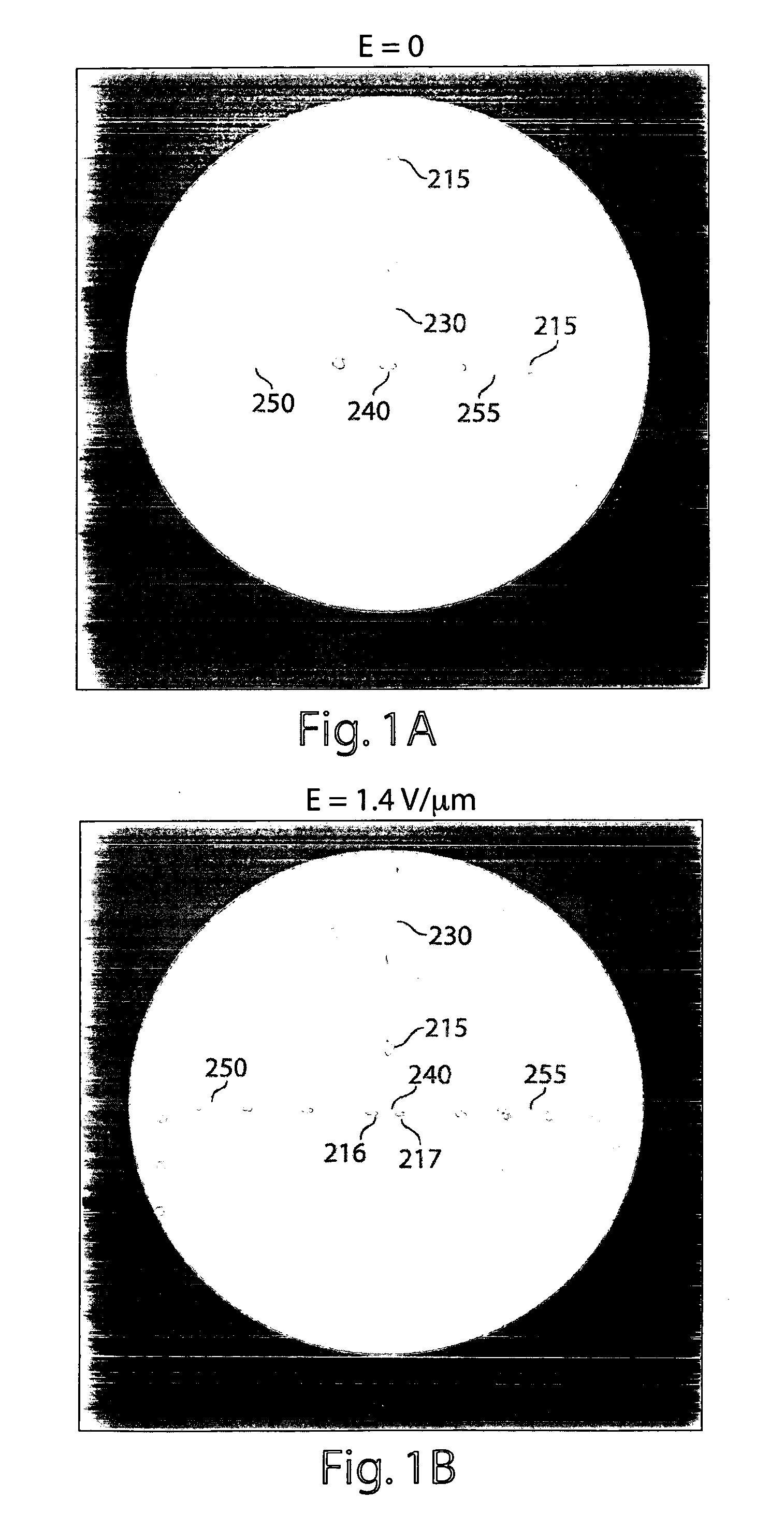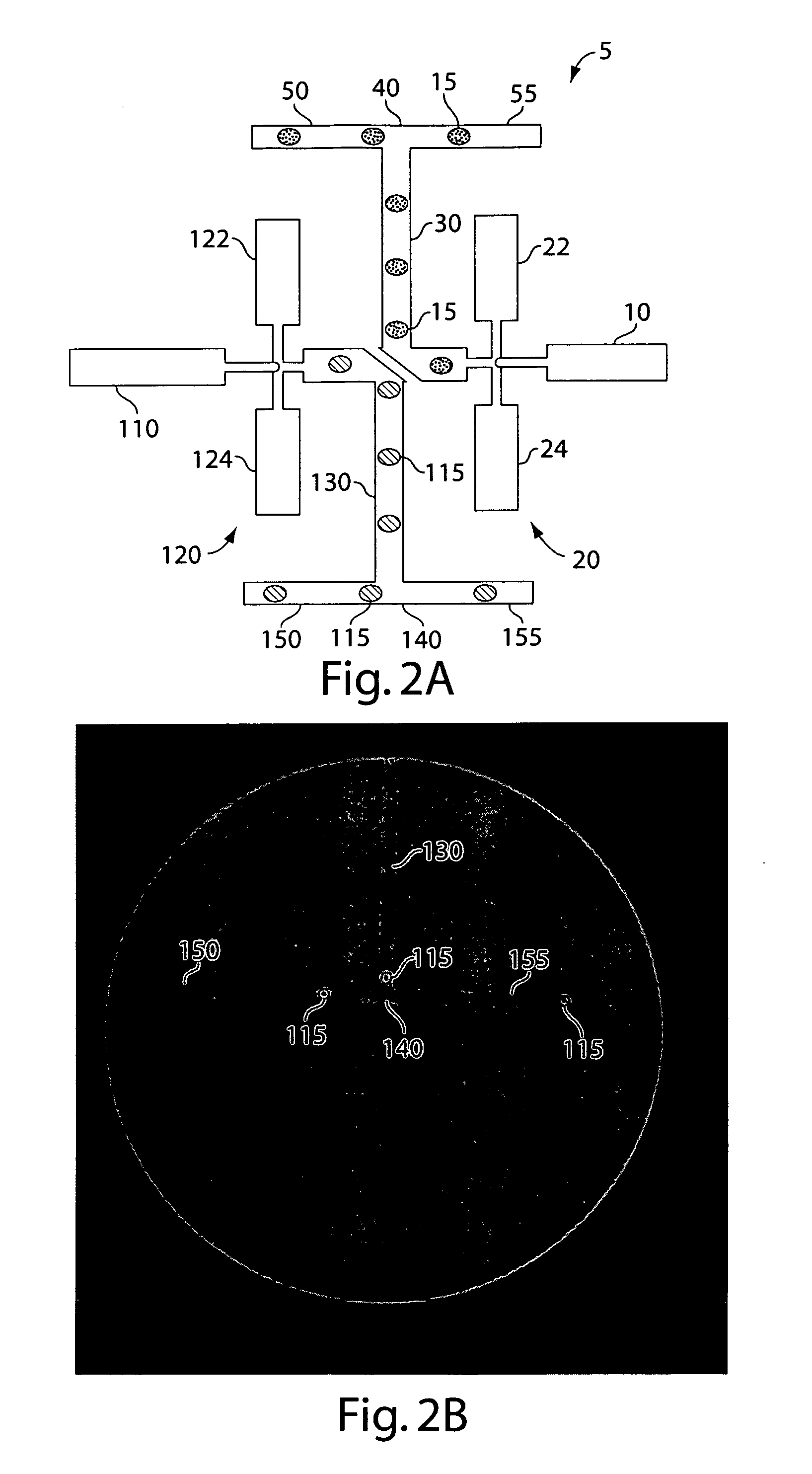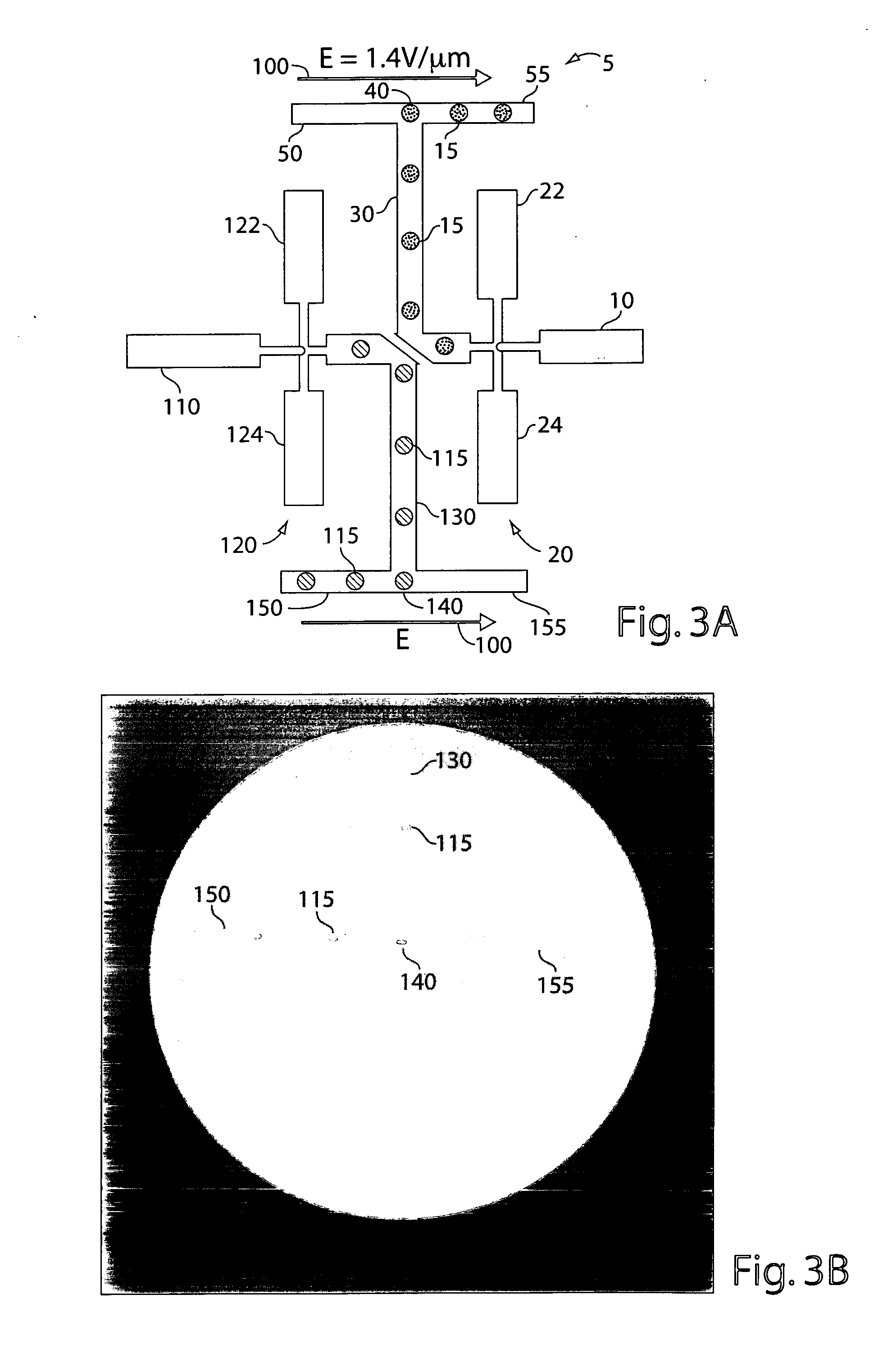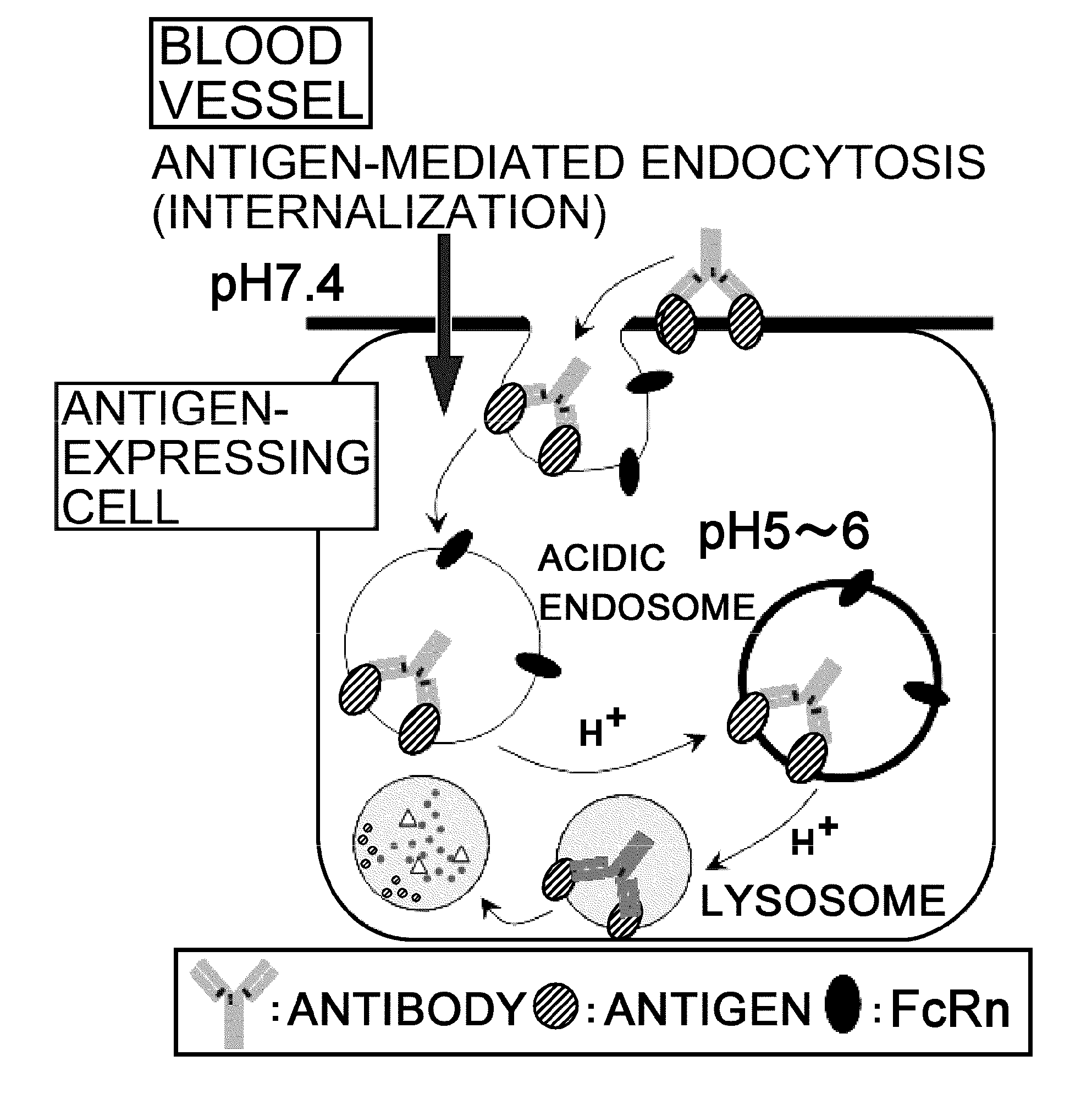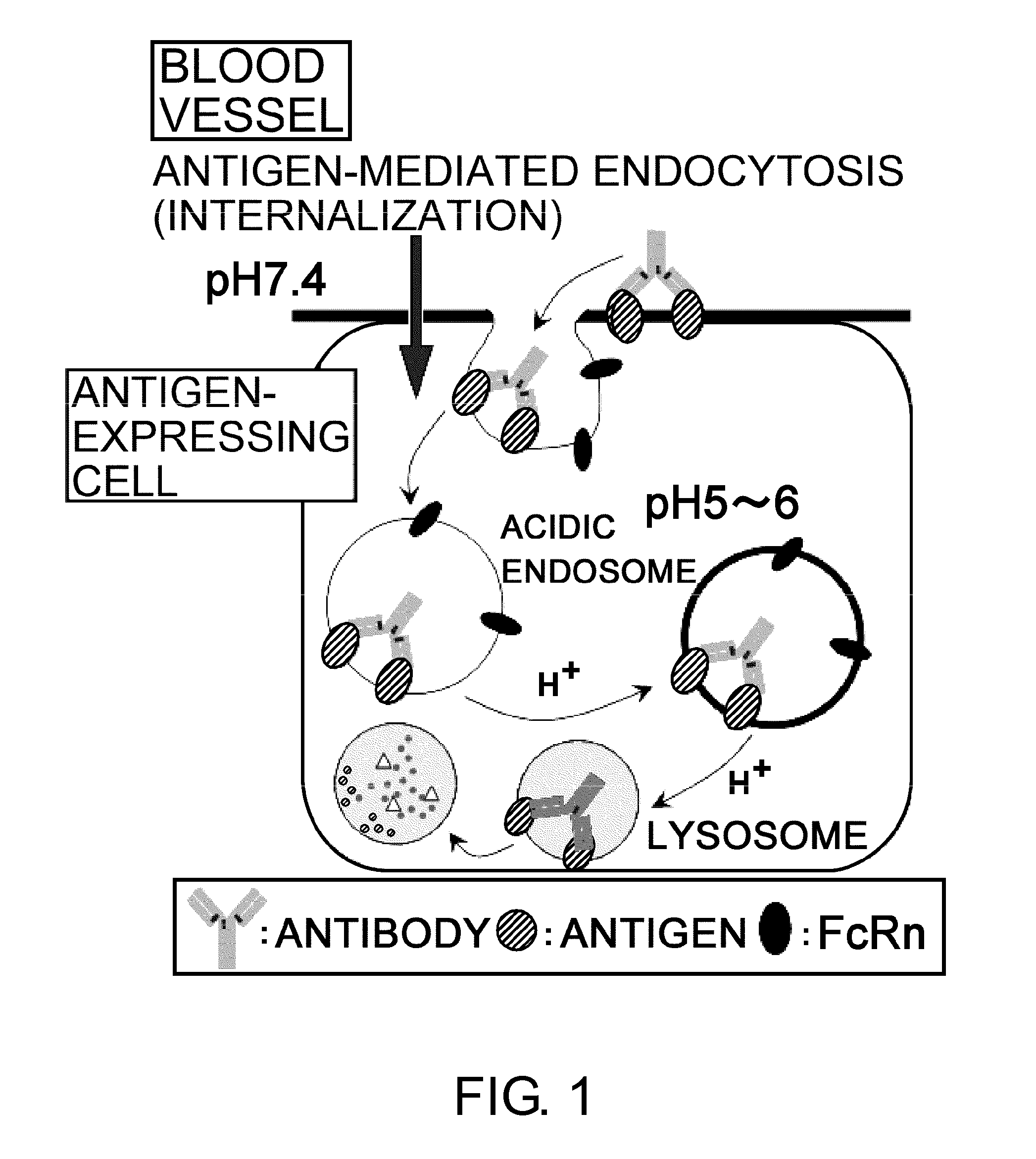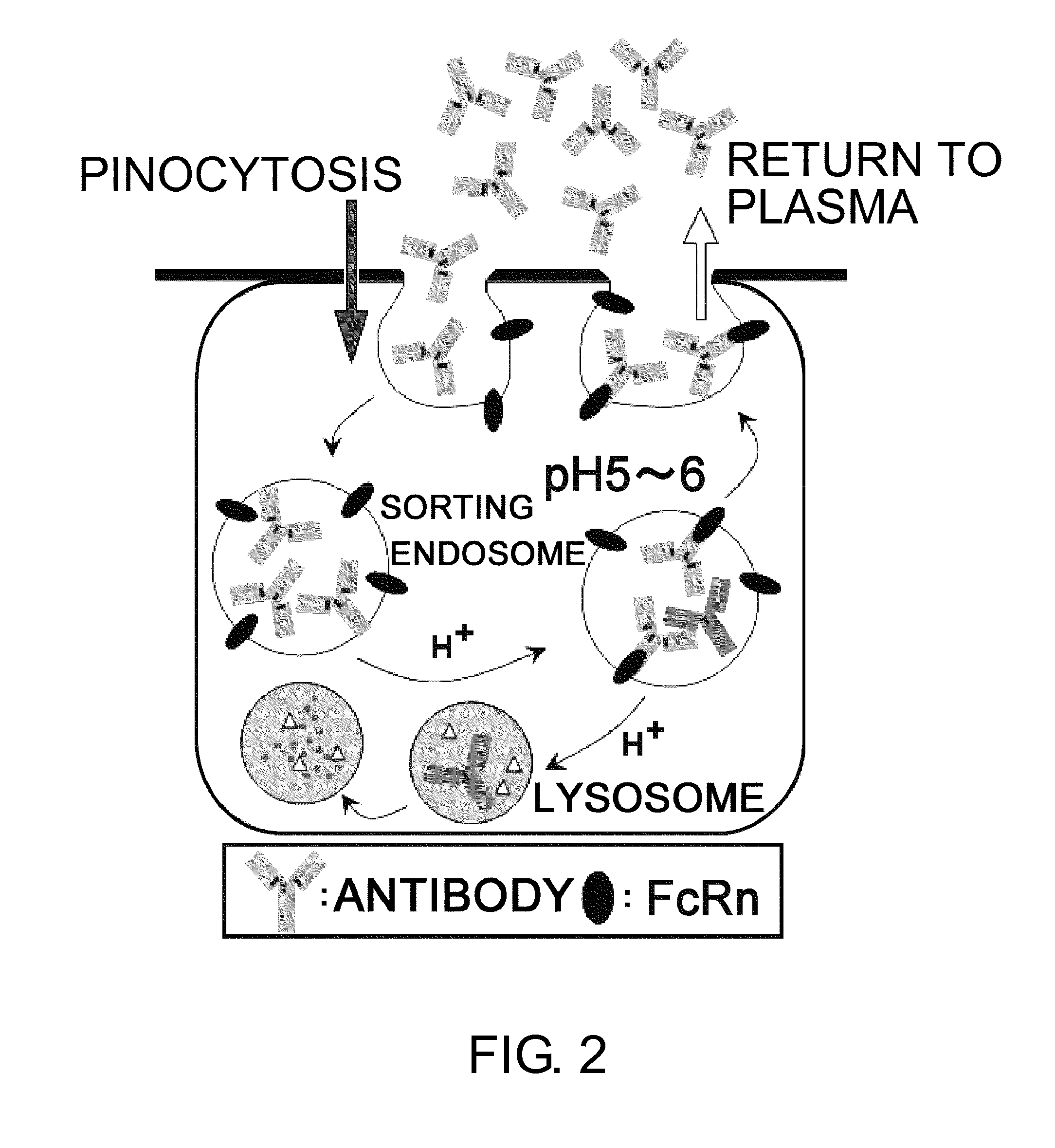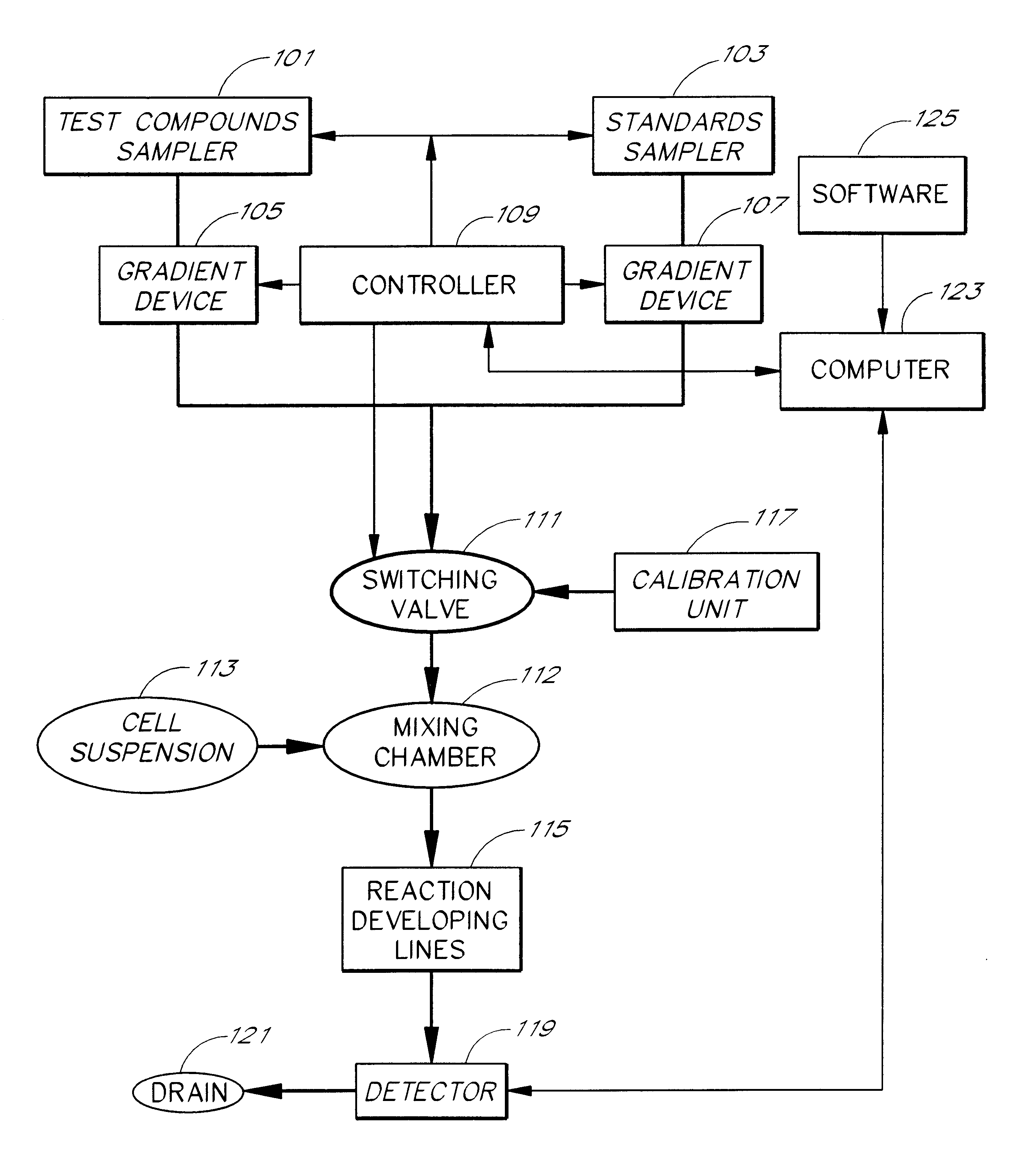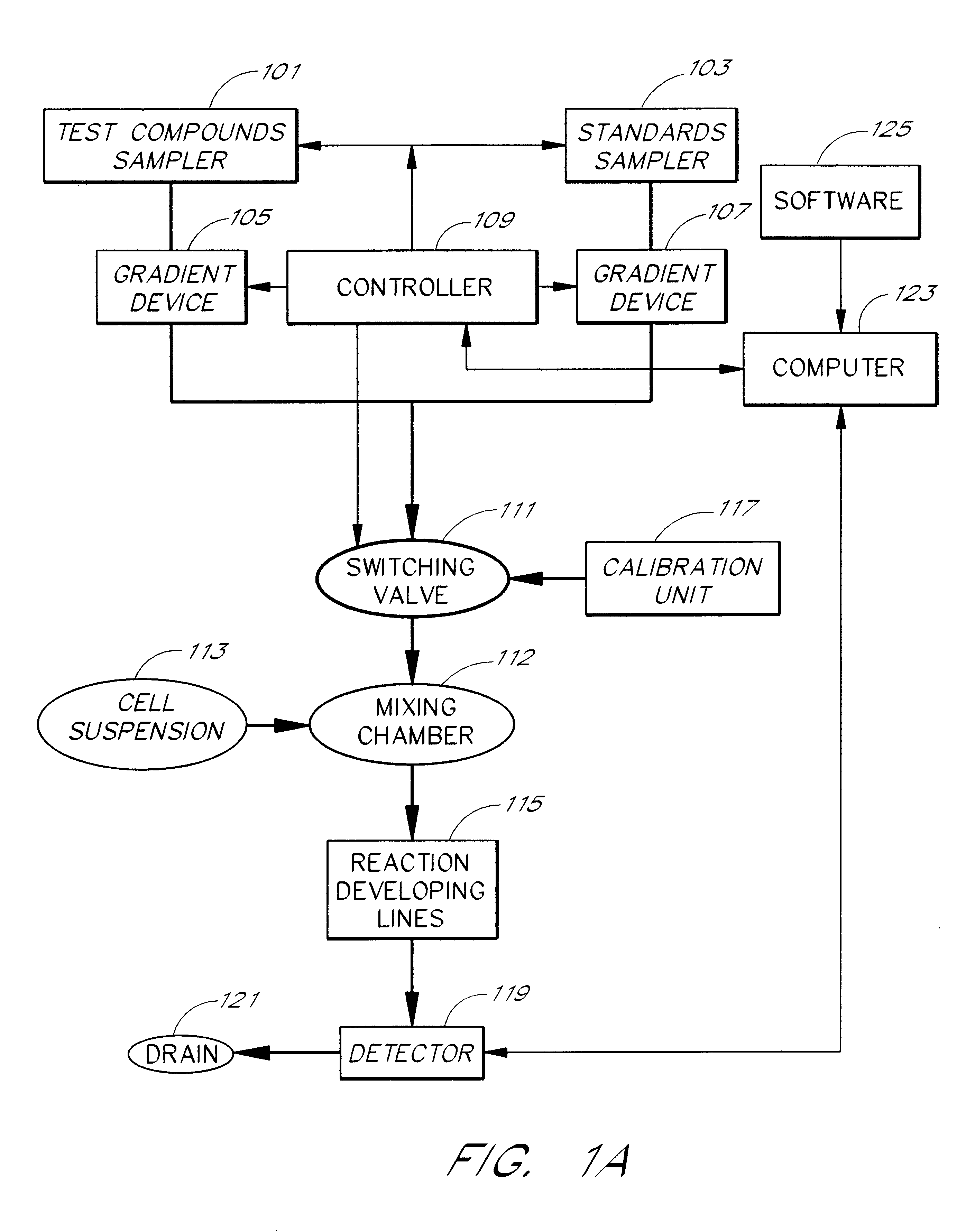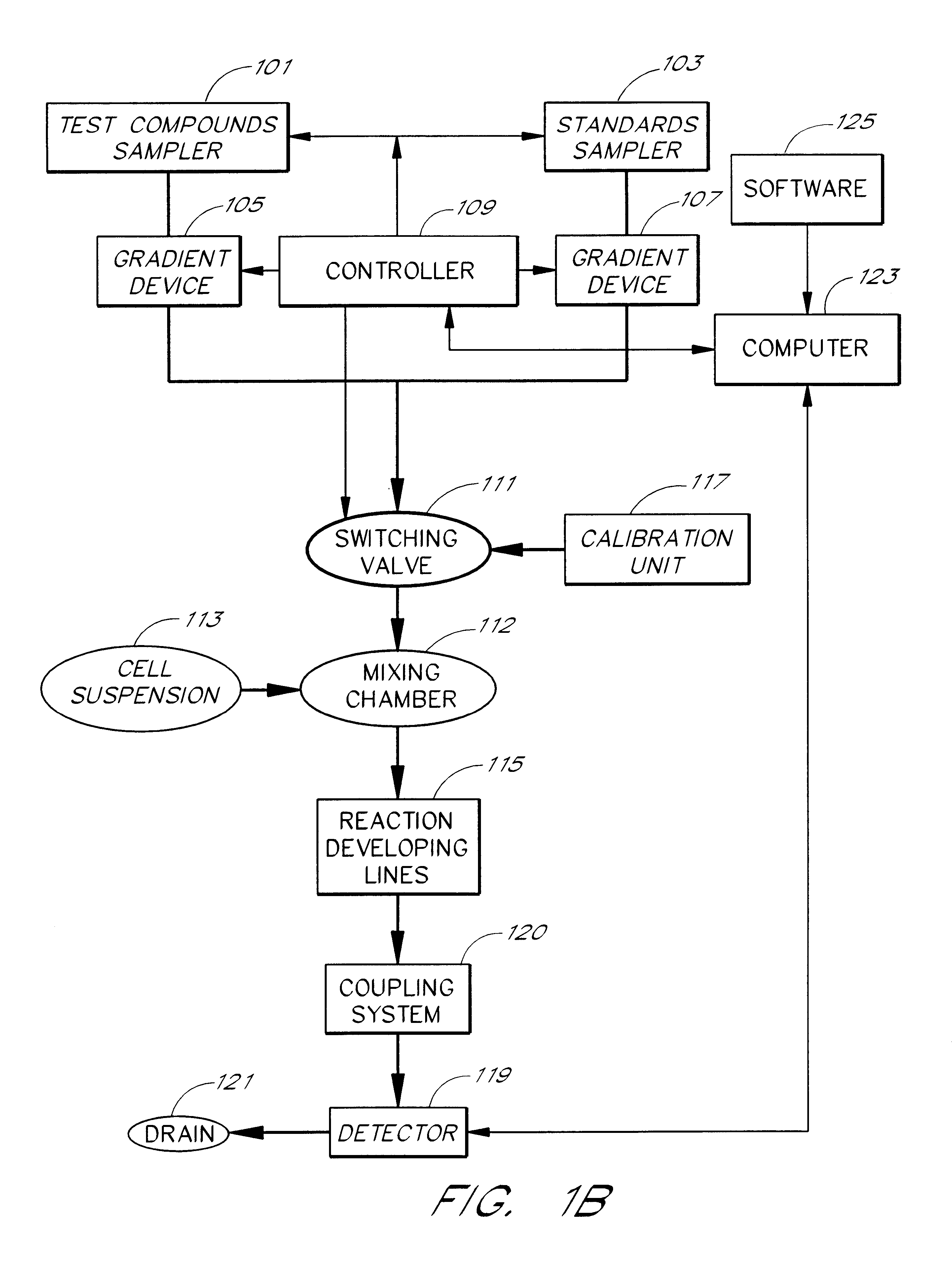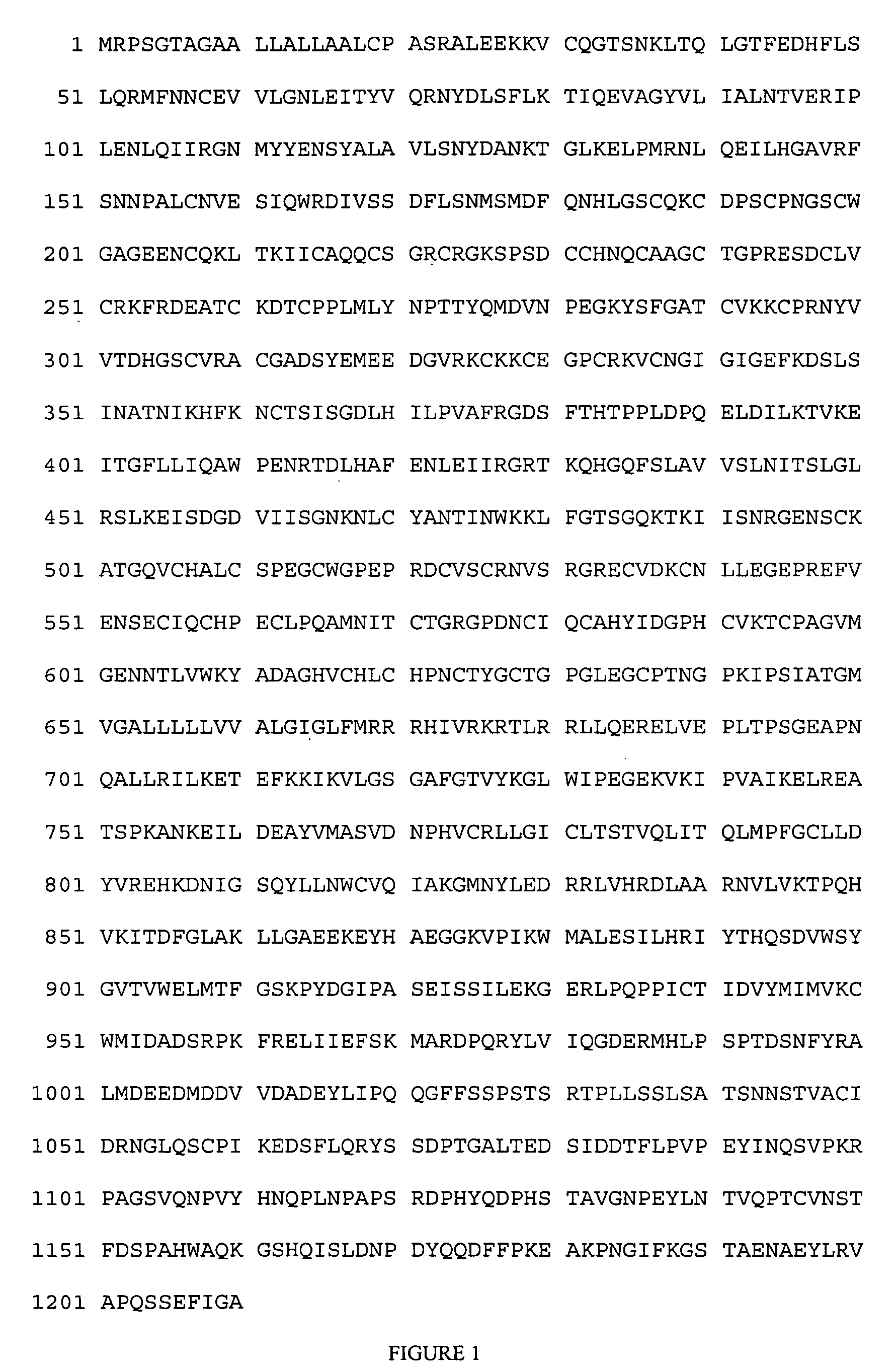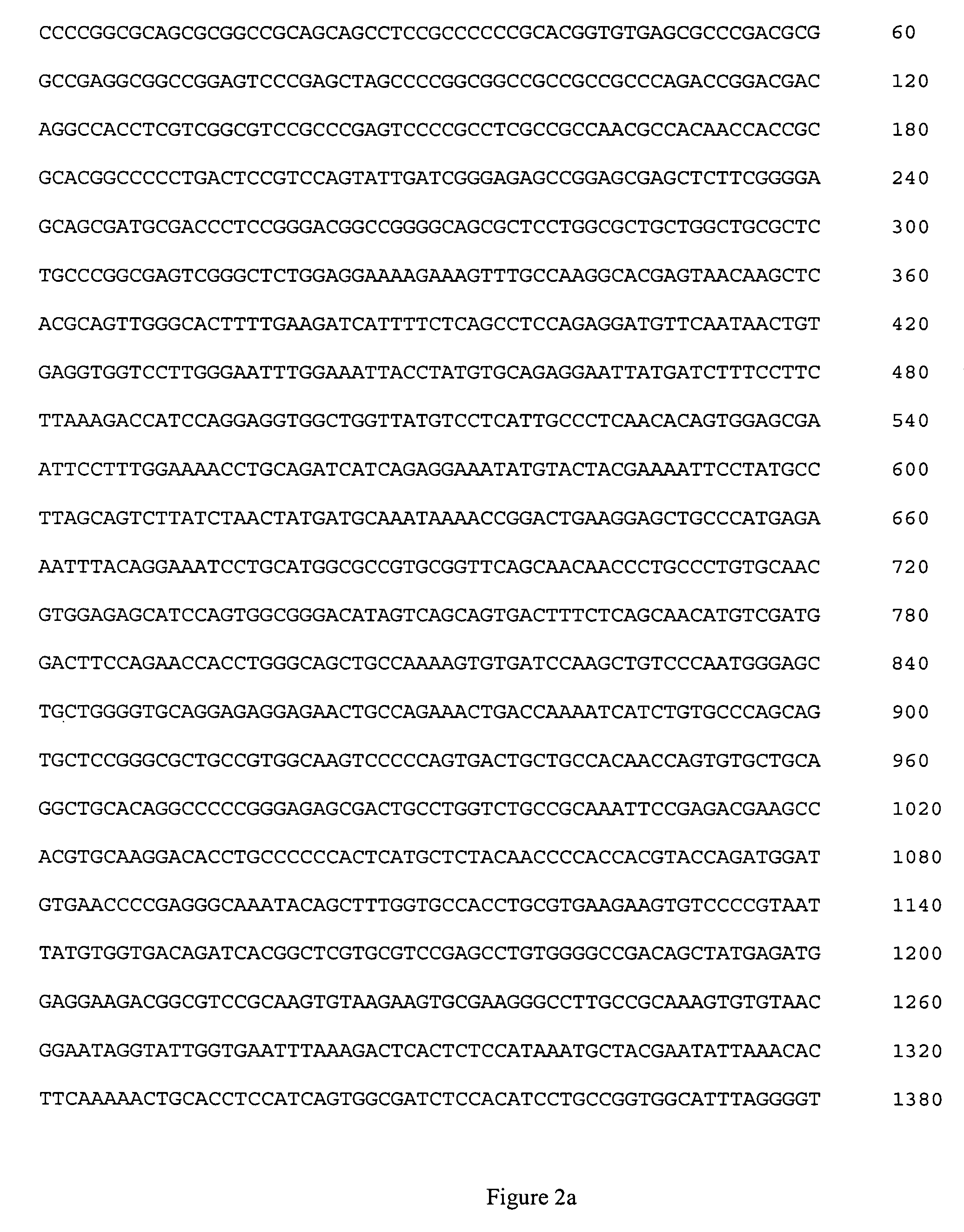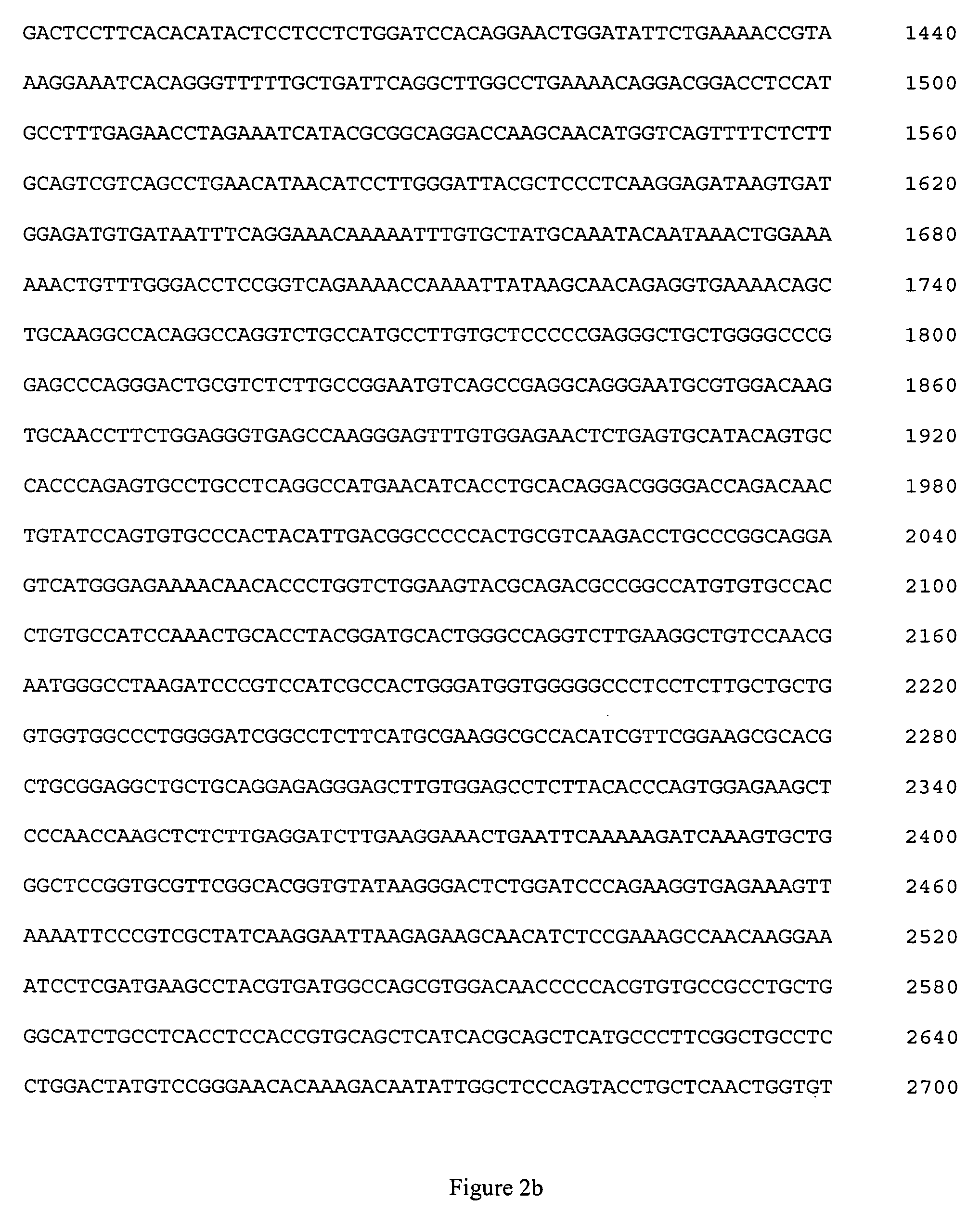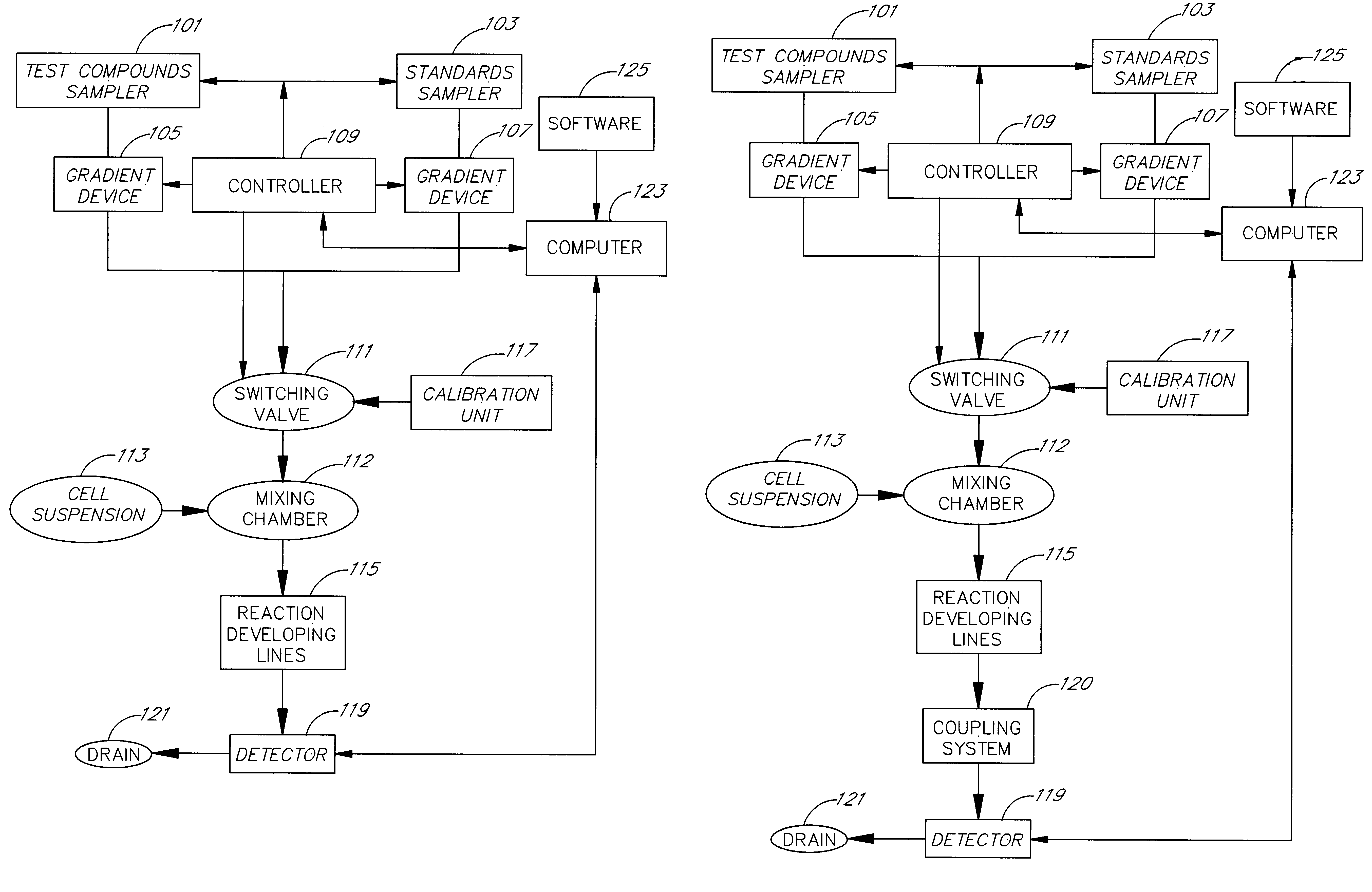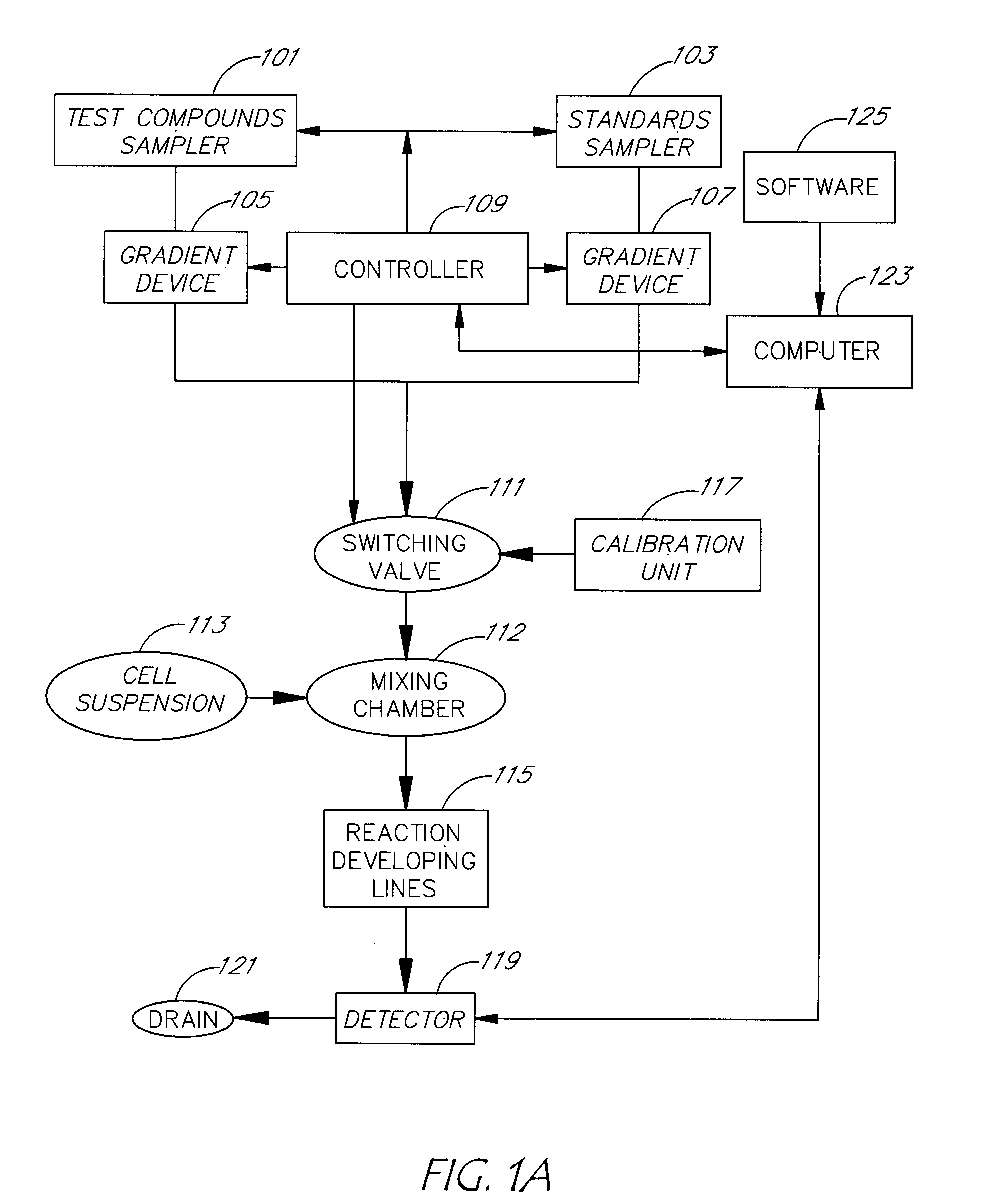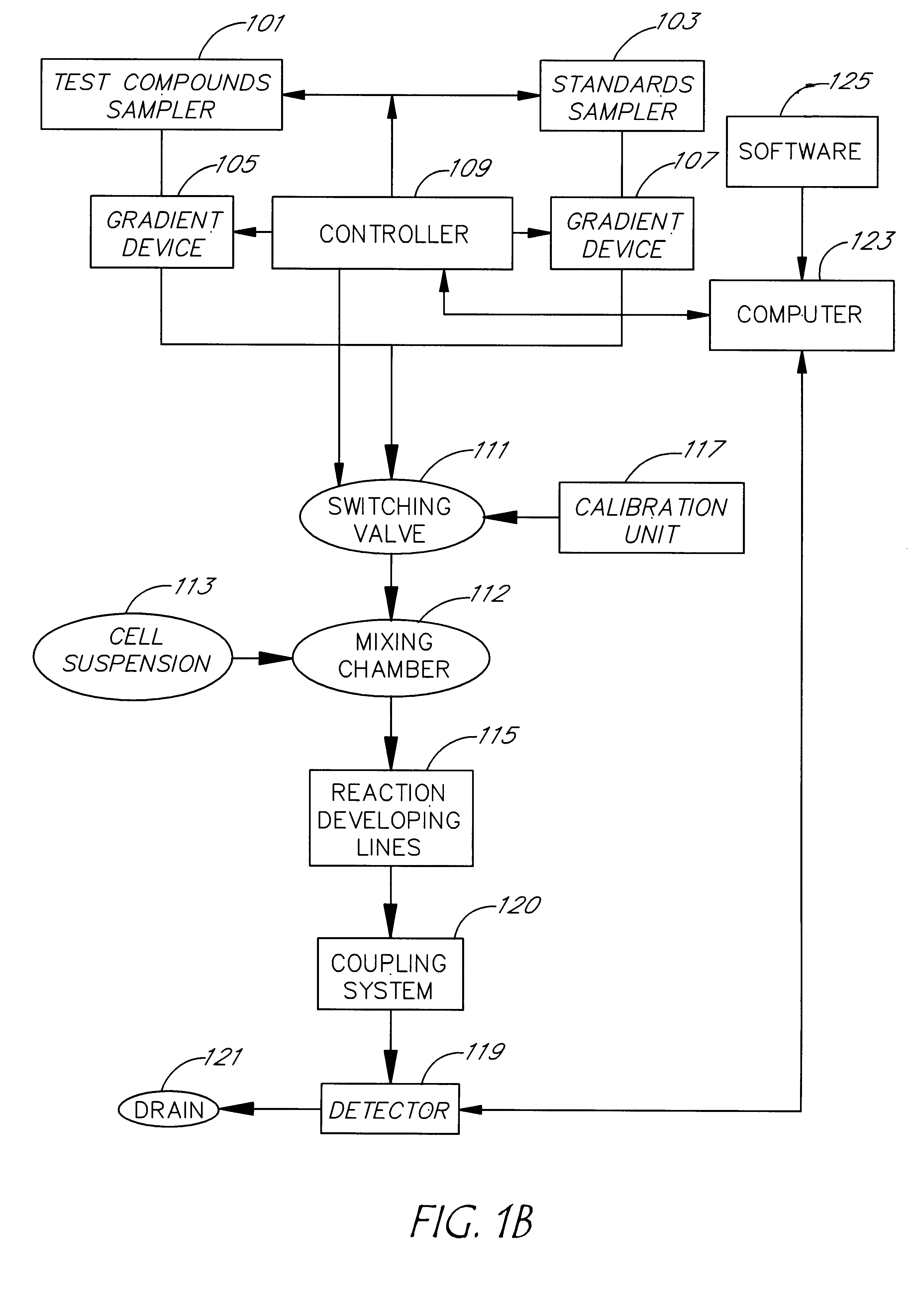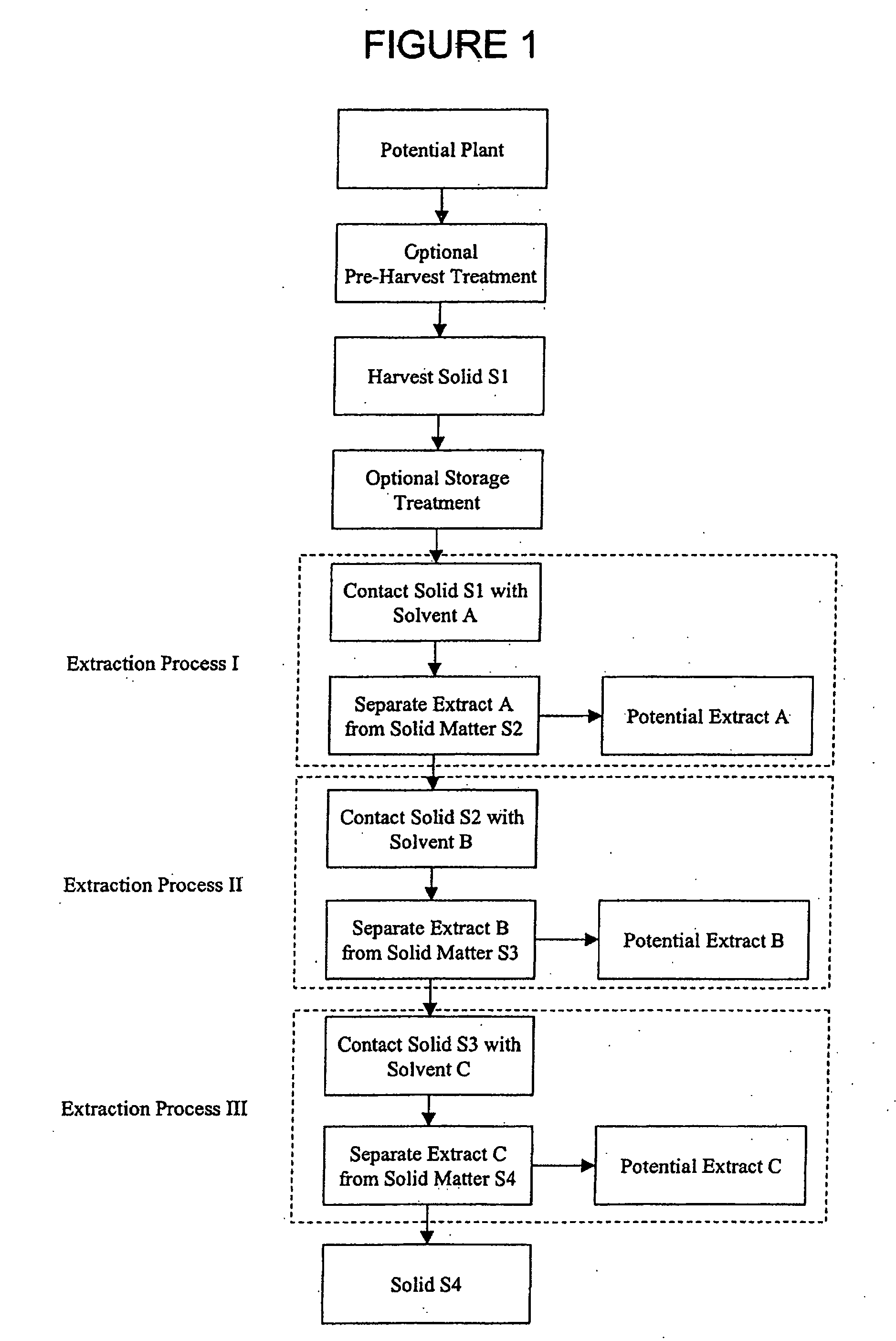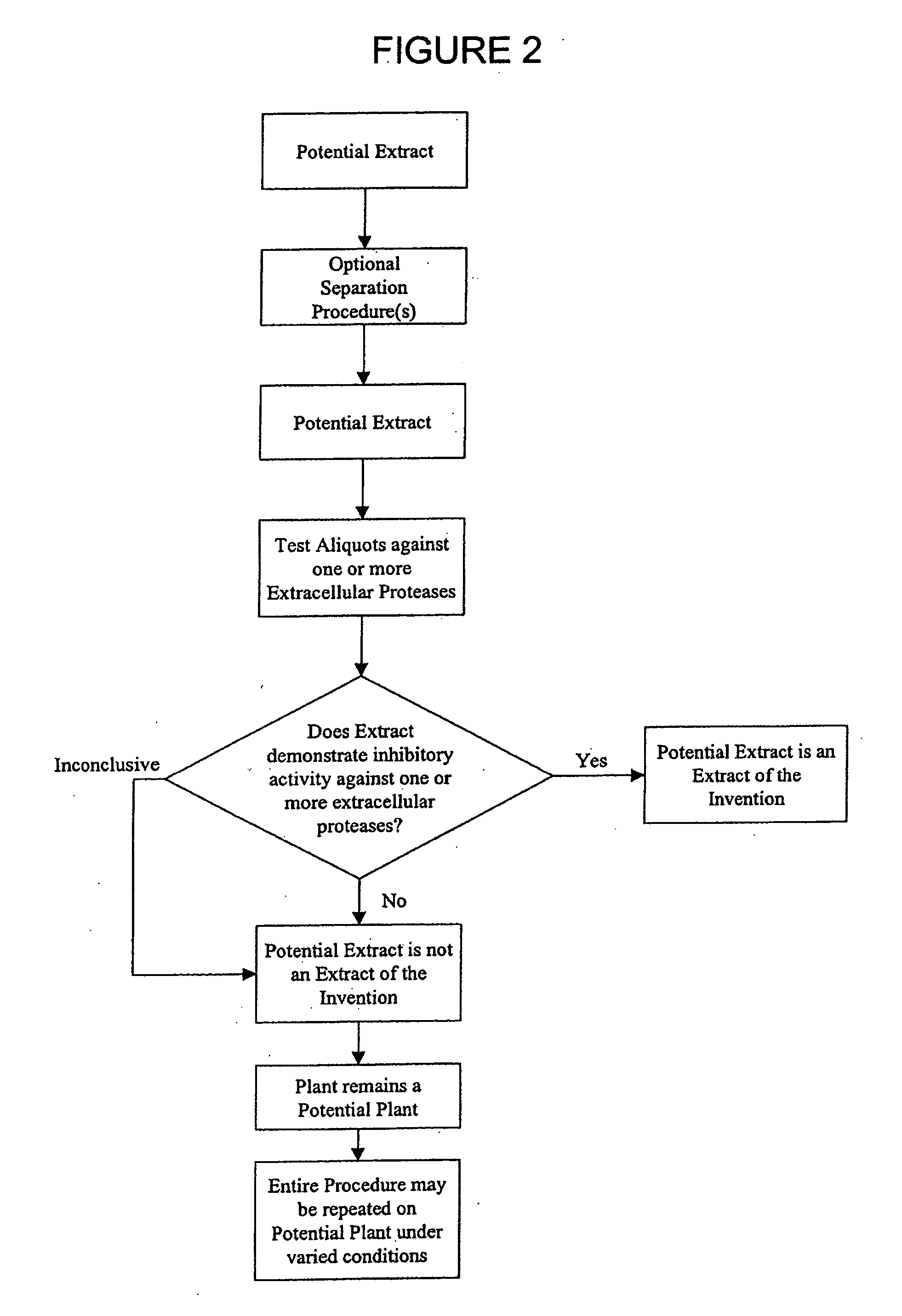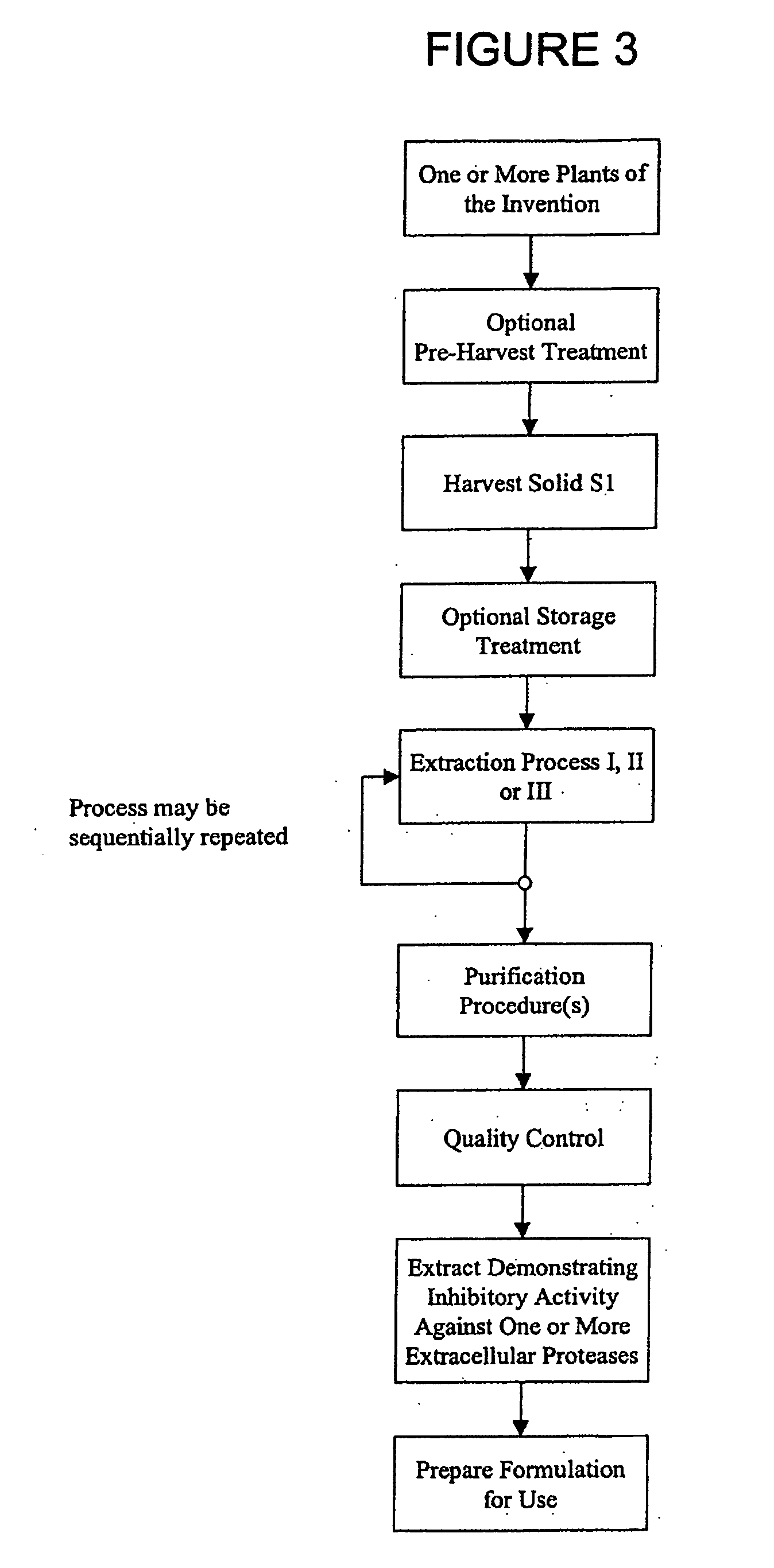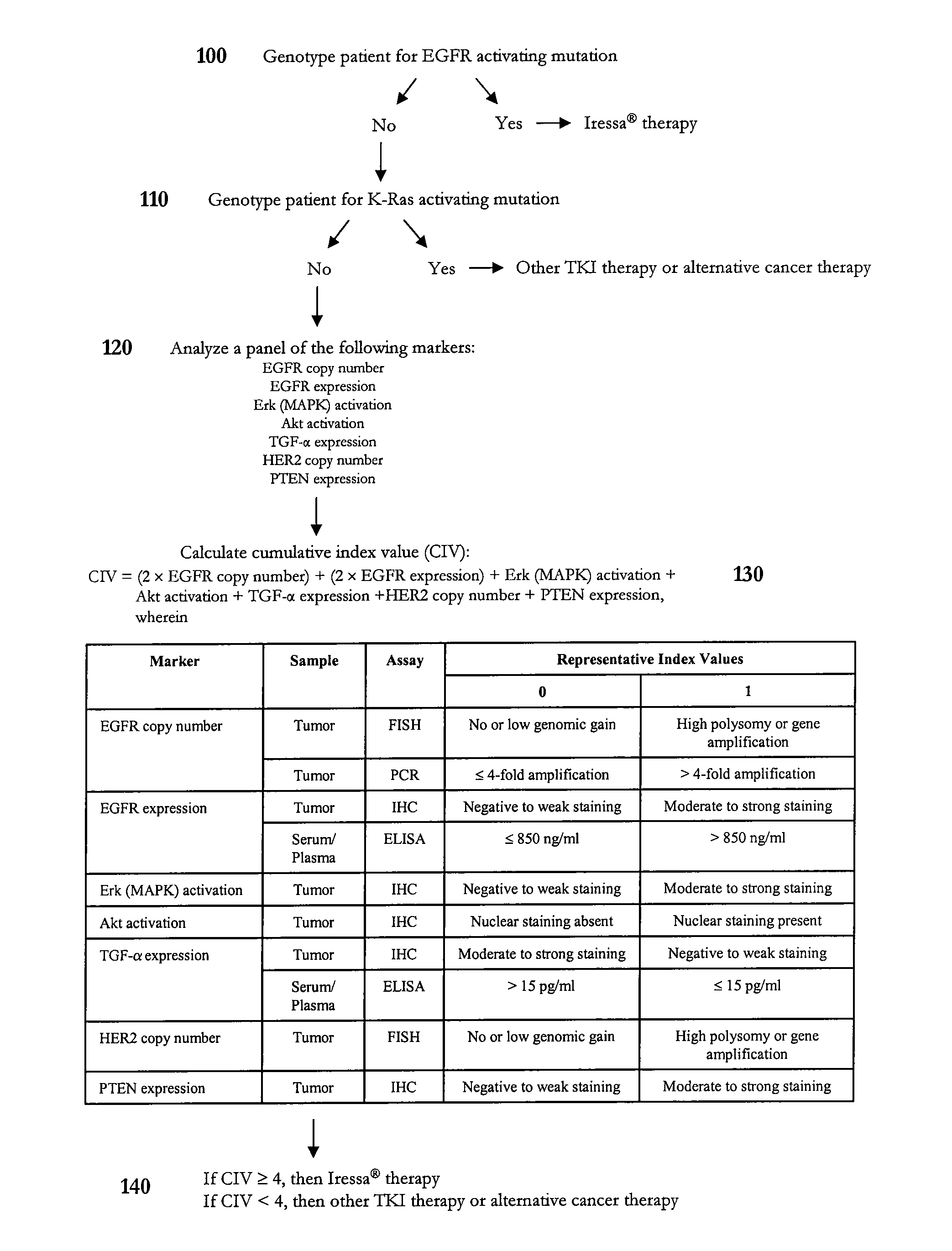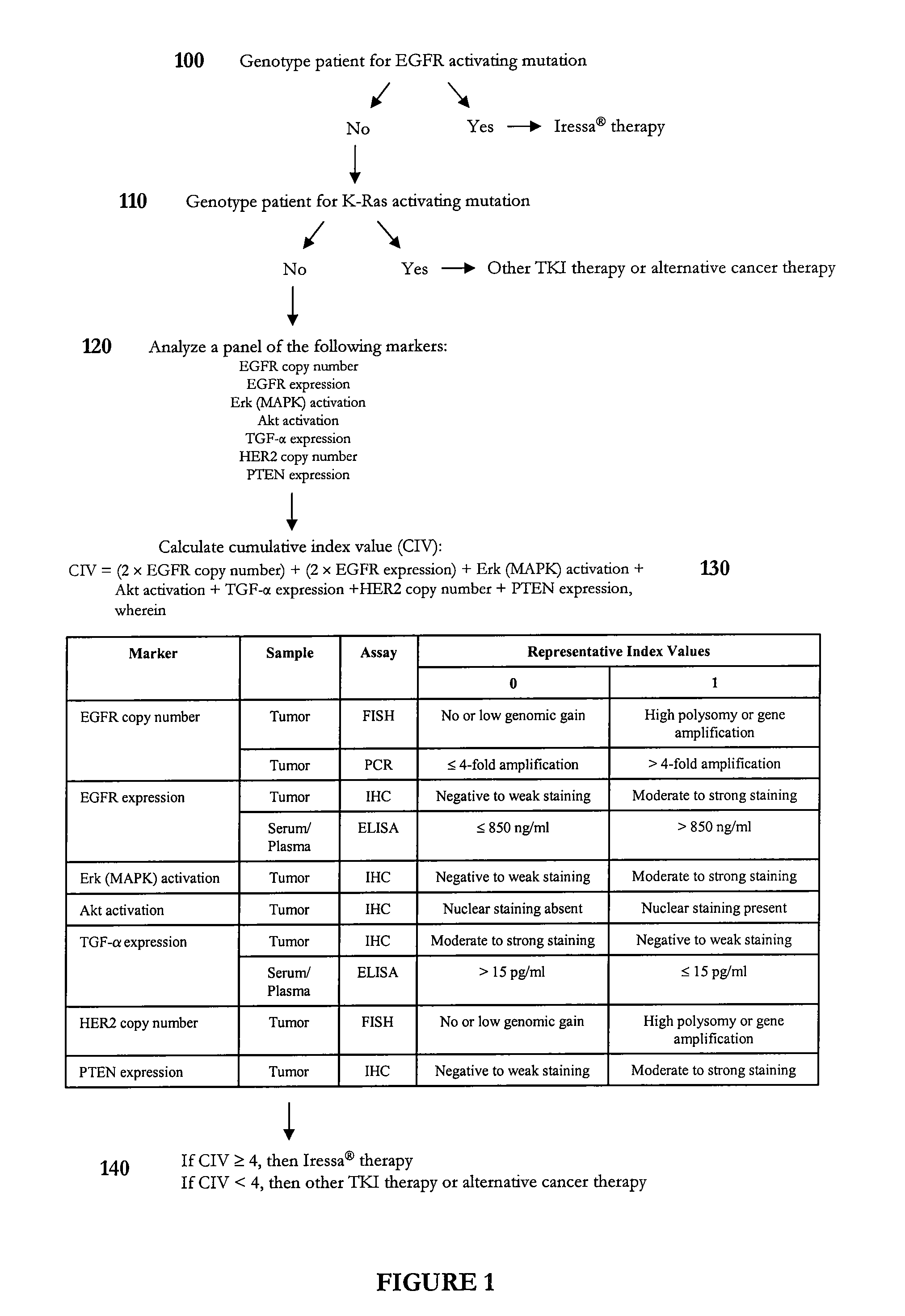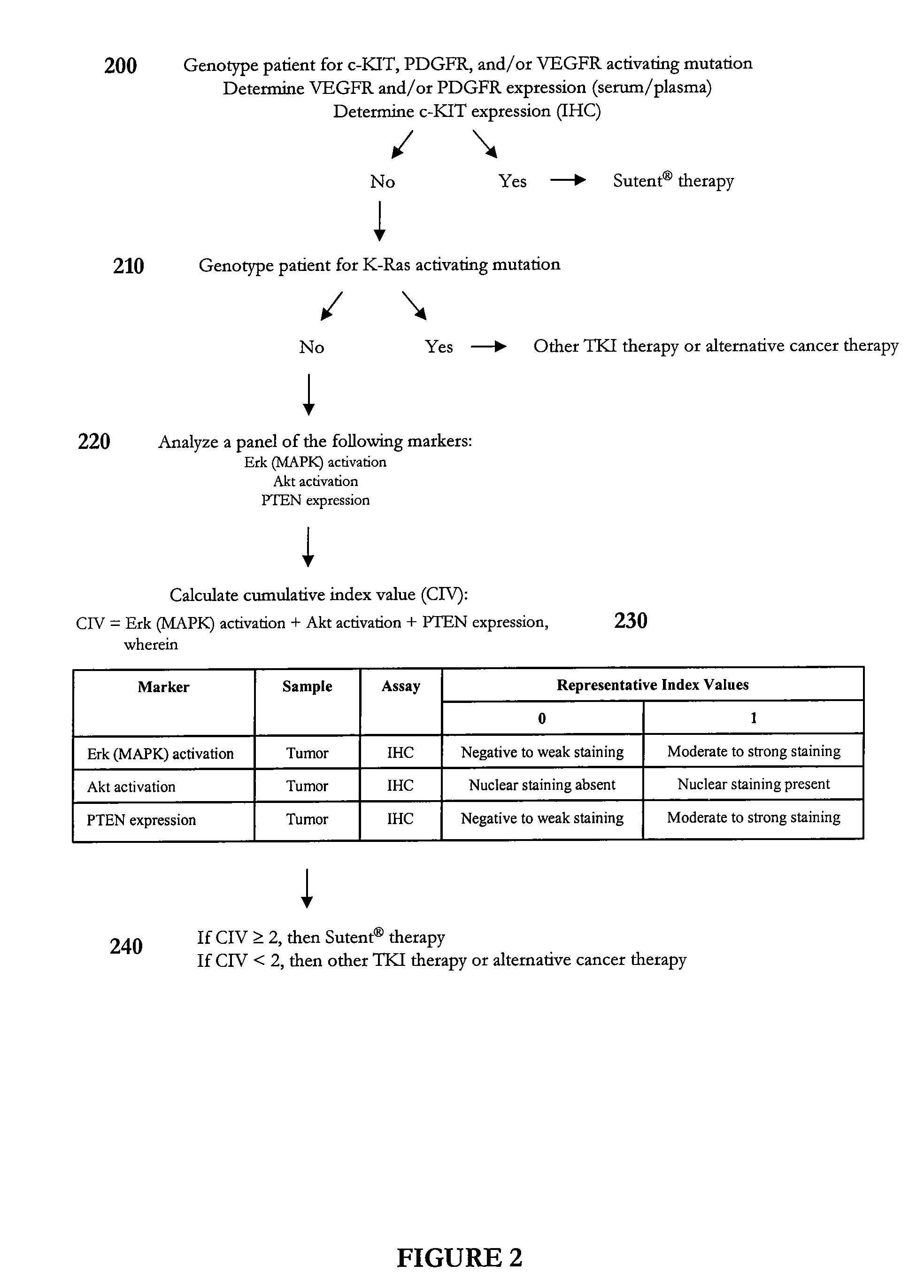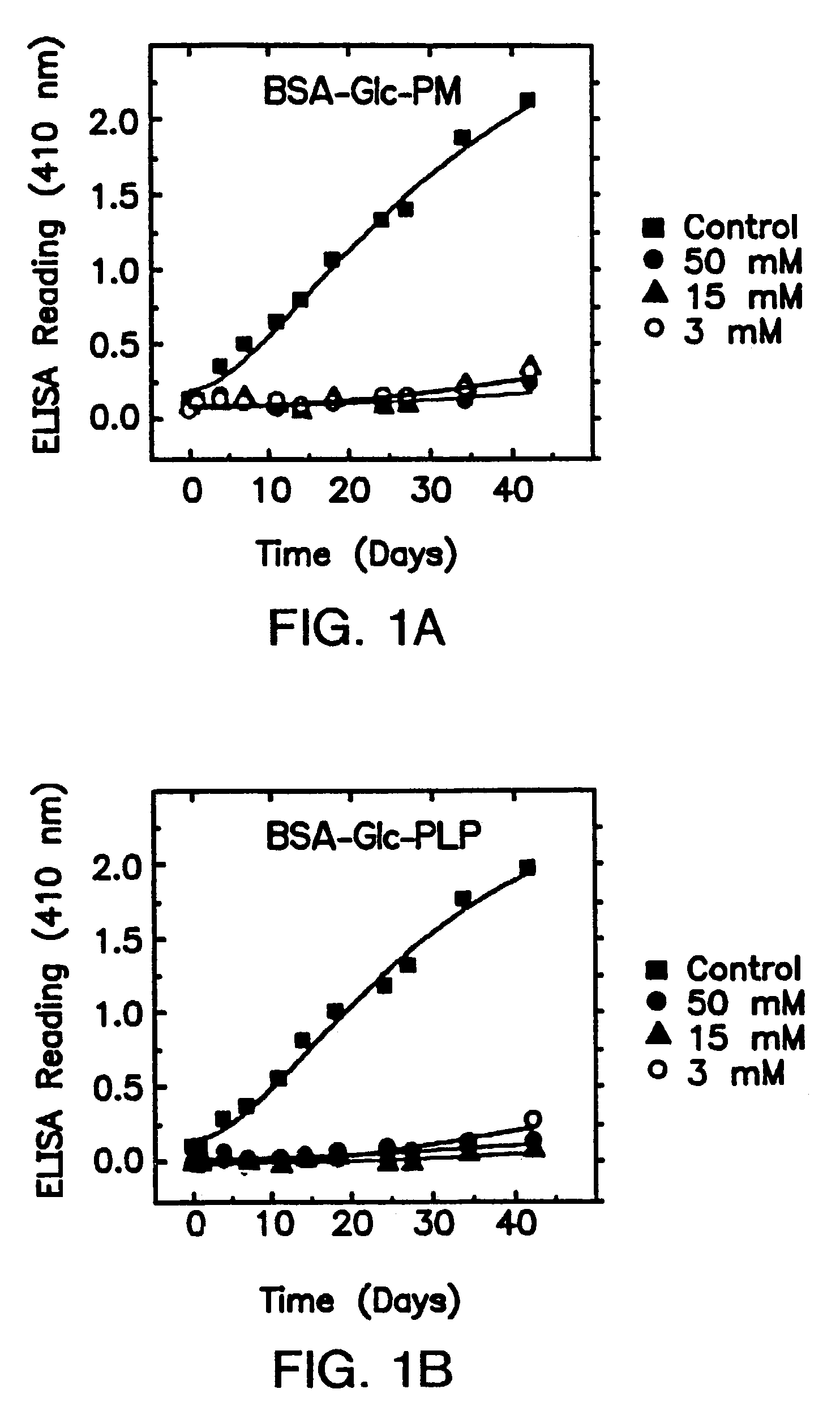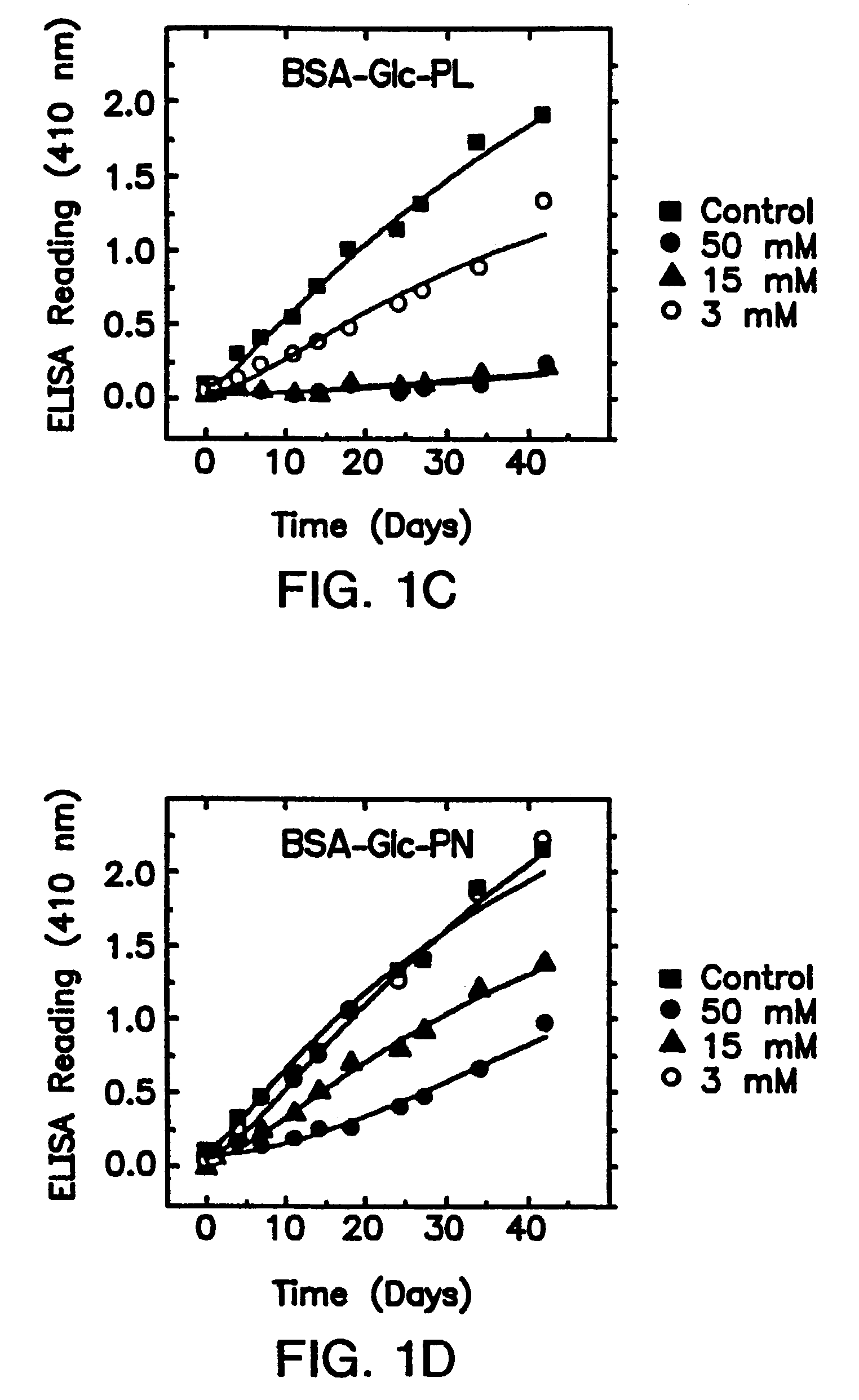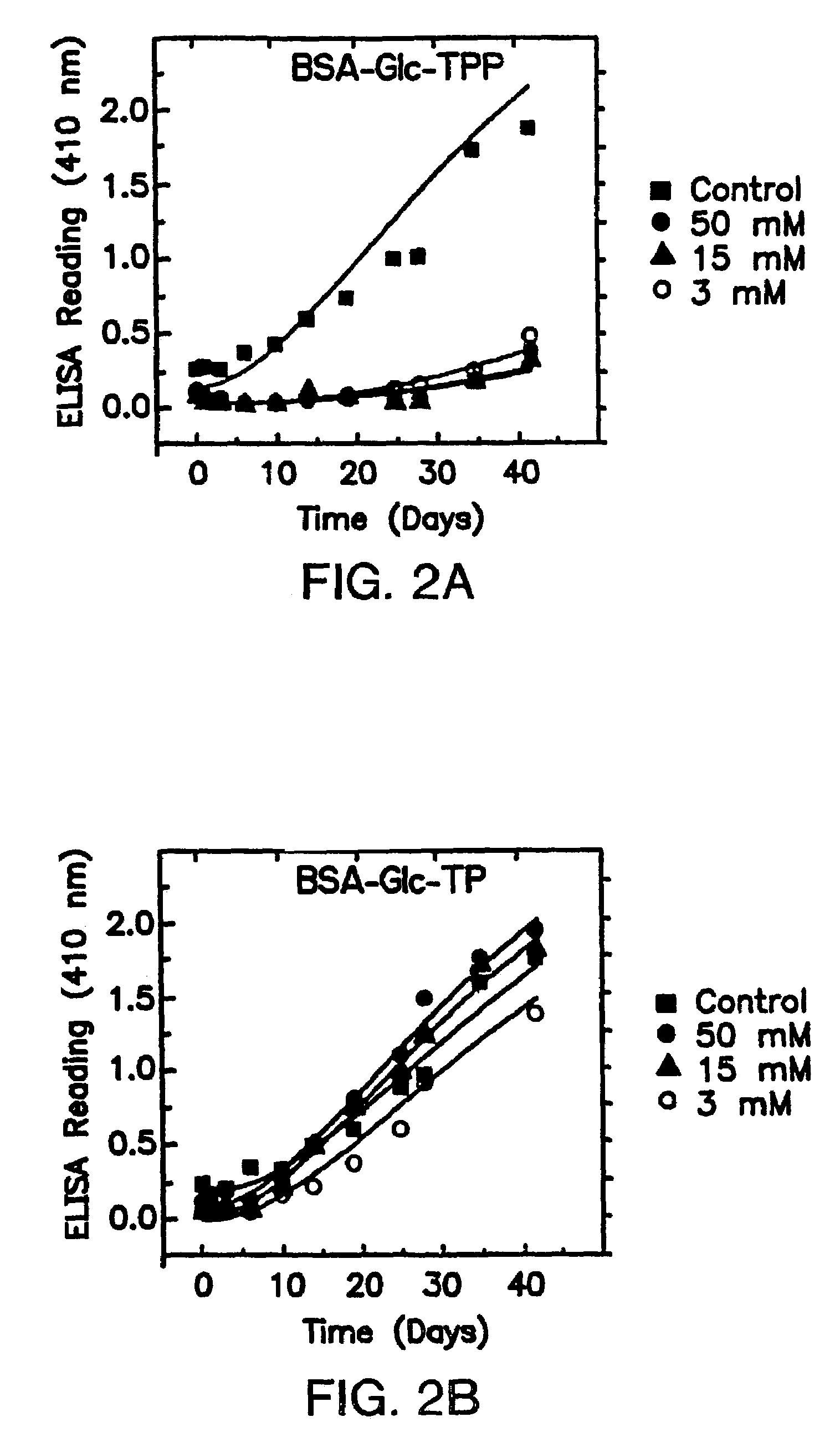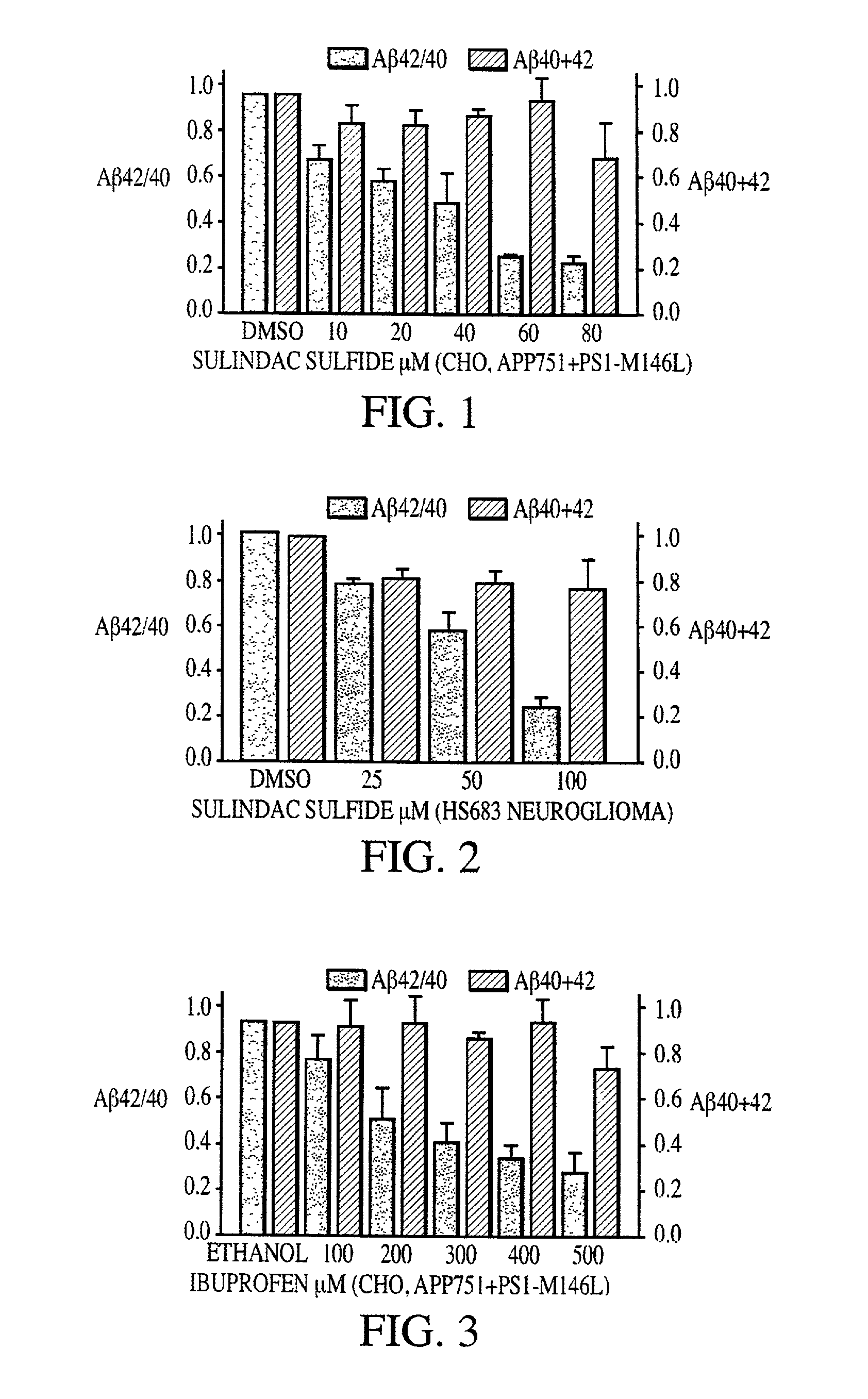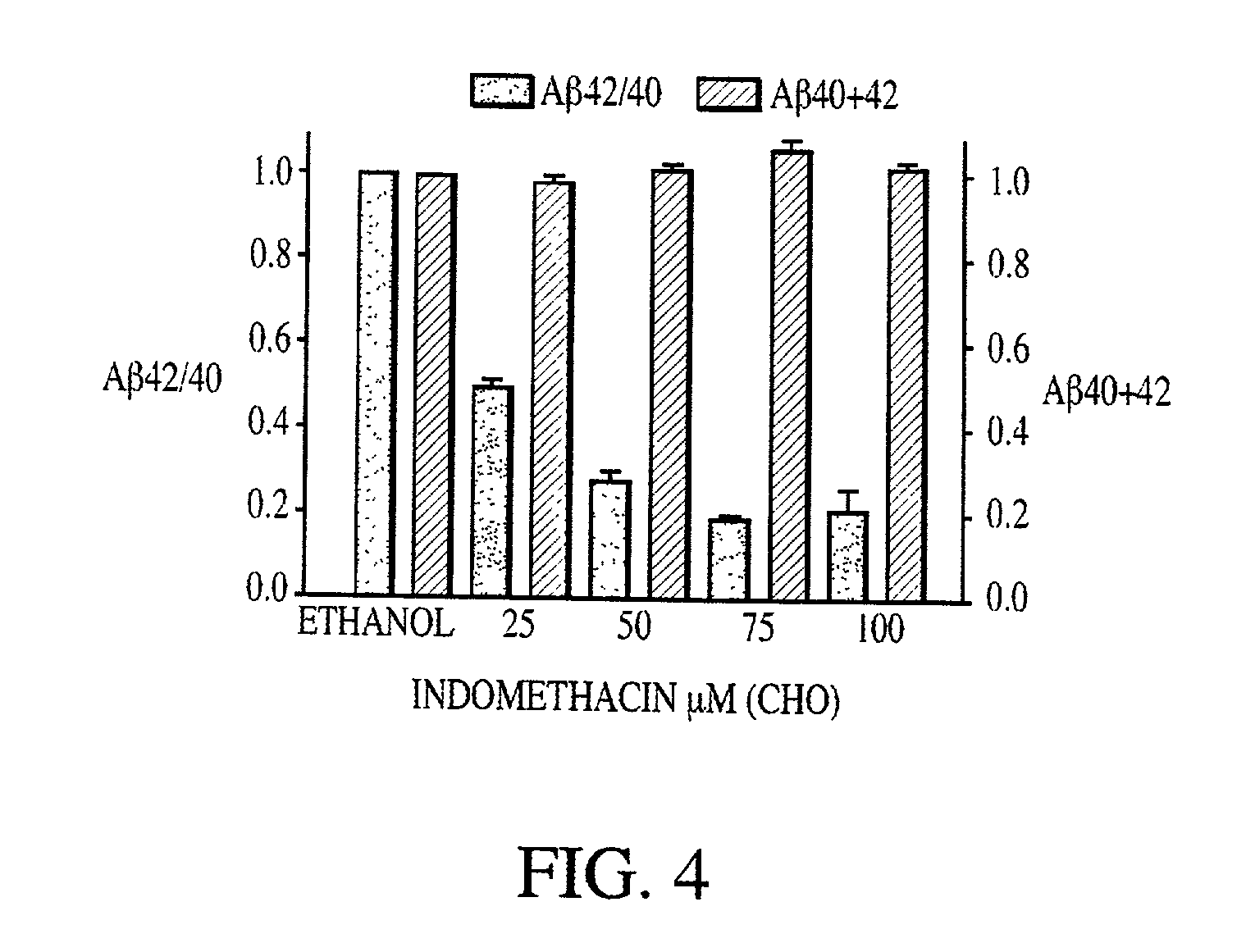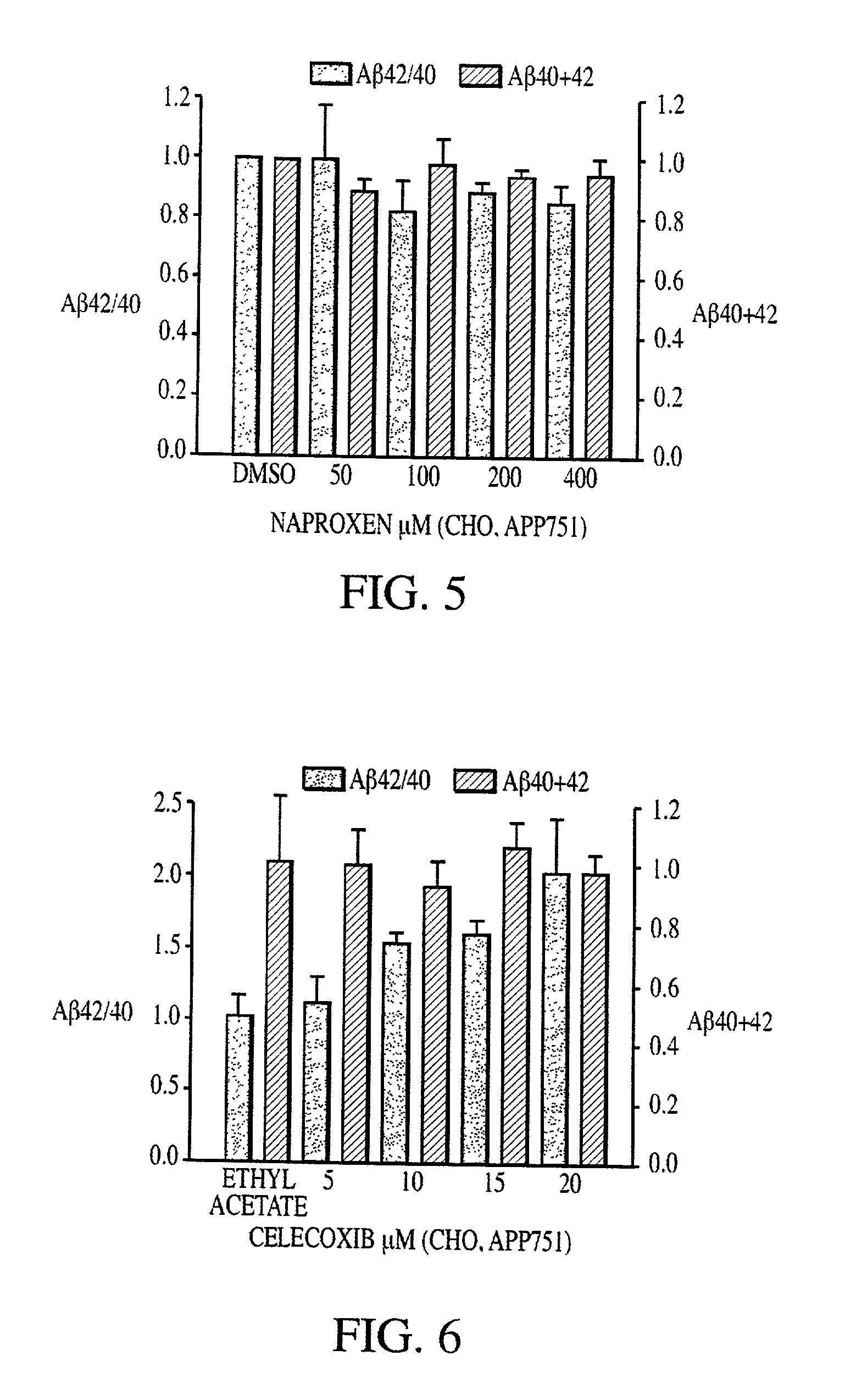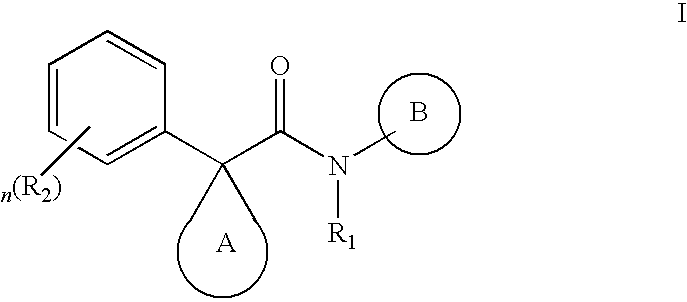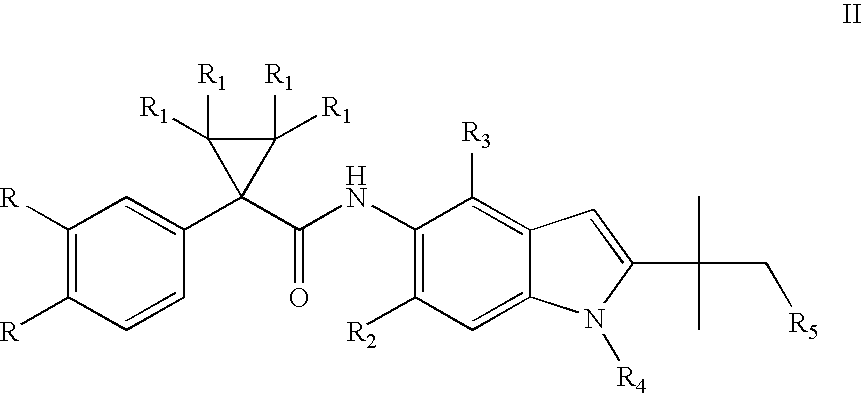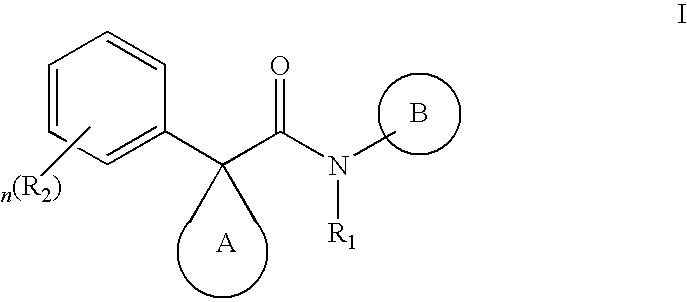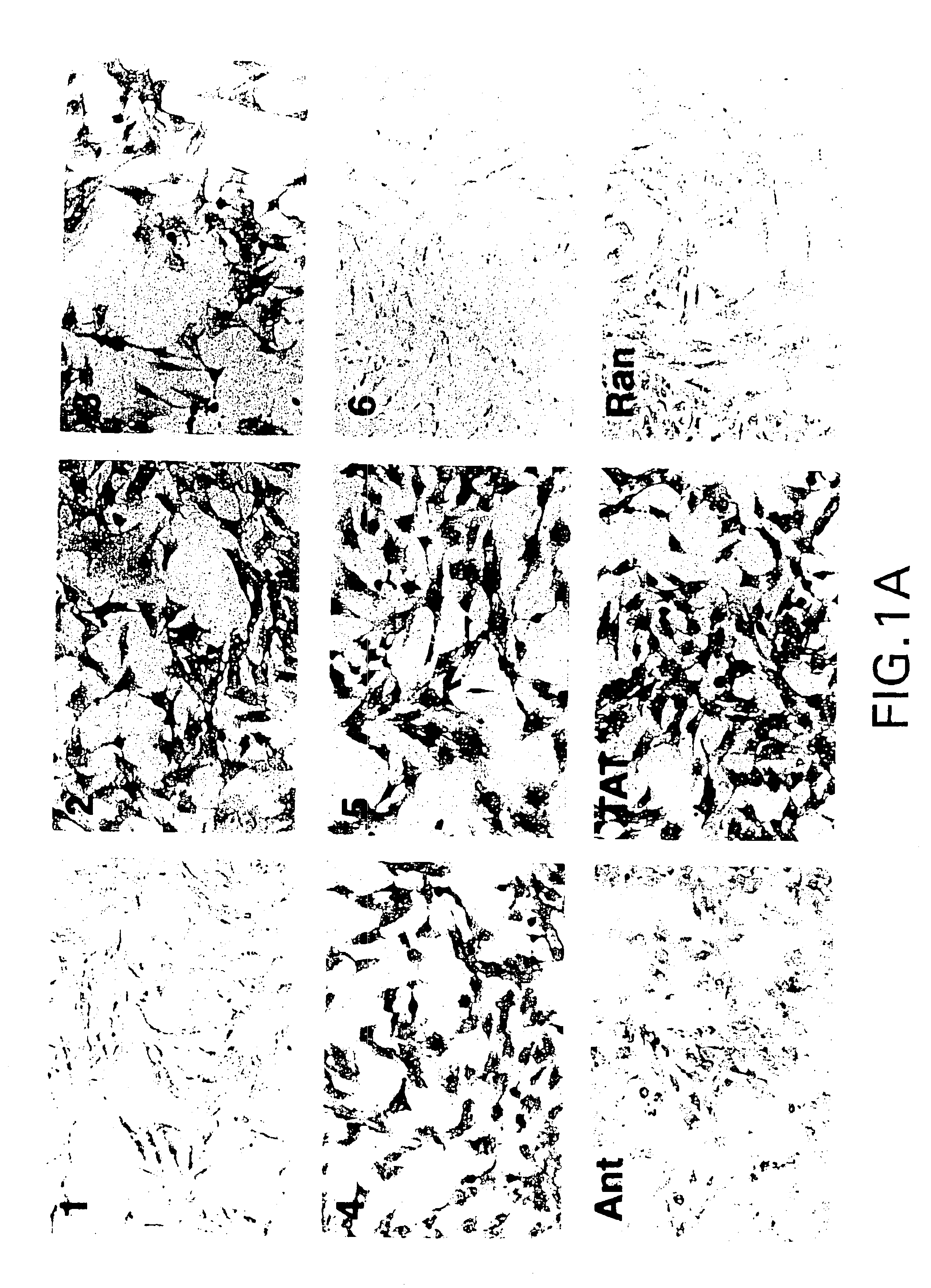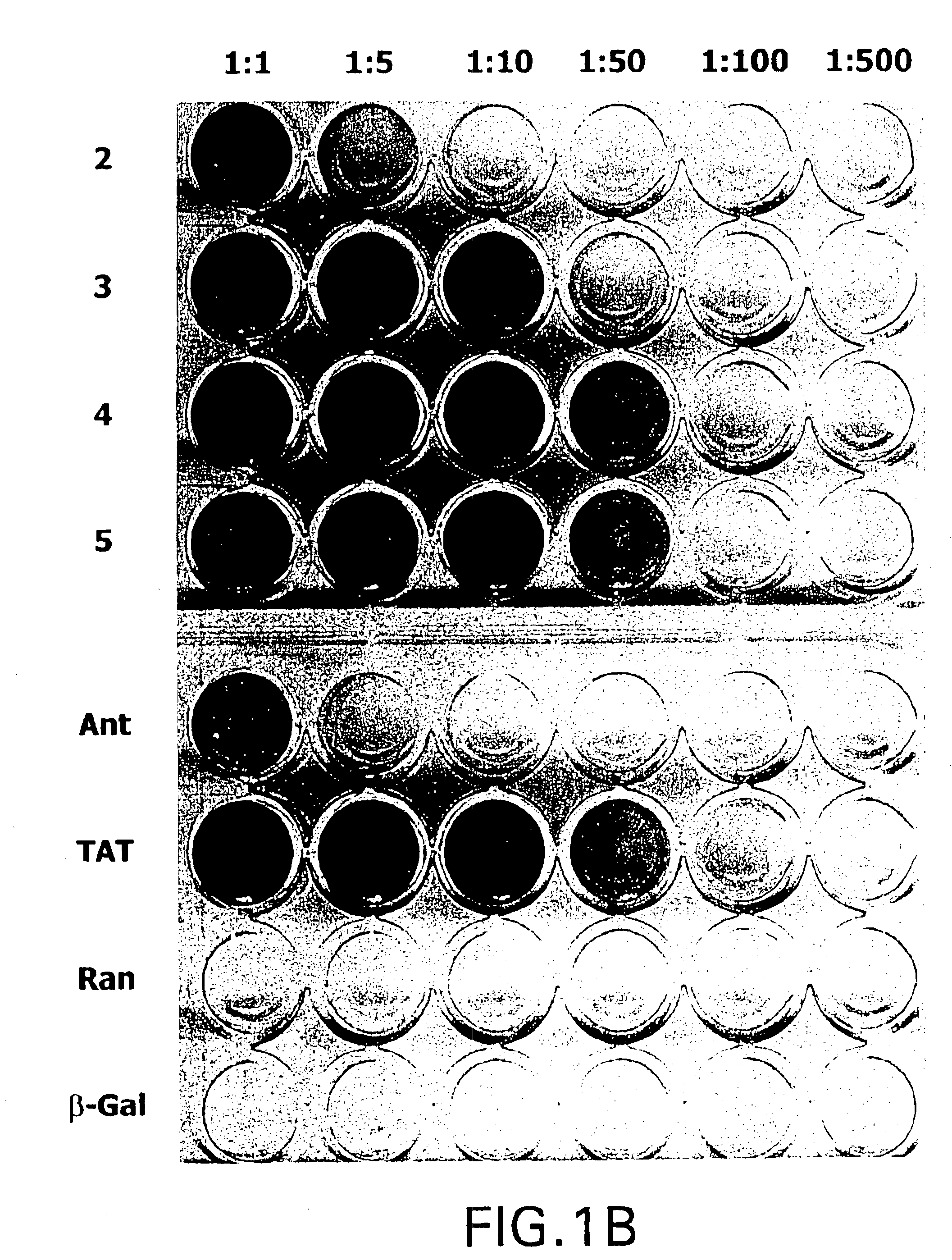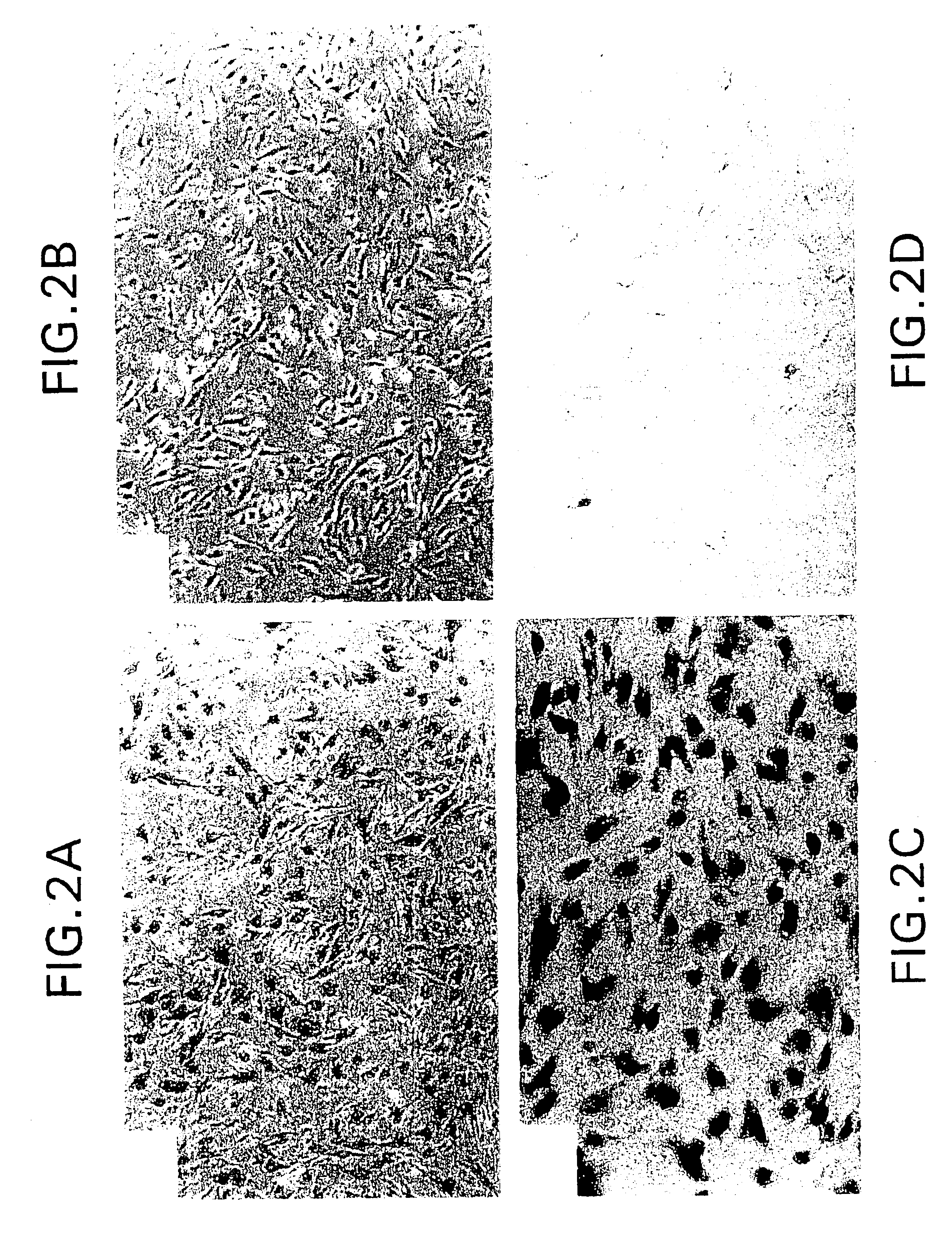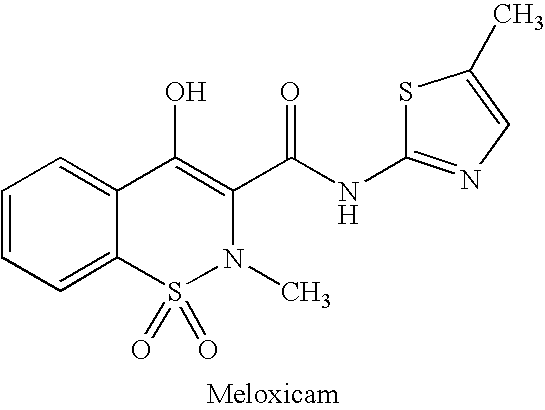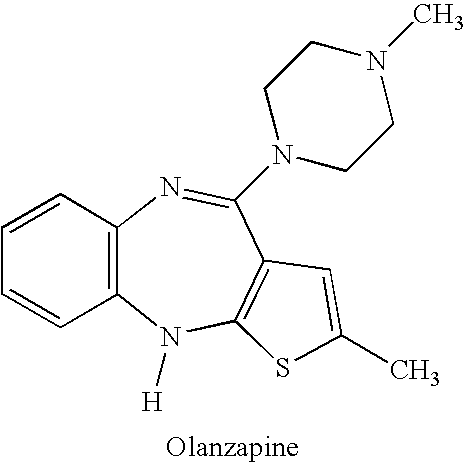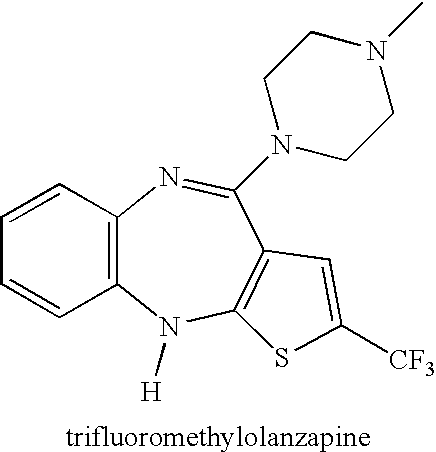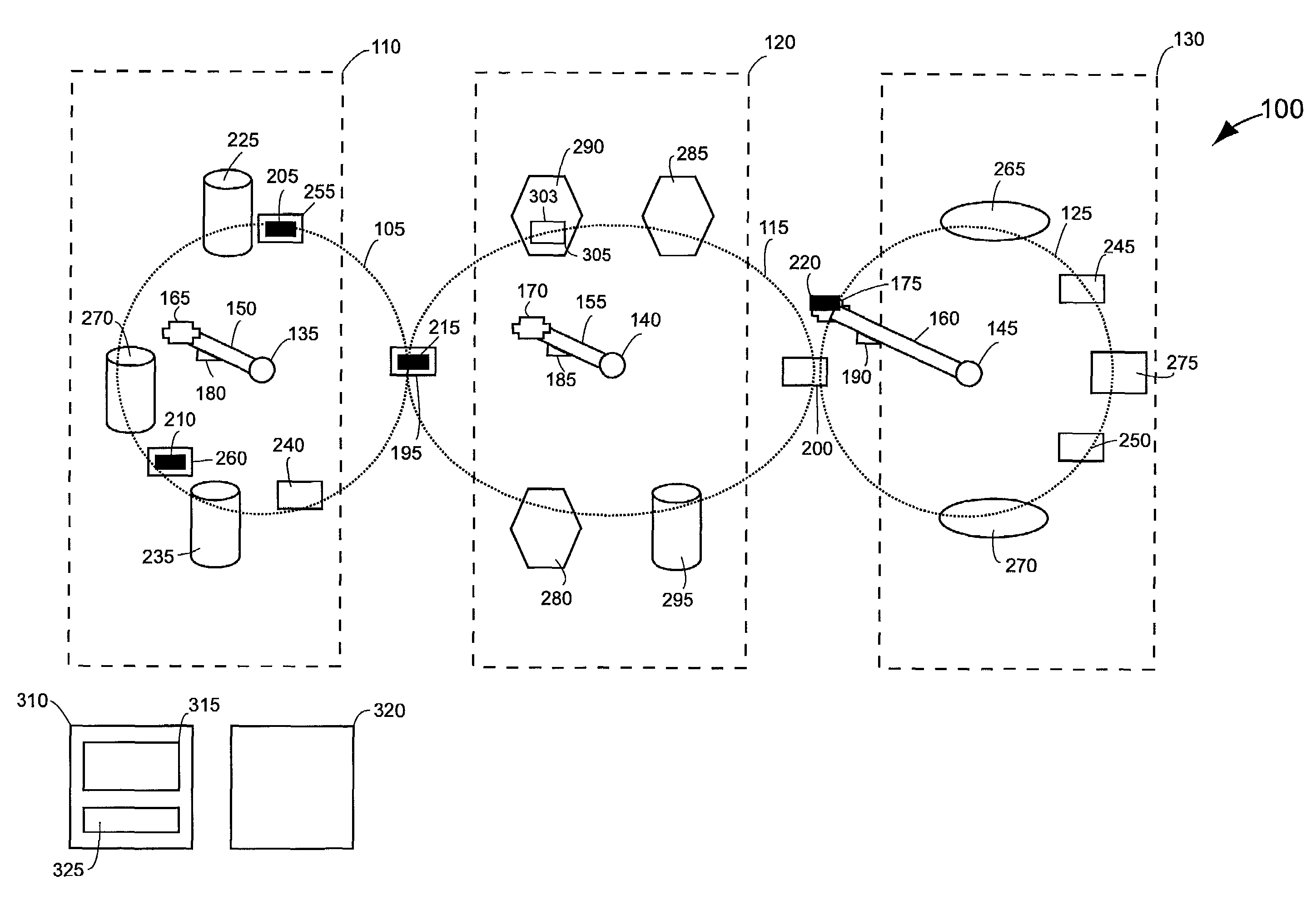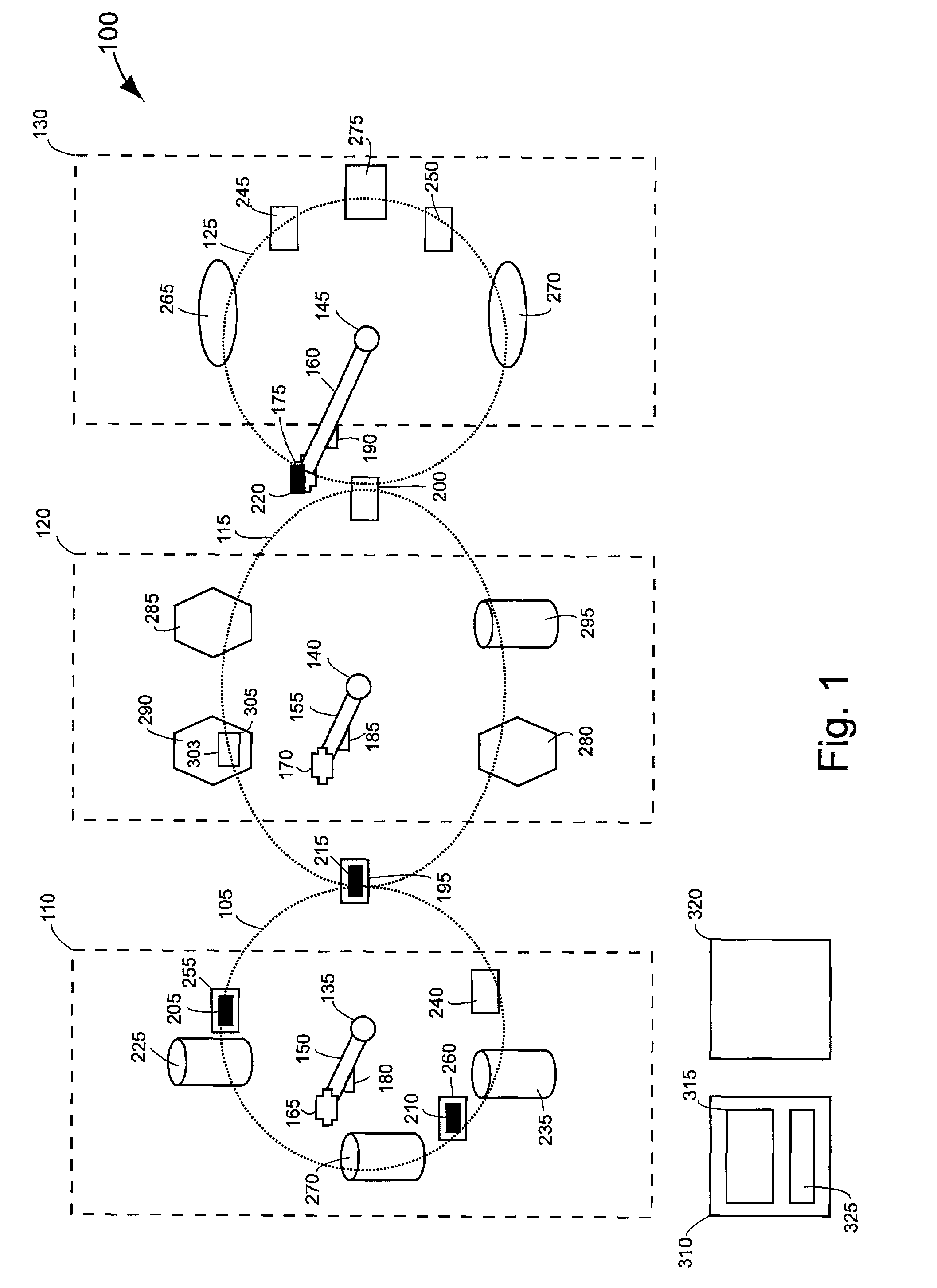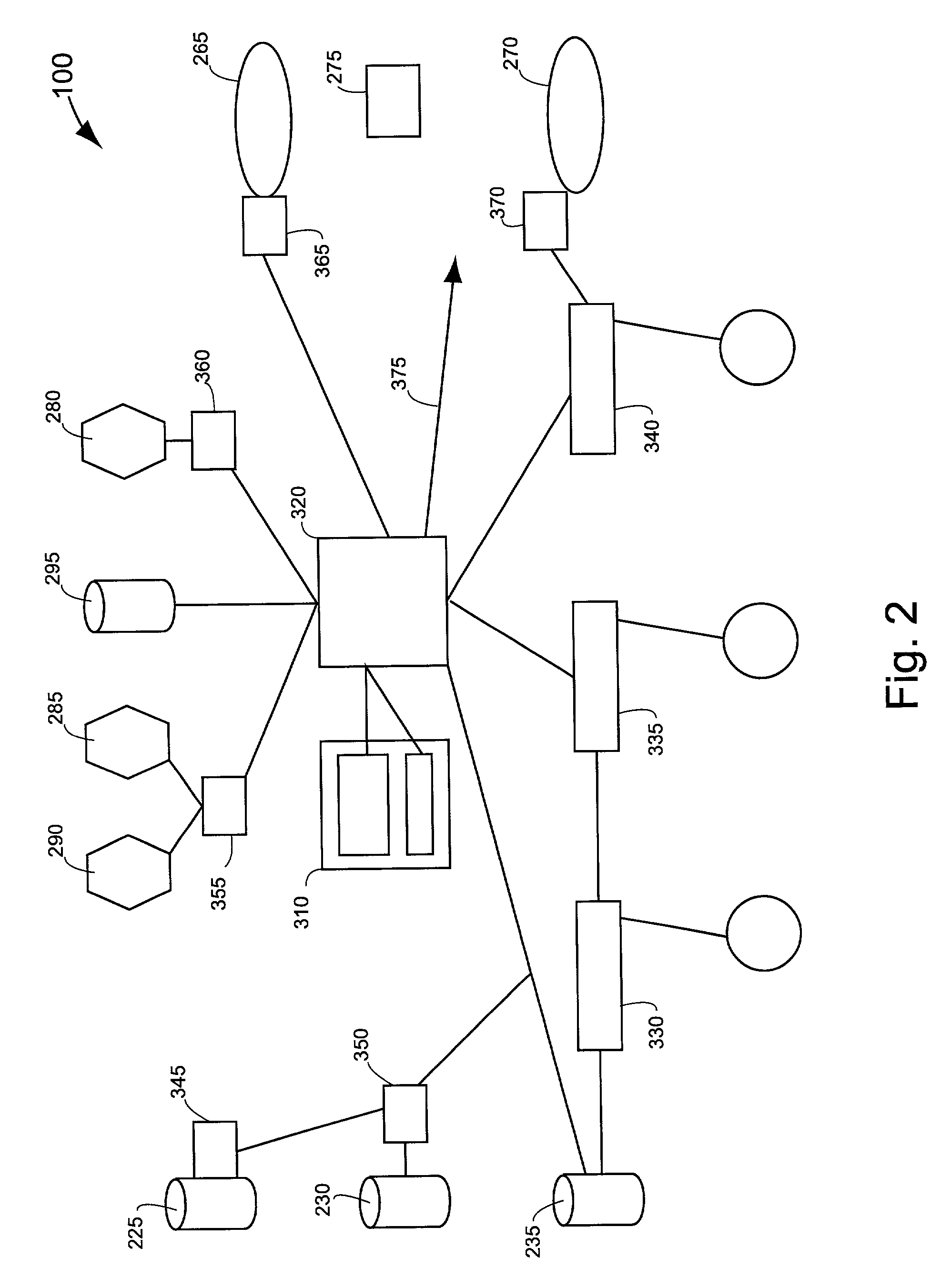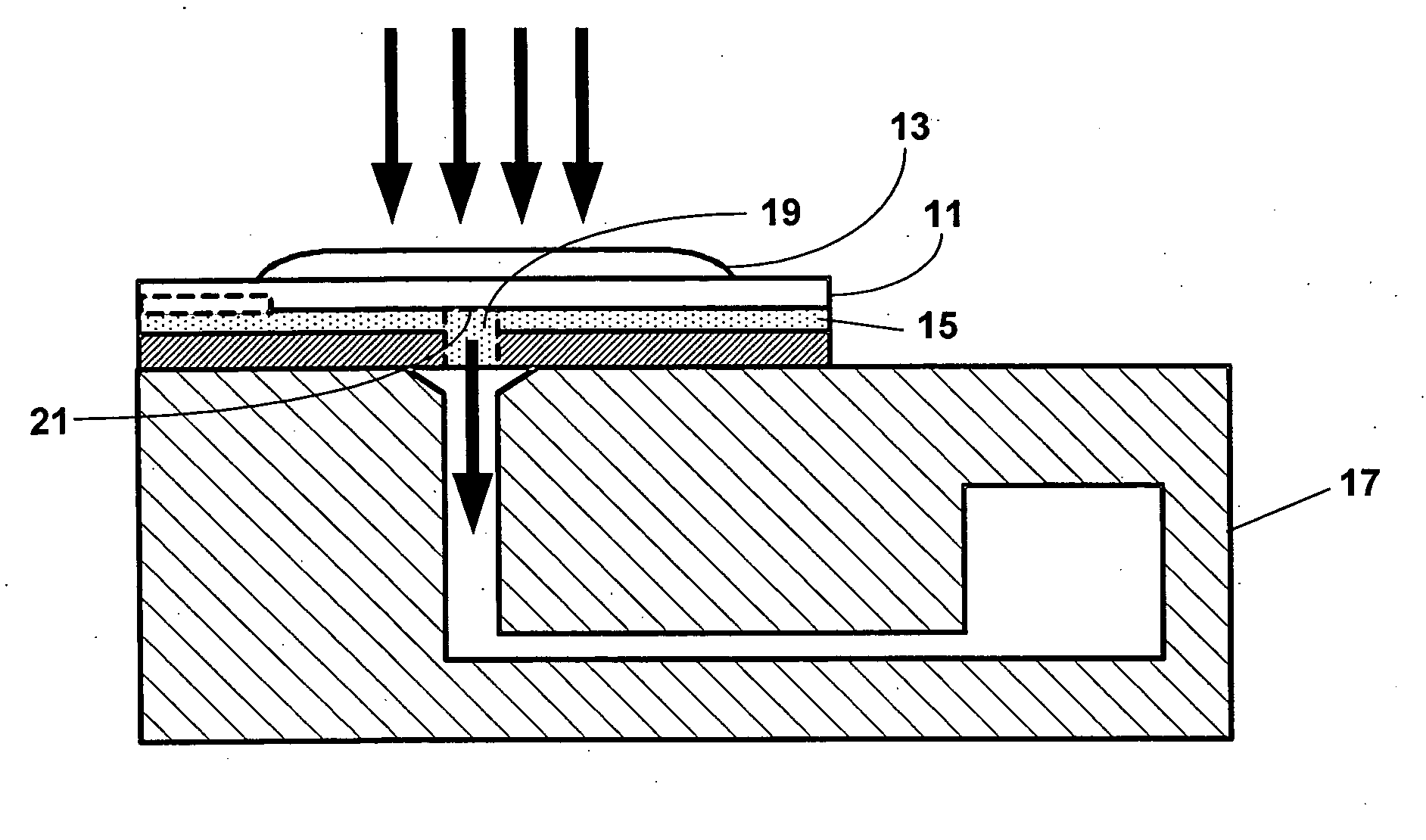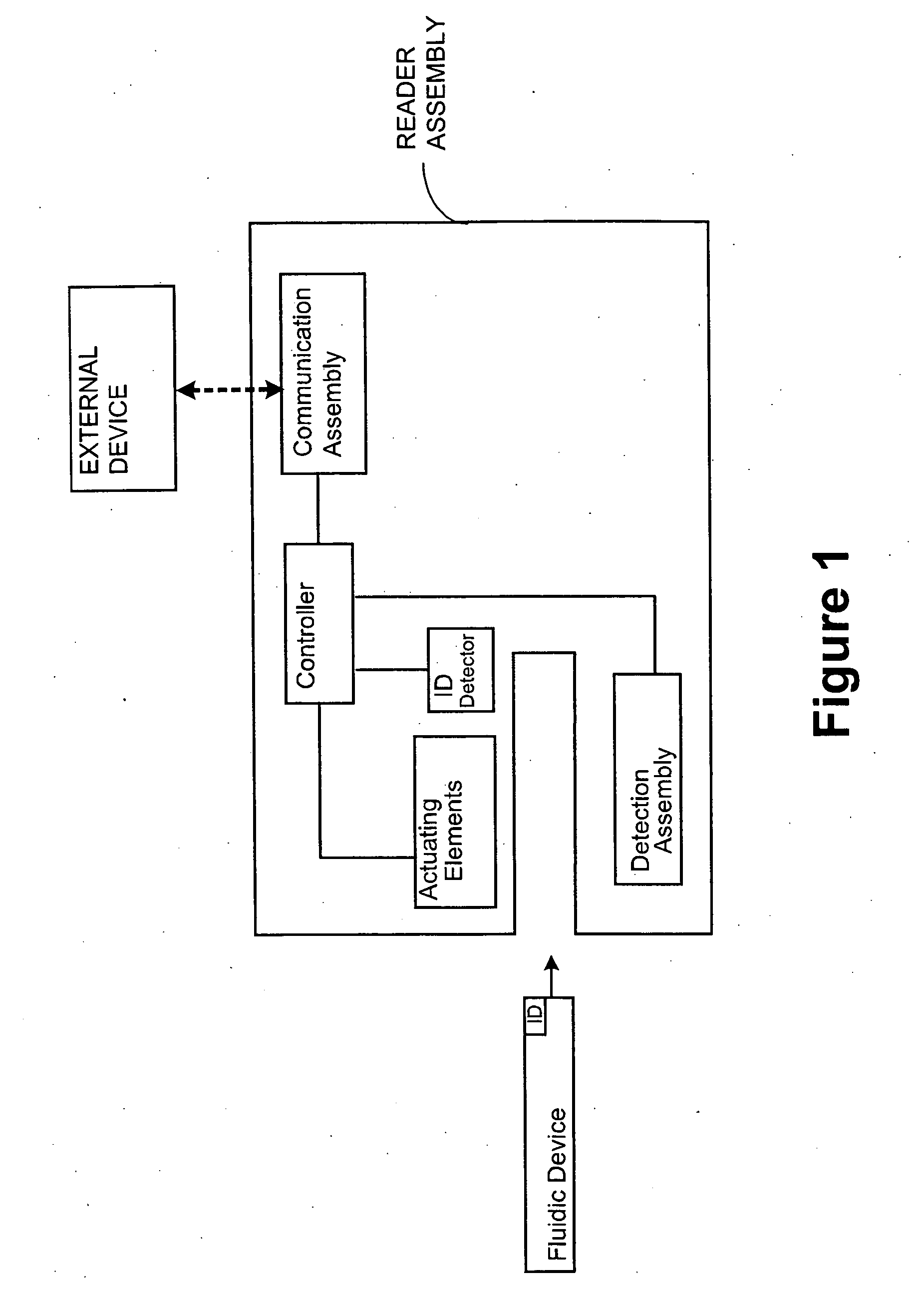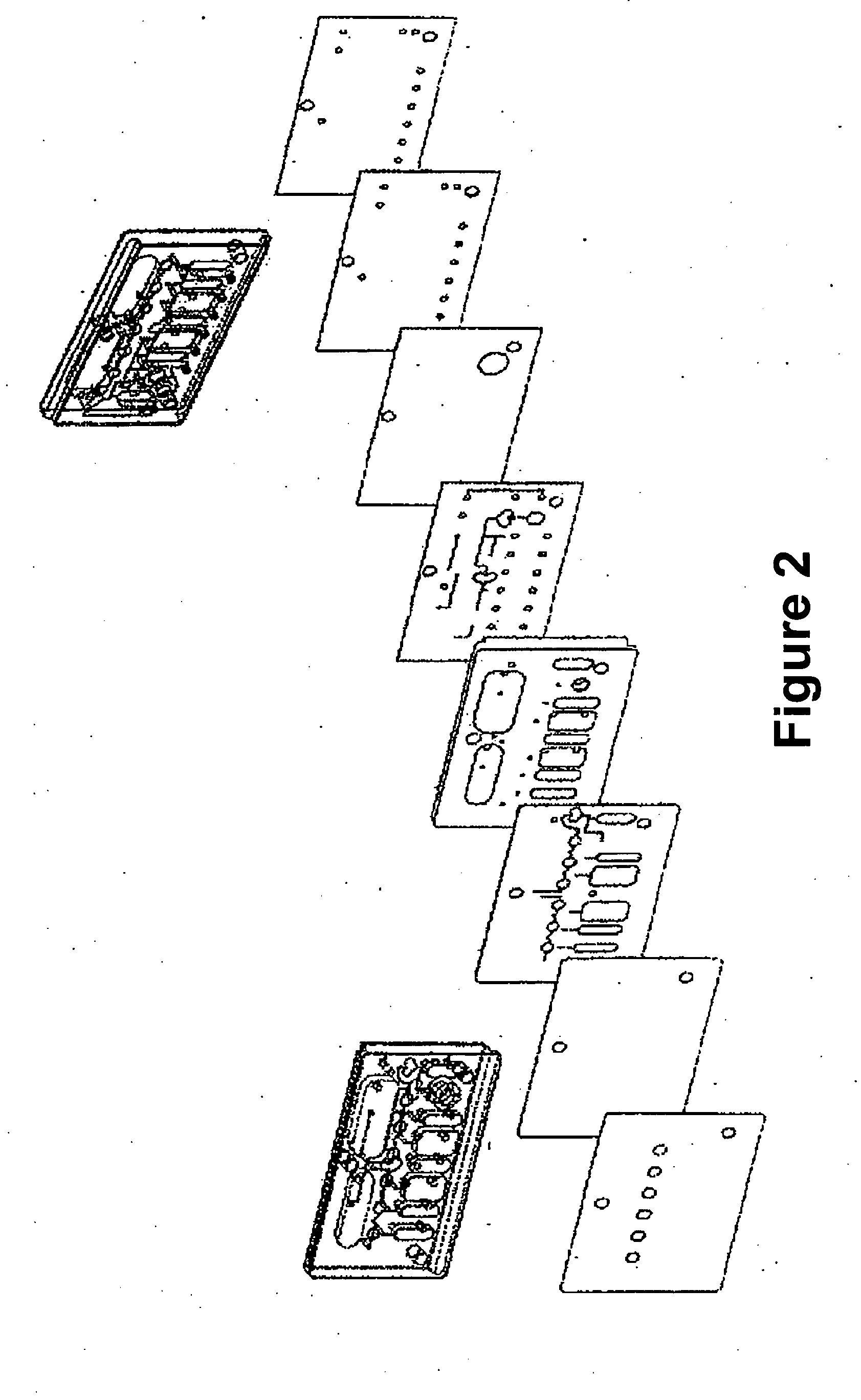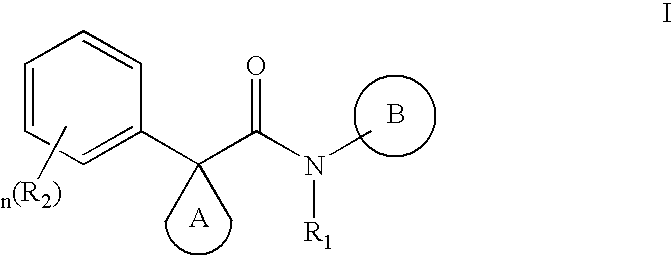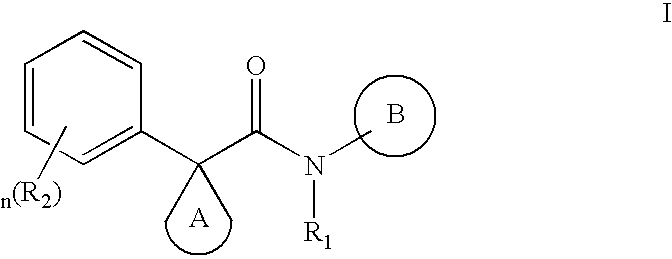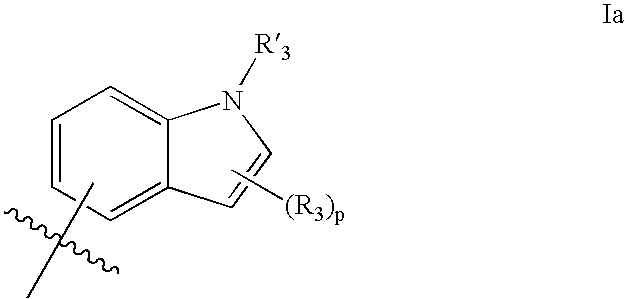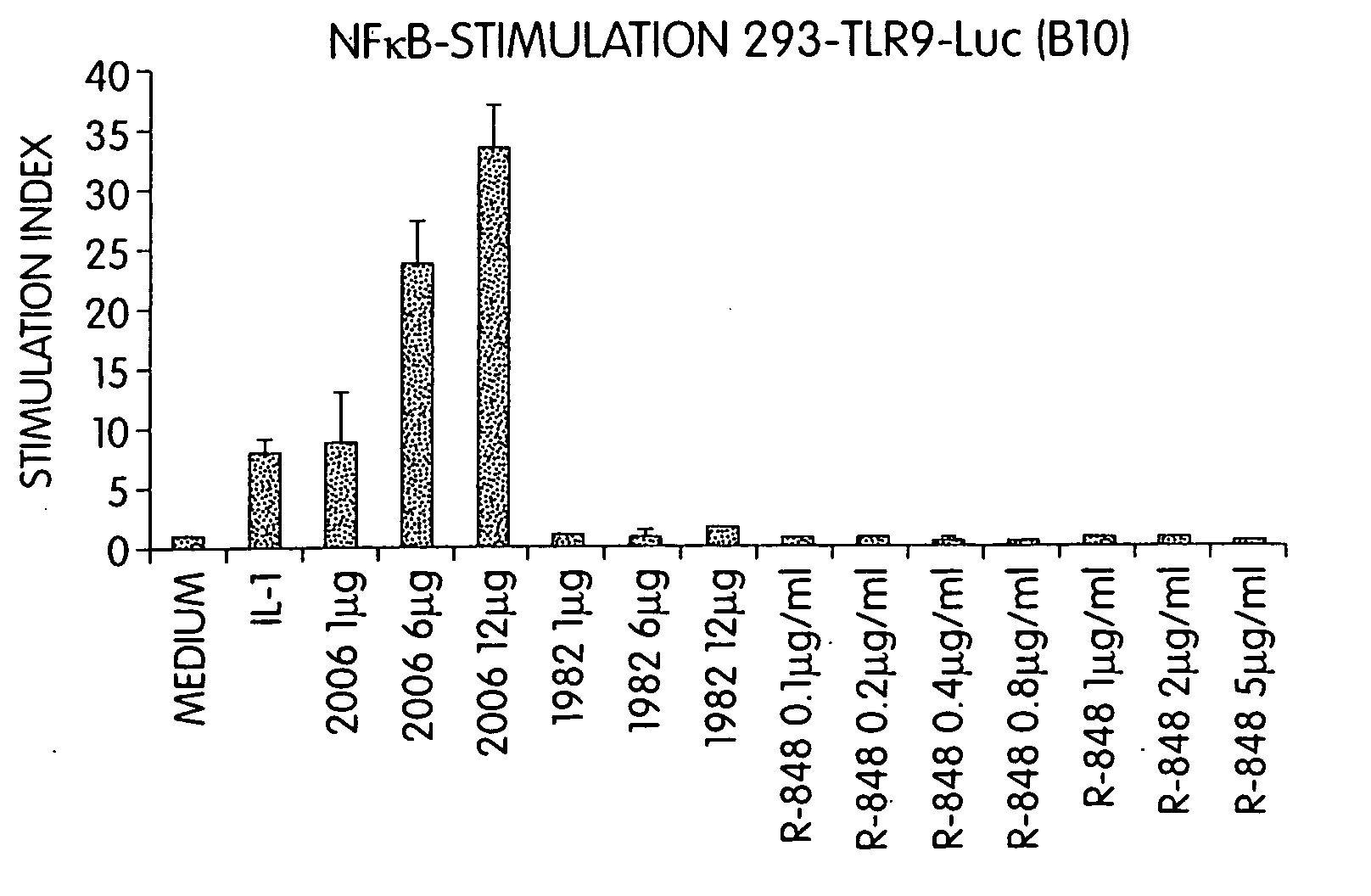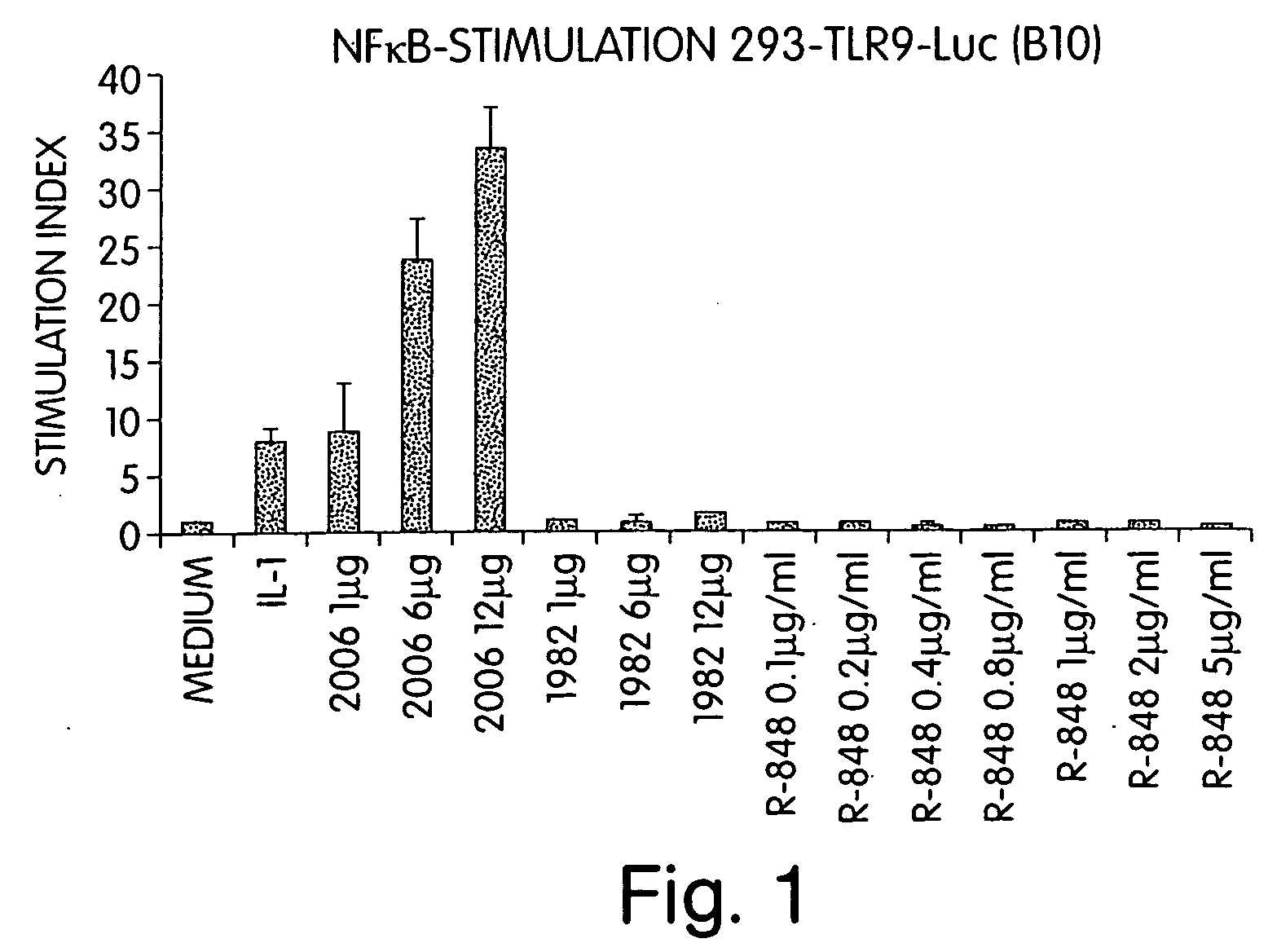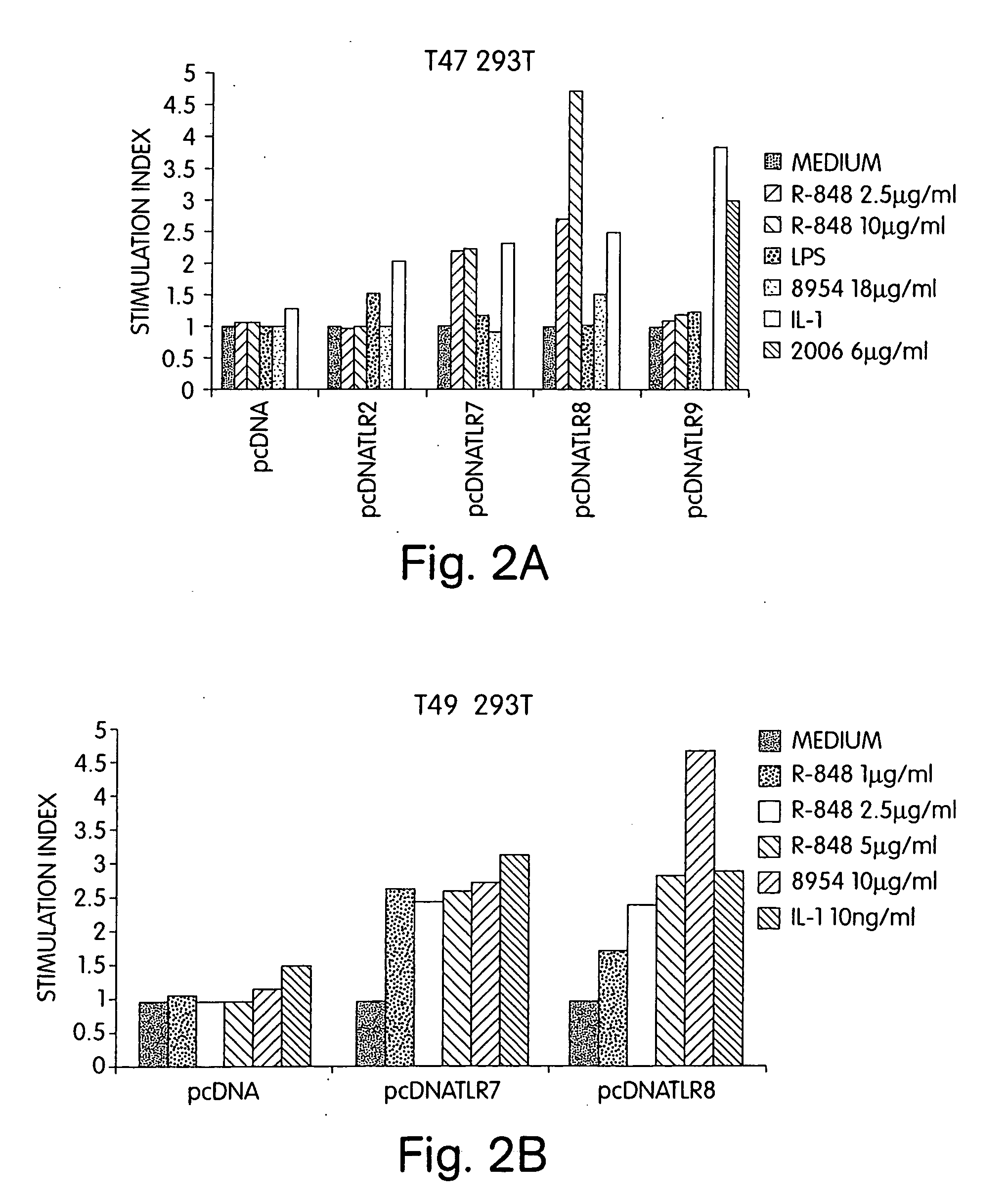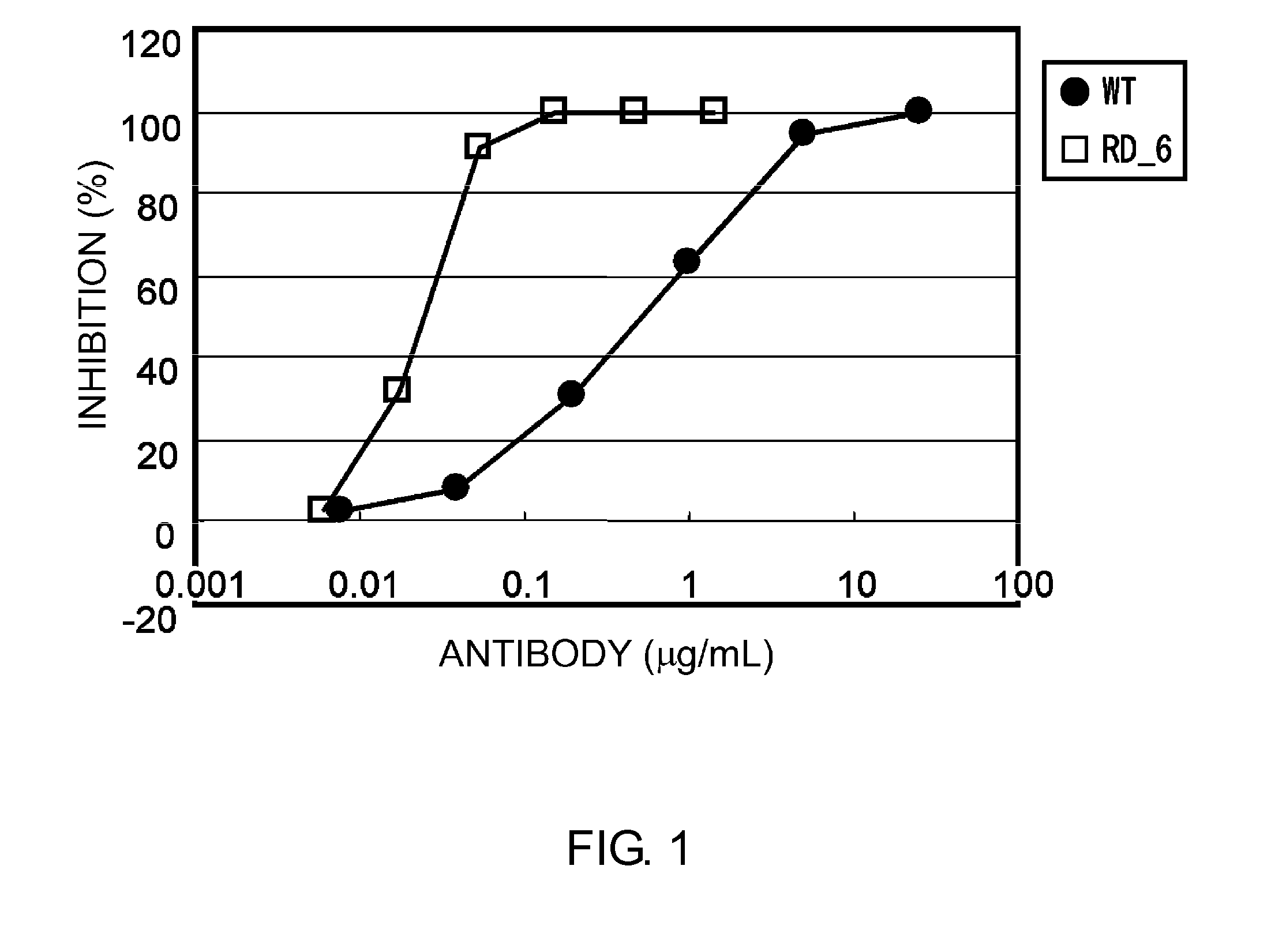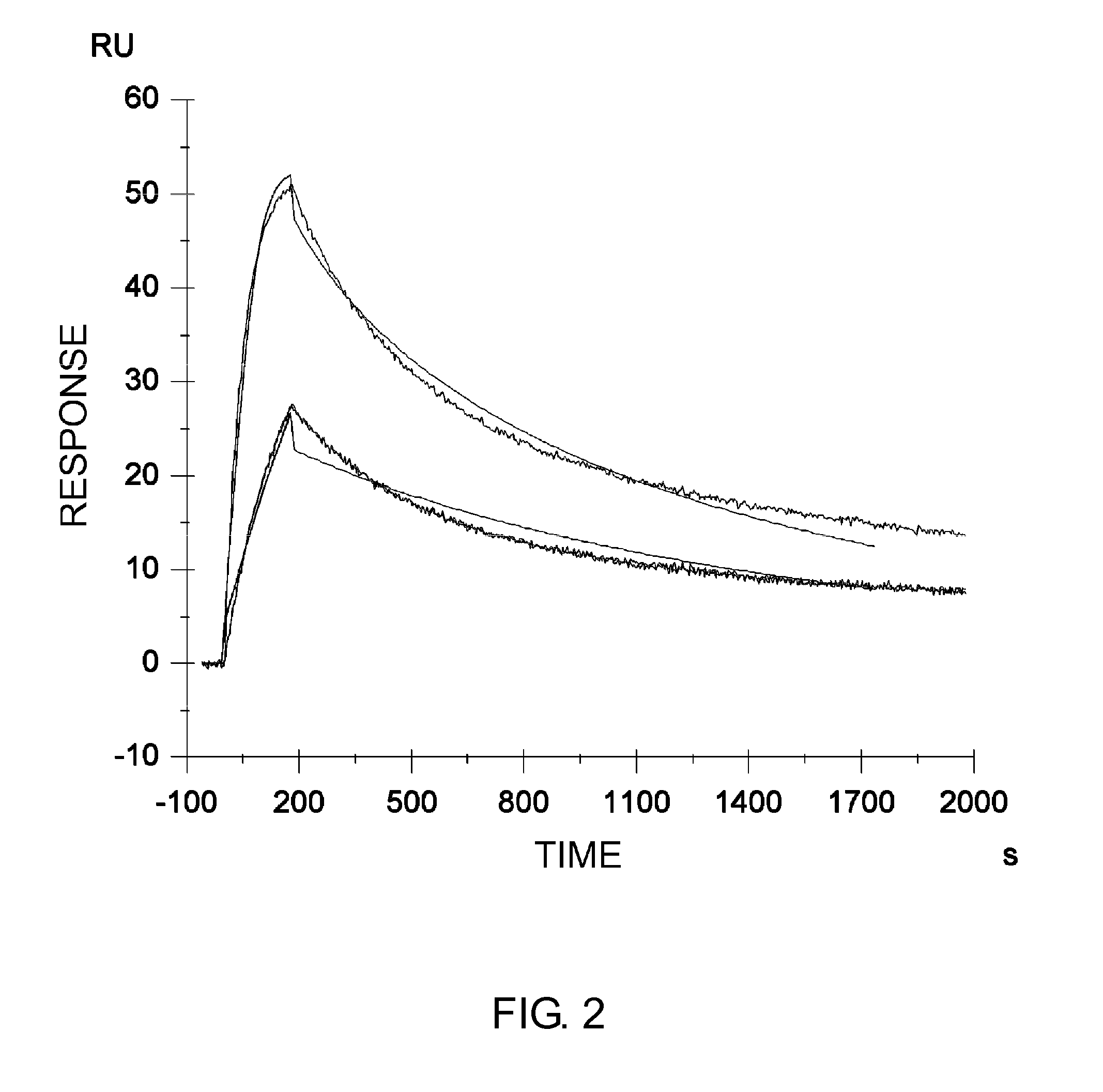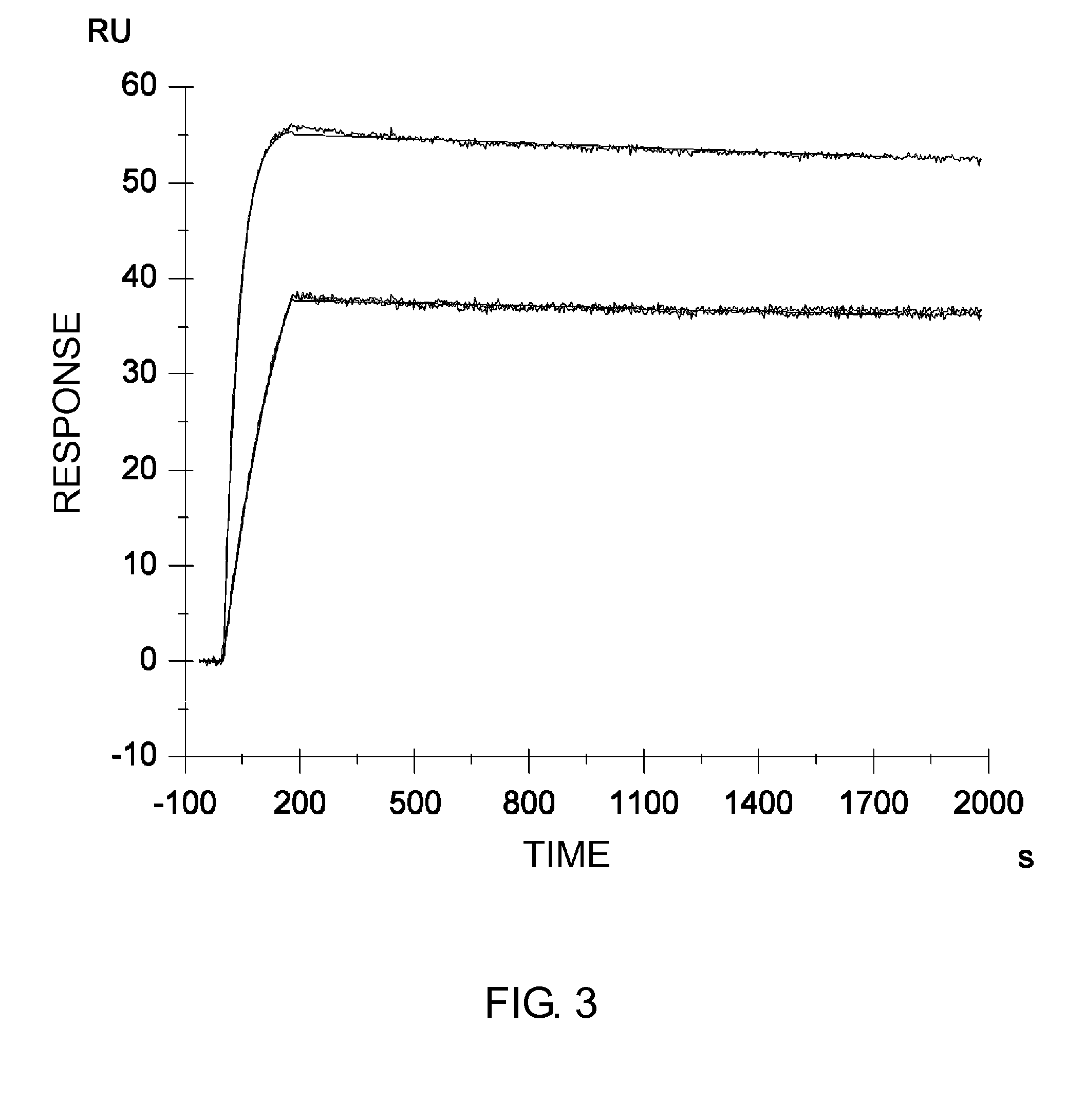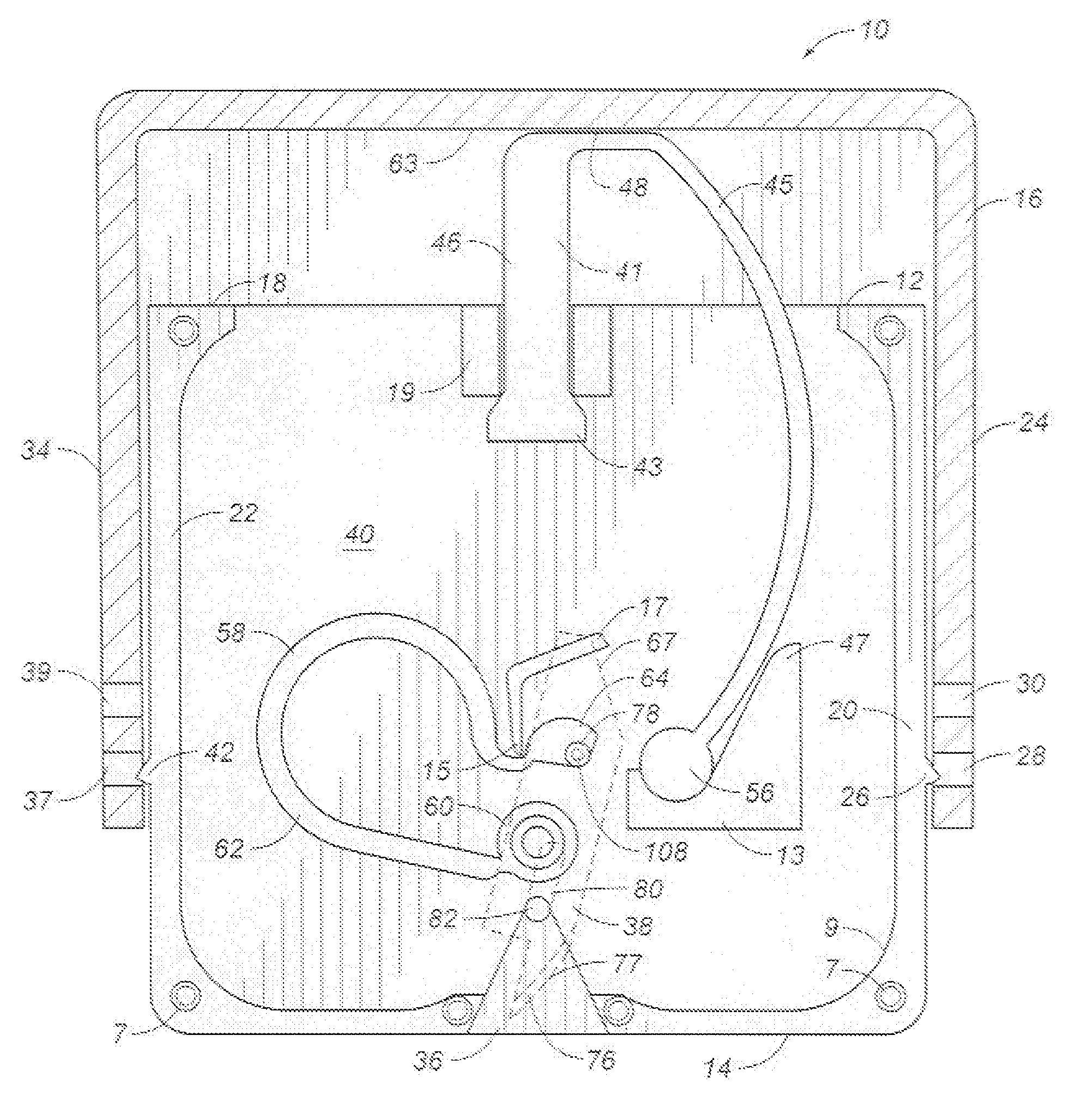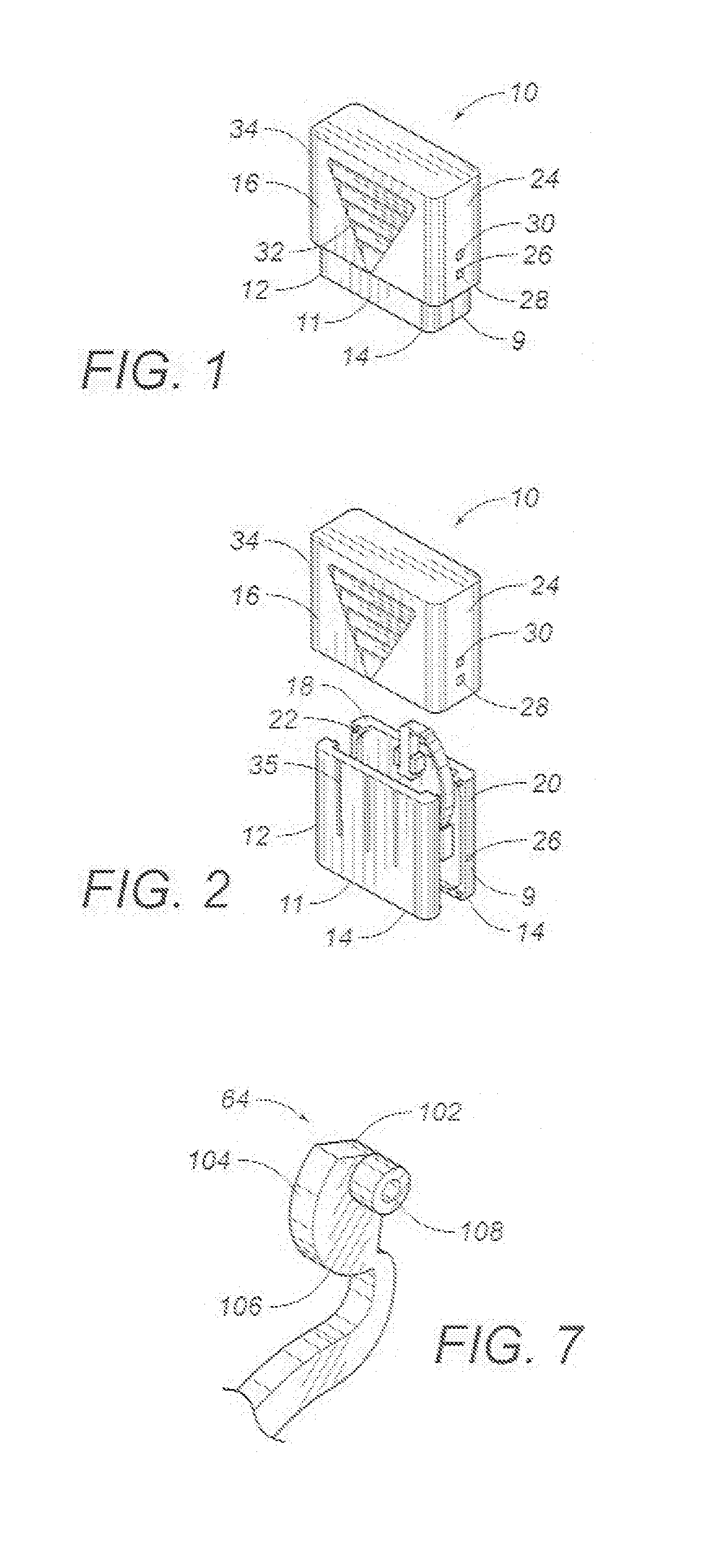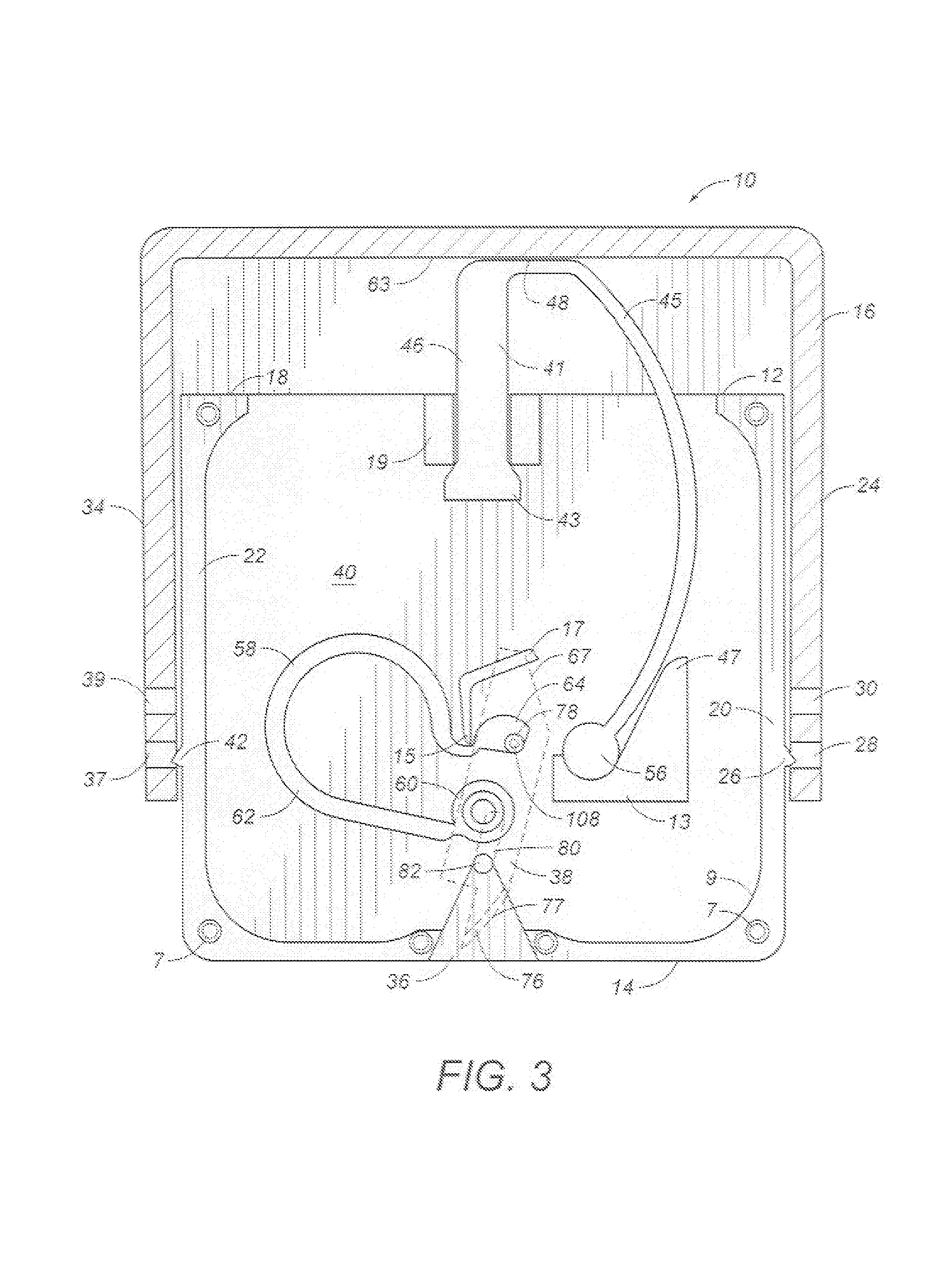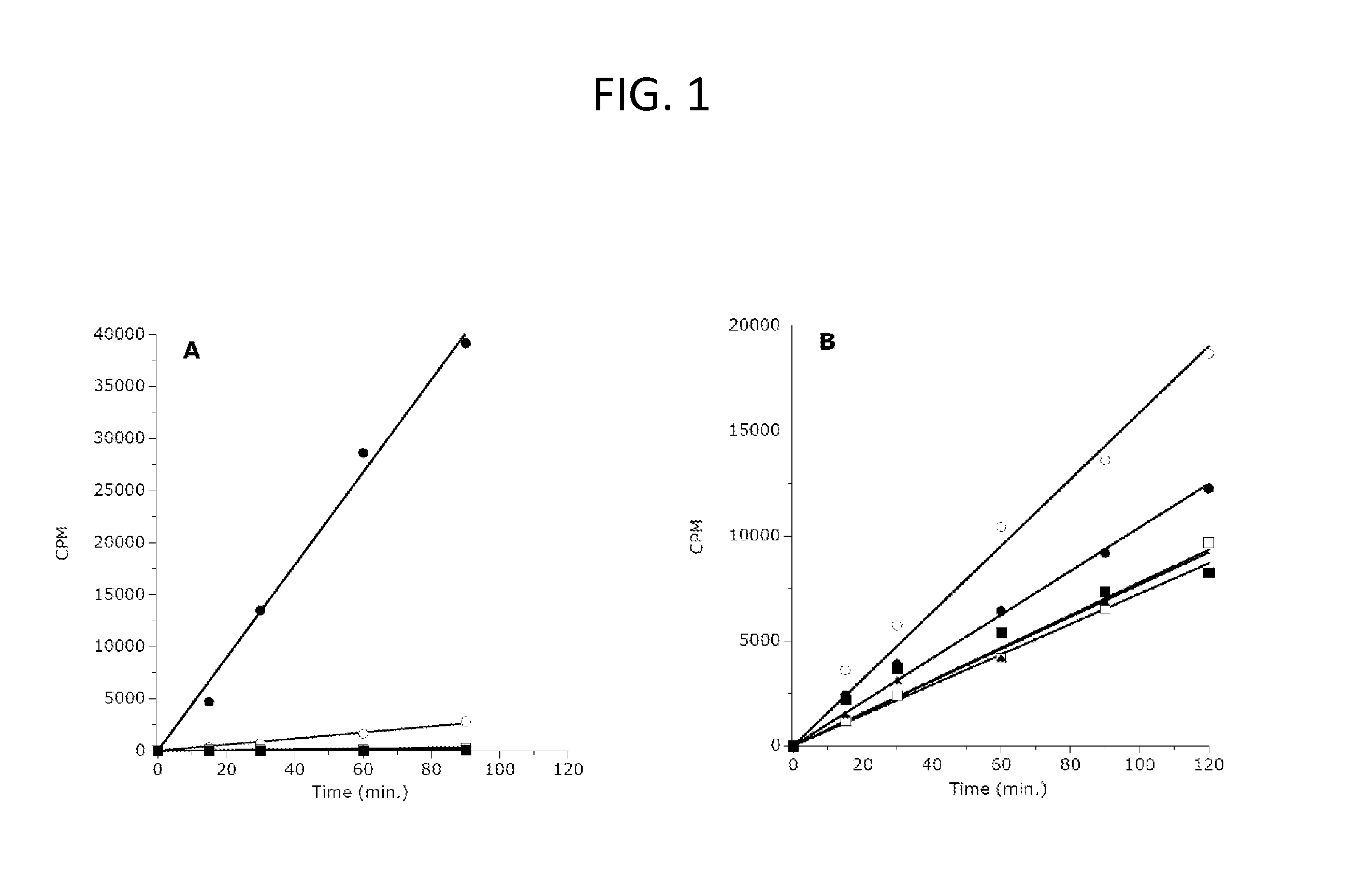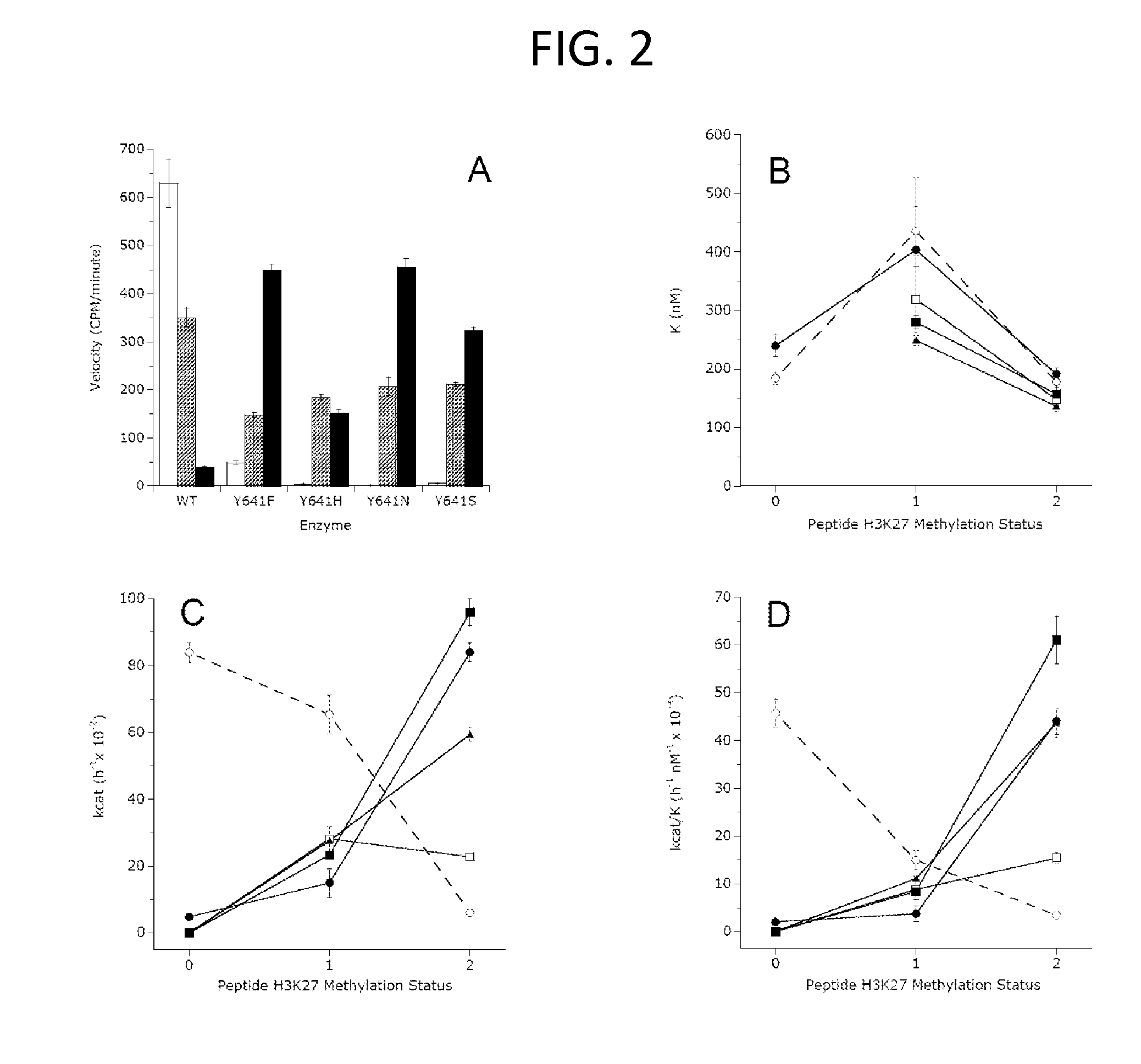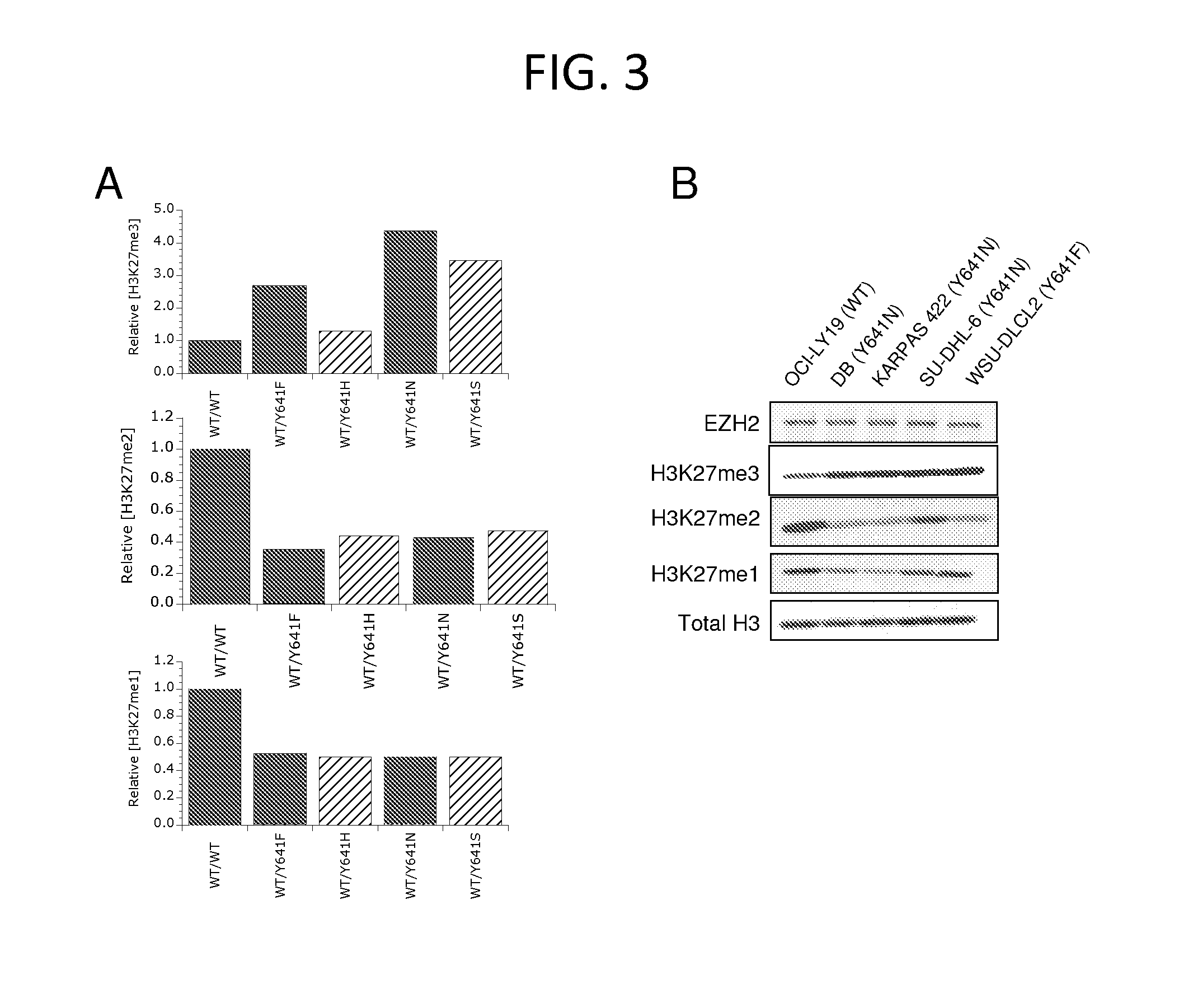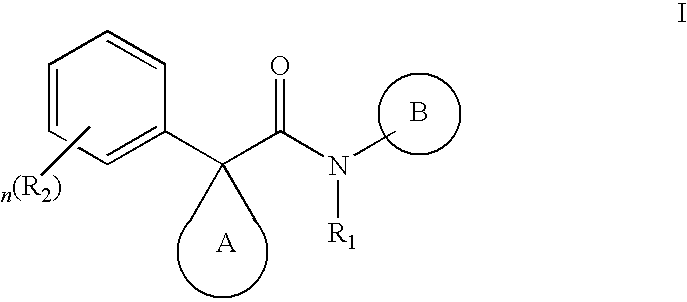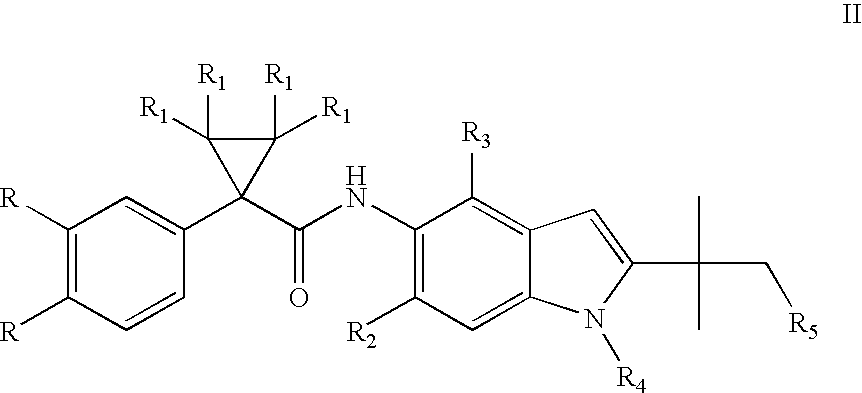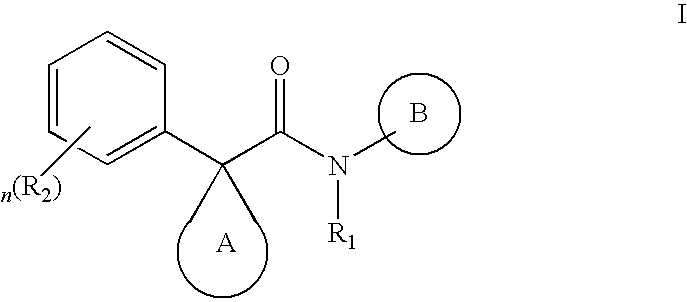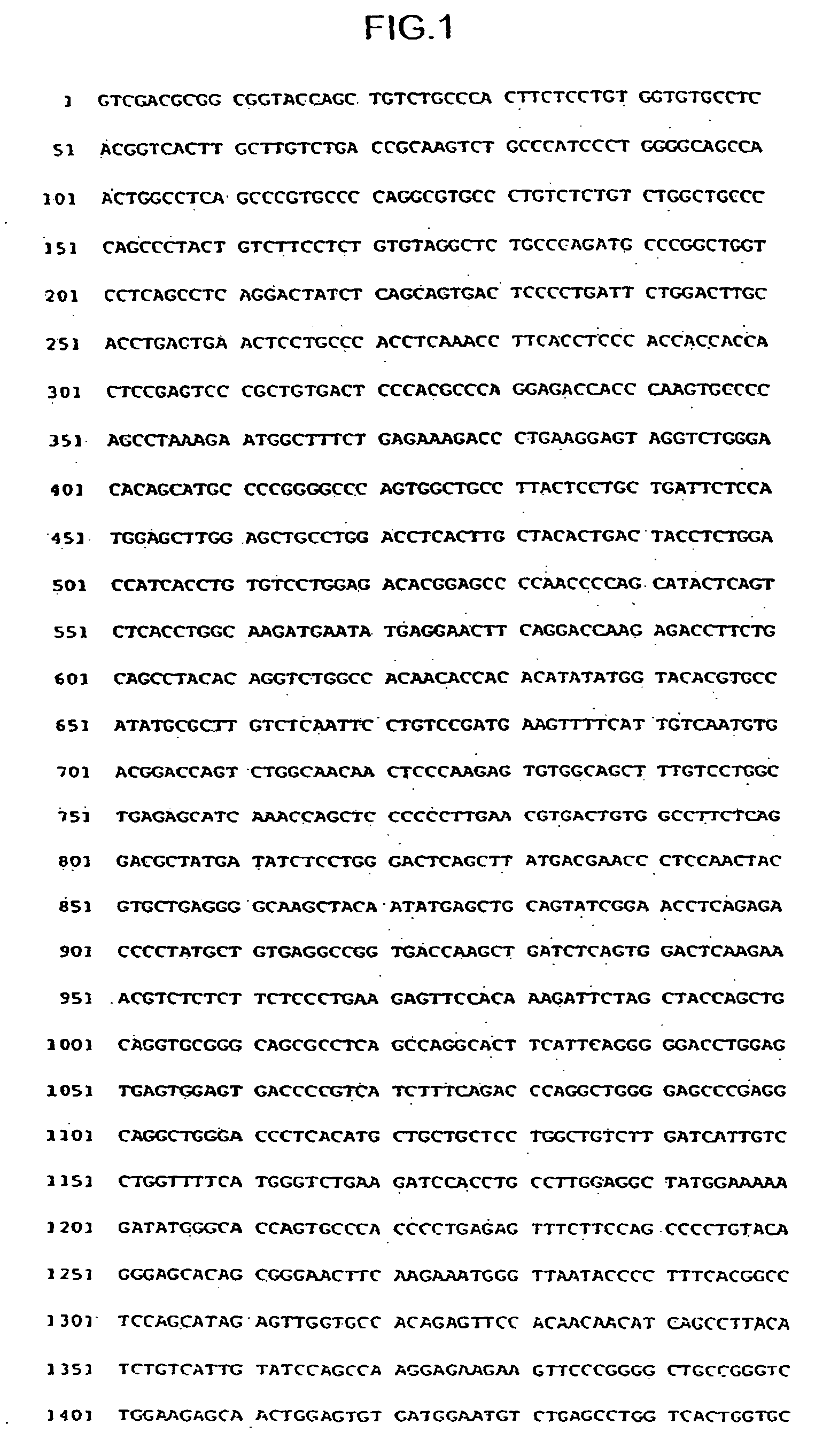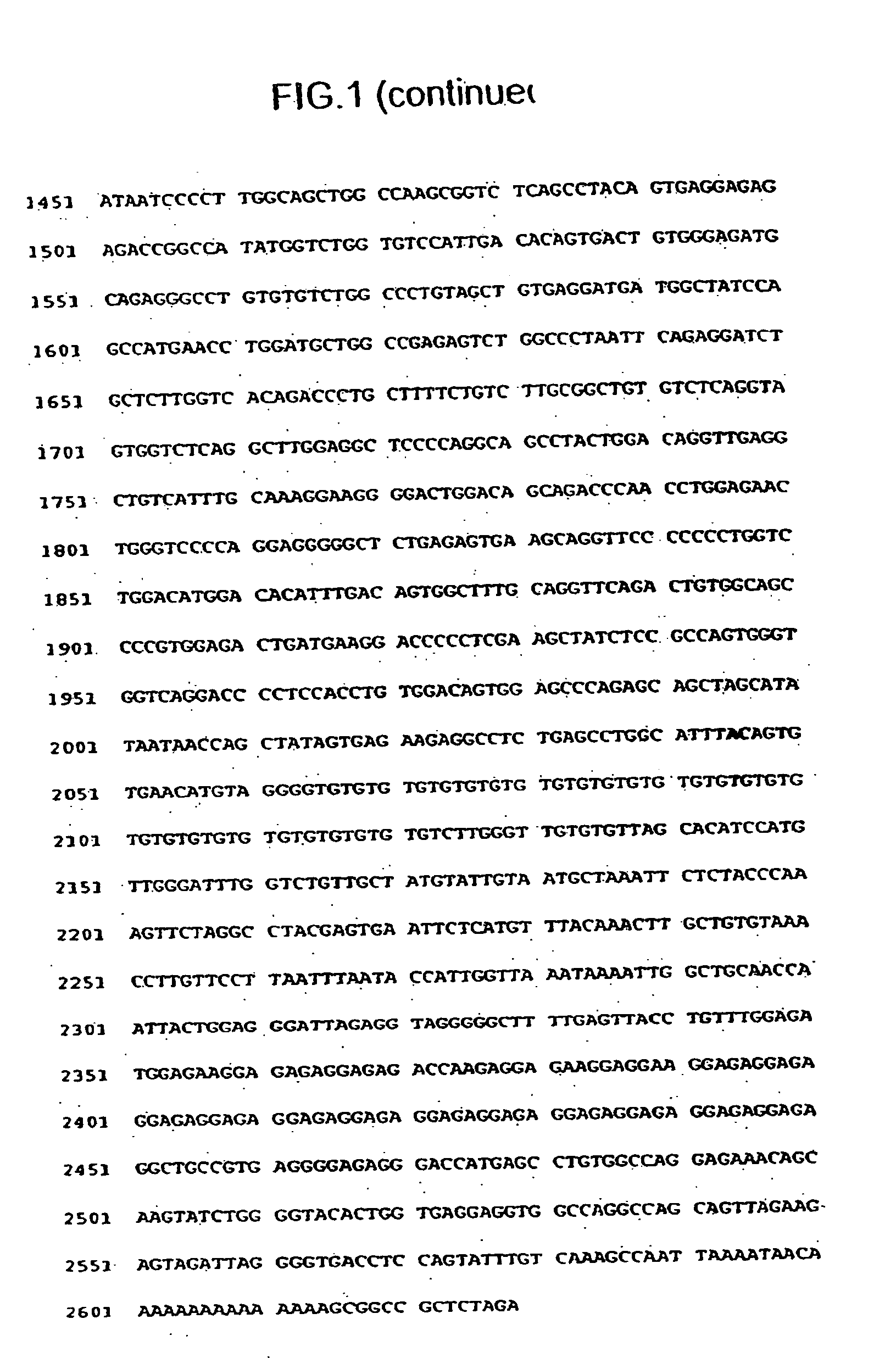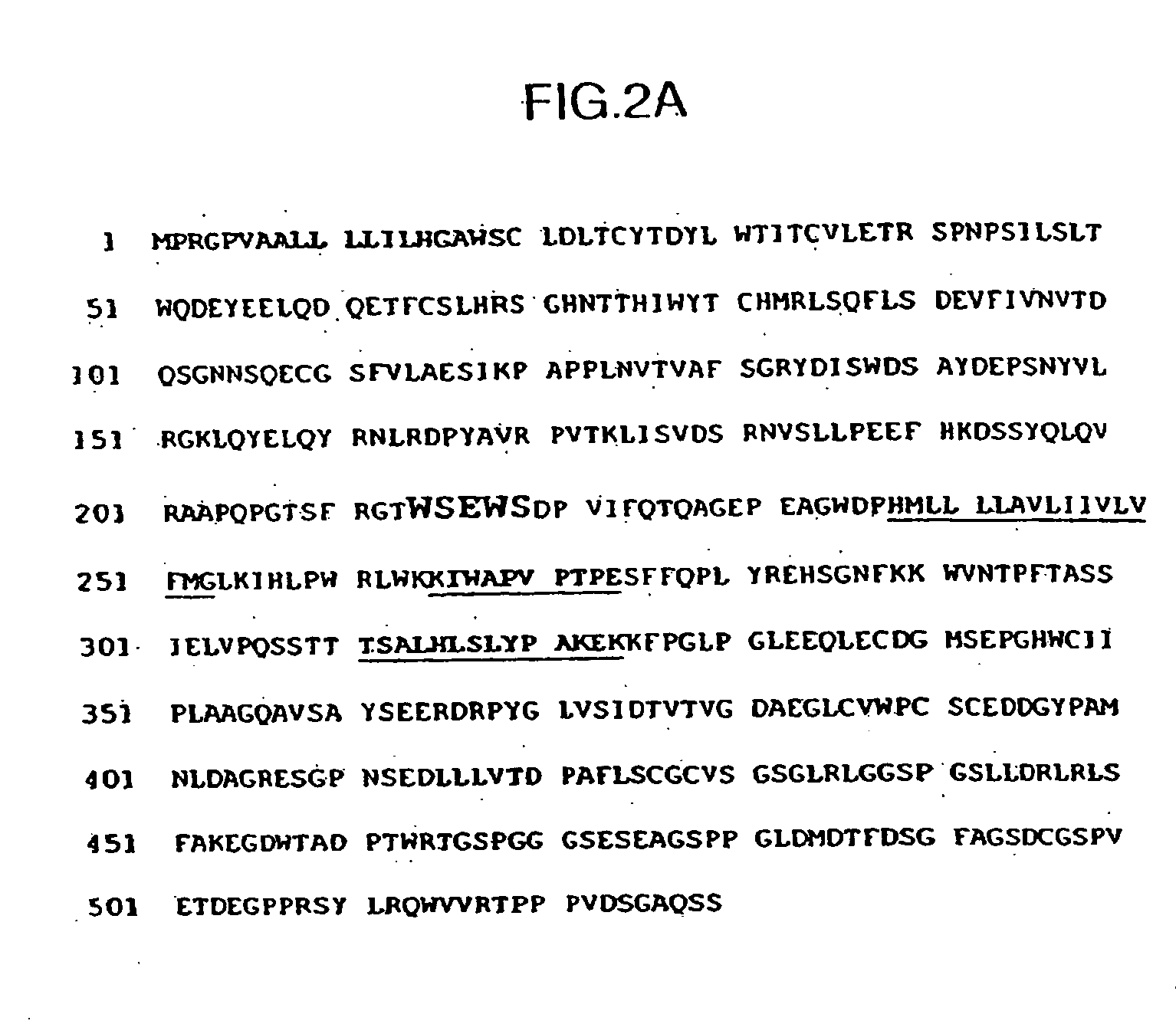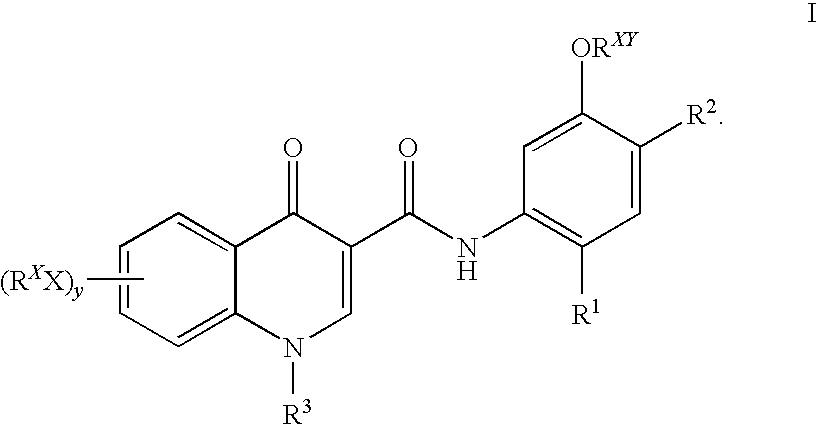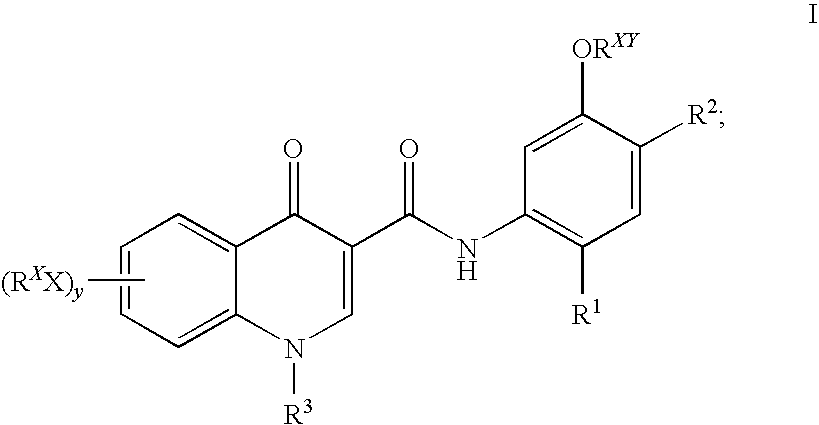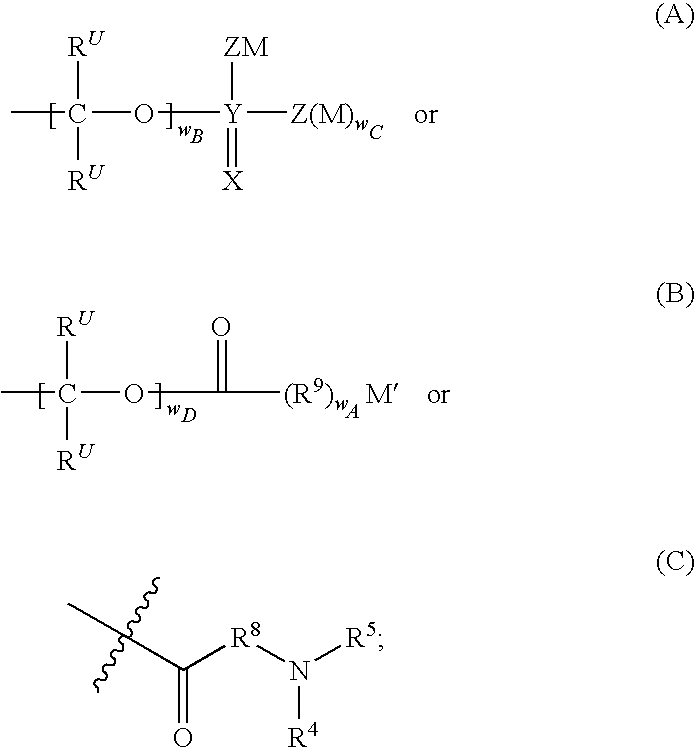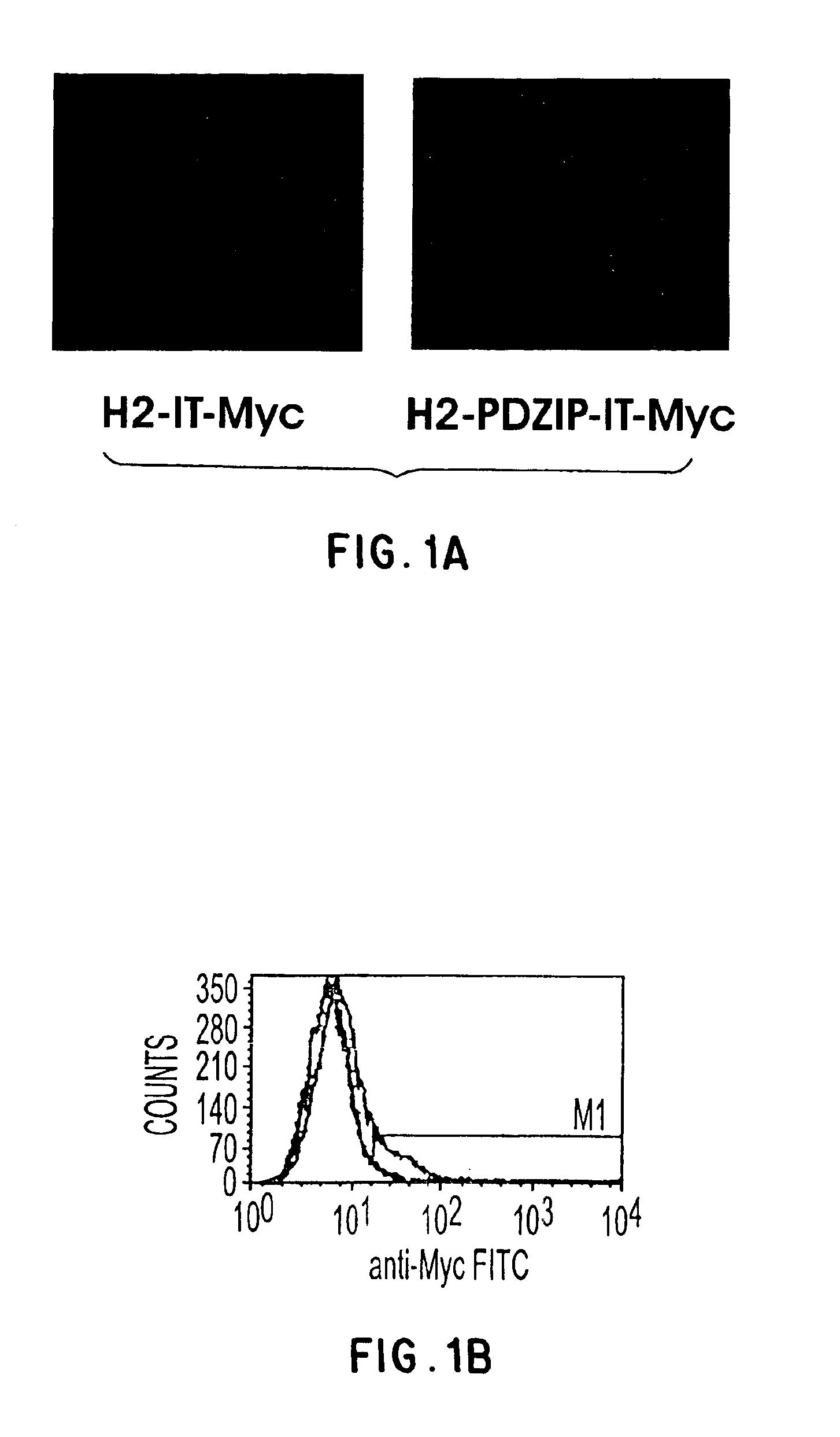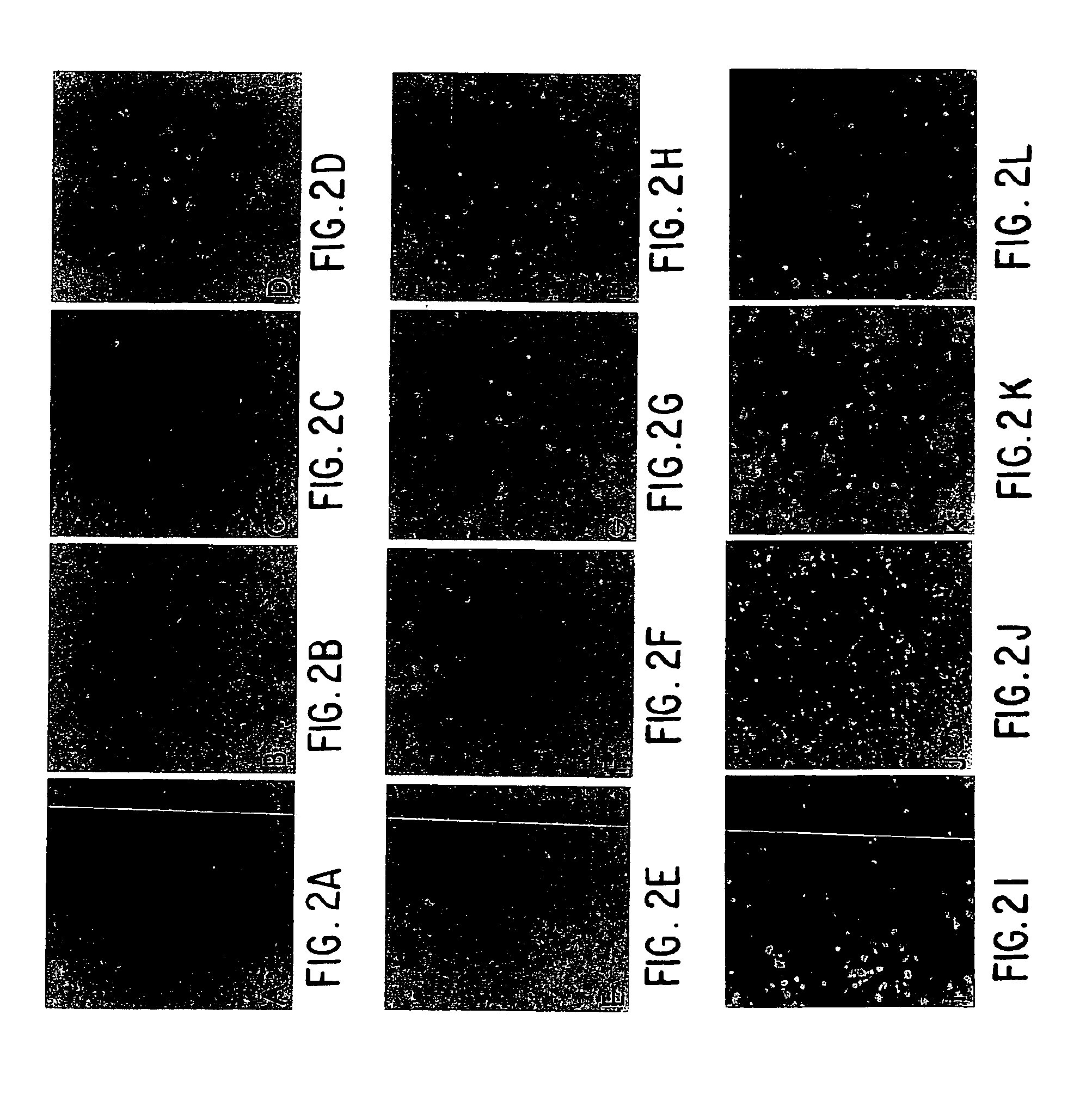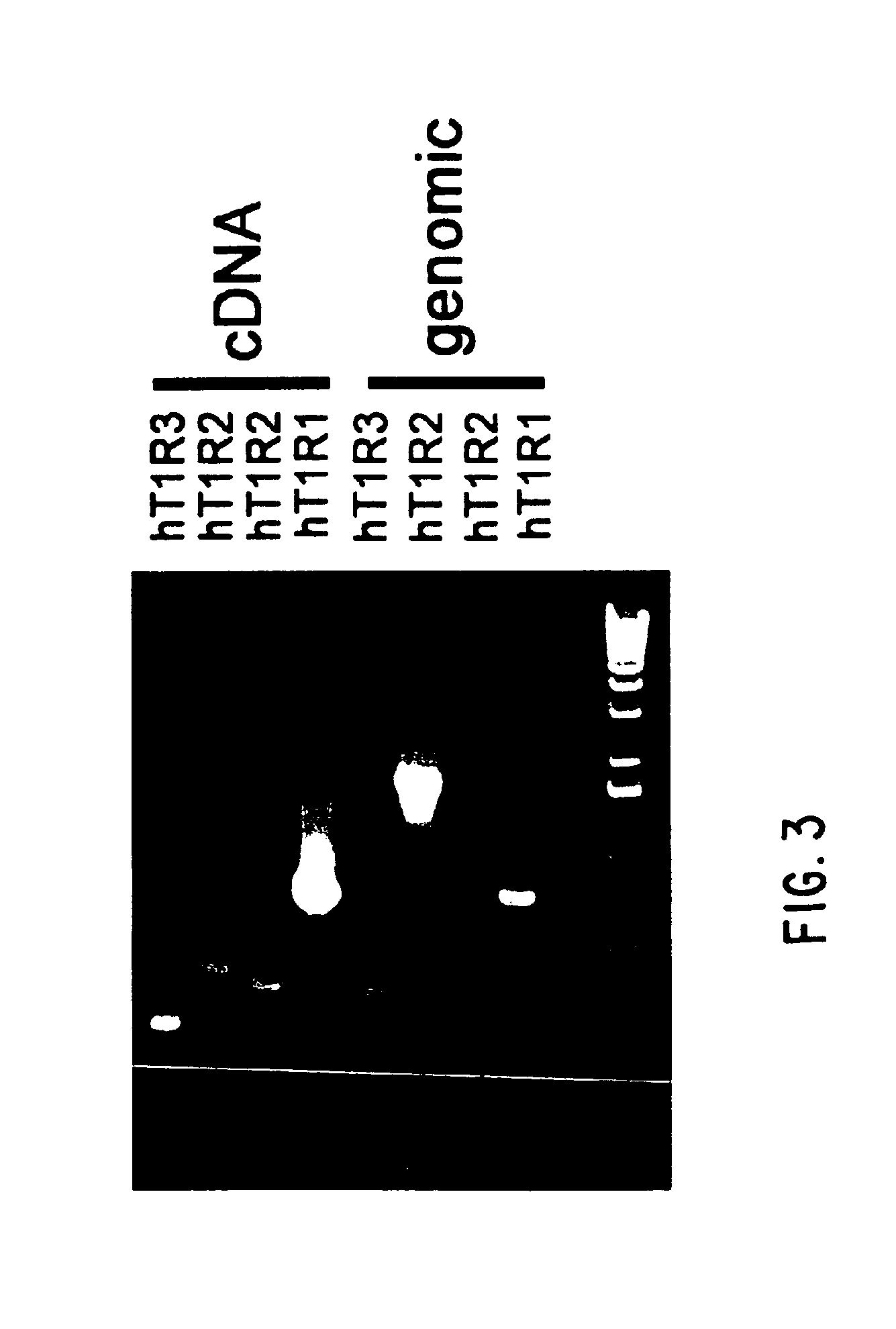Patents
Literature
7180results about "Apoptosis detection" patented technology
Efficacy Topic
Property
Owner
Technical Advancement
Application Domain
Technology Topic
Technology Field Word
Patent Country/Region
Patent Type
Patent Status
Application Year
Inventor
Droplet Libraries
Owner:BIO RAD LAB INC
Microfluidic Devices and Methods of Use in The Formation and Control of Nanoreactors
InactiveUS20100137163A1Material nanotechnologyCompound screeningHigh-Throughput Screening AssaysEmulsion
The present invention provides novel microfluidic devices and methods that are useful for performing high-throughput screening assays and combinatorial chemistry. Such methods can include labeling a library of compounds by emulsifying aqueous solutions of the compounds and aqueous solutions of unique liquid labels on a microfluidic device, which includes a plurality of electrically addressable, channel bearing fluidic modules integrally arranged on a microfabricated substrate such that a continuous channel is provided for flow of immiscible fluids, whereby each compound is labeled with a unique liquid label, pooling the labeled emulsions, coalescing the labeled emulsions with emulsions containing a specific cell or enzyme, thereby forming a nanoreactor, screening the nanoreactors for a desirable reaction between the contents of the nanoreactor, and decoding the liquid label, thereby identifying a single compound from a library of compounds.
Owner:BIO RAD LAB INC
Artificial antigen presenting cells and methods of use thereof
InactiveUS20020131960A1Palliating their conditionReduce riskBiocideCompound screeningEpitopeAccessory molecule
The invention provides an artificial antigen presenting cell (AAPC) comprising a eukaryotic cell expressing an antigen presenting complex comprising a human leukocyte antigen (HLA) molecule of a single type, at least one exogenous accessory molecule and at least one exogenous T cell-specific epitope. Methods of use for activation of T lymphocytes are also provided.
Owner:MEMORIAL SLOAN KETTERING CANCER CENT
c-Met kinase binding proteins
InactiveUS20060008844A1Stimulate and inhibit activityCompound screeningPeptide librariesKinase bindingC-Met
Owner:AMGEN MOUNTAIN VIEW
Compartmentalised screening by microfluidic control
InactiveUS20050221339A1Rapid and high-throughput screeningLow costCompound screeningSequential/parallel process reactionsCompound (substance)Drug development
The invention describes a method for the identification of compounds which bind to a target component of a biochemical system or modulate the activity of the target, comprising the steps of: a) compartmentalising the compounds into microcapsules together with the target, such that only a subset of the repertoire is represented in multiple copies in any one microcapsule; and b) identifying the compound which binds to or modulates the activity of the target; wherein at least one step is performed under microfluidic control. The invention enables the screening of large repertoires of molecules which can serve as leads for drug development.
Owner:PRESIDENT & FELLOWS OF HARVARD COLLEGE +1
Polypeptide variants with altered effector function
InactiveUS20060067930A1High affinity bindingWeaker binding affinityCompound screeningNervous disorderEffector functionsMolecular biology
The invention provides polypeptides having IgG Fc regions with amino acid modifications that result in the polypeptides exhibiting altered Fc effector functions.
Owner:GENENTECH INC
Imide-based modulators of proteolysis and associated methods of use
The description relates to imide-based compounds, including bifunctional compounds comprising the same, which find utility as modulators of targeted ubiquitination, especially inhibitors of a variety of polypeptides and other proteins which are degraded and / or otherwise inhibited by bifunctional compounds according to the present invention. In particular, the description provides compounds, which contain on one end a ligand which binds to the cereblon E3 ubiquitin ligase and on the other end a moiety which binds a target protein such that the target protein is placed in proximity to the ubiquitin ligase to effect degradation (and inhibition) of that protein. Compounds can be synthesized that exhibit a broad range of pharmacological activities consistent with the degradation / inhibition of targeted polypeptides of nearly any type.
Owner:ARVINAS OPERATIONS INC
Compartmentalised screening by microfluidic control
InactiveUS20070092914A1Rapid and high-throughput screeningLow costCompound screeningSequential/parallel process reactionsCompound (substance)Drug development
The invention describes a method for the identification of compounds which bind to a target component of a biochemical system or modulate the activity of the target, comprising the steps of: a) compartmentalising the compounds into microcapsules together with the target, such that only a subset of the repertoire is represented in multiple copies in any one microcapsule; and b) identifying the compound which binds to or modulates the activity of the target; wherein at least one step is performed under microfluidic control. The invention enables the screening of large repertoires of molecules which can serve as leads for drug development.
Owner:PRESIDENT & FELLOWS OF HARVARD COLLEGE +1
Antigen-binding molecule capable of binding to two or more antigen molecules repeatedly
InactiveUS20110111406A1Pharmacokinetics of the antigen-binding molecule can be improvedGood effectSsRNA viruses negative-senseCompound screeningHalf-lifeAntigen binding
The present inventors discovered that antibodies having weaker antigen-binding activity at the early endosomal pH in comparison with that at the pH of plasma are capable of binding to multiple antigen molecules with a single antibody molecule, have long half-lives in plasma, and have improved durations of time in which they can bind to antigen.
Owner:CHUGAI PHARMA CO LTD
Cell flow apparatus and method for real-time of cellular responses
InactiveUS6280967B1Quick filterIncrease the number ofBioreactor/fermenter combinationsCompound screeningMeasurement testCell type
An apparatus and method for real-time measurement of a cellular response of a test compound or series of test compounds (303) on a flowing suspension of cells (349), in which a homogeneous suspension of each member of a series of cell types (349) is combined with a concentration of a test compound (303), directed through a detection zone (355), and a cellular response of the living cells is measured in real time as the cells in the test mixture are flowing through the detection zone (355). The apparatus may be used in automated screening of libraries of compounds, and is capable of real-time variation of concentrations of test and standard compounds and generation of dose / response profiles within a short time span.
Owner:CAPLIPER LIFE SCI INC
EGFR mutations
The present invention relates to mutations in Epidermal Growth Factor Receptor (EGFR) and methods of detecting such mutations as well as prognostic methods method for identifying a tumors that are susceptible to anticancer therapy such as chemotherapy and / or kinase inhibitor treatment. The methods involve determining the presence of a mutated EGFR gene or mutated EGFR protein in a tumor sample whereby the presence of a mutated EGFR gene or protein indicates the tumor is susceptible to treatment.
Owner:GENENTECH INC
Cell flow apparatus and method for real-time measurements of patient cellular responses
InactiveUS6558916B2Quick filterIncrease the number ofCompound screeningBioreactor/fermenter combinationsTest agentBiology
Owner:CAPLIPER LIFE SCI INC
Plant extracts and dermatological uses thereof
InactiveUS20070122492A1Good for healthGood lookingBiocideCompound screeningMatrix metalloproteasesSkin lines
The present invention provides for plant extracts and dermatological formulations comprising one or more plant extracts that are capable of inhibiting one or more extracellular proteases selected from the group of: matrix metalloprotease-1 (MMP-1), matrix metalloprotease-2 (MMP-2), matrix metalloprotease-3 (MMP-3), matrix metalloprotease-9 (MMP-9) and human leukocyte elastase (HLE). The present invention further provides for a rapid method for screening plant extracts to identify those having the above activity that are suitable for incorporation into the dermatological formulations of the invention. The invention also provides for the use of the plant extracts as dermatological agents suitable for the treatment or prevention of various dermatological conditions, including wrinkling or sagging of the skin, irradiation induced skin and / or hair damage, deepening of skin lines, elastotic changes in the skin, as well as for the routine care of the skin, hair and / or nails.
Owner:BIOPHARMACOPAE DESIGN INT
Methods of predicting and monitoring tyrosine kinase inhibitor therapy
InactiveUS20070254295A1Eliminate side effectsCompound screeningApoptosis detectionAbnormal tissue growthSide effect
Owner:SOC DES PROD NESTLE SA
Methods for treating diabetic neuropathy
InactiveUS7030146B2Quick filterReduce the amount requiredCompound screeningBiocideInternal medicinePyridoxamine
A method for treating diabetic neuropathy is disclosed consisting of administering pyridoxamine or a salt thereof.
Owner:UNIVERSITY OF SOUTH CAROLINA +1
Abeta 42 lowering agents
InactiveUS20020128319A1Prevent and delay and reverse progressionLower Level RequirementsCompounds screening/testingCompound screeningRegimenCholinesterase inhibition
The invention provides a method of preventing, delaying, or reversing the progression of Alzheimer's disease by administering an A.beta..sub.42 lowering agent to a mammal under conditions in which levels of A.beta..sub.42 are selectively reduced, levels of A.beta..sub.38 are increased, and levels of A.beta..sub.40 are unchanged. The invention provides methods and materials for developing and identifying A.beta..sub.42 lowering agents. In addition, the invention provides methods for identifying agents that increase the risk of developing, or hasten progression of, Alzheimer's disease. The invention also provides compositions of A.beta..sub.42 lowering agents and antioxidants, A.beta..sub.42 lowering agents and non-selective secretase inhibitors, as well as A.beta..sub.42 lowering agents and acetylcholinesterase inhibitors. The invention also provides kits containing A.beta..sub.42 lowering agents, antioxidants, non-selective secretase inhibitors, and / or acetylcholinesterase inhibitors as well as instructions related to dose regimens for A.beta..sub.42 lowering agents, antioxidants, non-selective secretase inhibitors, and acetylcholinesterase inhibitors.
Owner:RGT UNIV OF CALIFORNIA
Indole derivatives as CFTR modulators
Compounds of the present invention and pharmaceutically acceptable compositions thereof, are useful as modulators of ATP-Binding Cassette (“ABC”) transporters or fragments thereof, including Cystic Fibrosis Transmembrane Conductance Regulator (“CFTR”). The present invention also relates to methods of treating ABC transporter mediated diseases using compounds of the present invention.
Owner:VERTEX PHARMA INC
Identication of peptides that facilitate uptake and cytoplasmic and/or nuclear transport of proteins, DNA and virues
InactiveUS6881825B1Reduce deliveryFacilitating uptakeCompound screeningApoptosis detectionIn vivoCell type
The present invention relates to internalizing peptides which facilitate the uptake and transport of cargo into the cytoplasm and nuclei of cells as well as methods for the identification of the peptides, and methods of use for the peptides. The internalizing peptides of the present invention are selected for their ability to efficiently internalize cargo into a wide variety of cell types both in vivo and in vitro.
Owner:UNIVERSITY OF PITTSBURGH
Advanced drug development and manufacturing
X-ray fluorescence (XRF) spectrometry has been used for detecting binding events and measuring binding selectivities between chemicals and receptors. XRF may also be used for estimating the therapeutic index of a chemical, for estimating the binding selectivity of a chemical versus chemical analogs, for measuring post-translational modifications of proteins, and for drug manufacturing.
Owner:RGT UNIV OF CALIFORNIA
High throughput processing system and method of using
Briefly, the present invention provides a system and method for high throughput processing using sample holders. The system has a plurality of work perimeters, with a rotational robot preferably associated with each work perimeter. At least one transfer station area is provided between adjacent work perimeters to facilitate robotic transfer of sample holders from one work perimeter to another area. Each work perimeter typically includes a plurality of defined station locations, with each station location positioned to be accessible by the robot associated with that area. In addition, each station location is typically configured to receive a device, such as an automated instrument or a holding nest. Device components are arranged at selected station locations according to specific application requirements to provide a flexible, robust, reliable, and accurate high throughput processing system.
Owner:NOVARTIS AG
Point-of-care fluidic systems and uses thereof
ActiveUS20060264782A1Simplify laborFacilitate high throughput point-of-care testingBioreactor/fermenter combinationsBiological substance pretreatmentsPoint of careBiological fluid
This invention is in the field of medical devices. Specifically, the present invention provides portable medical devices that allow real-time detection of analytes from a biological fluid. The methods and devices are particularly useful for providing point-of-care testing for a variety of medical applications.
Owner:LABRADOR DIAGNOSTICS LLC
Modulators of ATP-binding cassette transporters
Compounds of the present invention and pharmaceutically acceptable compositions thereof, are useful as modulators of ATP-Binding Cassette (“ABC”) transporters or fragments thereof, including Cystic Fibrosis Transmembrane Conductance Regulator (“CFTR”). The present invention also relates to methods of treating ABC transporter mediated diseases using compounds of the present invention.
Owner:VERTEX PHARMA INC
Methods and products for enhancing immune responses using imidazoquinoline compounds
InactiveUS20060188913A1Good curative effectReduce doseCompound screeningApoptosis detectionTime scheduleDisease
The invention involves administration of an imidazoquinoline agent in combination with another therapeutic agent. The combination of drugs may be administered in synergistic amounts or in various dosages or at various time schedules. The invention also relates to kits and compositions concerning the combination of drugs. The combinations can be used to enhance ADCC, stimulate immune responses and / or patient and treat certain disorders.
Owner:COLEY PHARM GRP INC +2
Anti-IL-6 Receptor Antibody
InactiveUS20110245473A1Enhanced antigen-neutralizing activity and pharmacokineticsGood treatment effectCompound screeningApoptosis detectionHigh concentrationHinge region
The present inventors succeeded in discovering specific amino acid mutations in the variable region, framework region, and constant region of TOCILIZUMAB, and this enables to reduce immunogenicity risk and the heterogeneity originated from disulfide bonds in the hinge region, as well as to improve antigen binding activity, pharmacokinetics, stability under acidic conditions, and stability in high concentration preparations.
Owner:CHUGAI PHARMA CO LTD
Load-controlled device for a patterned skin incision
InactiveUS7160313B2Minimize traumaReduce introductionCompound screeningApoptosis detectionEngineeringSkin incision
A skin incision device has a casing having a bottom surface with a slot formed therein, a cover positioned on the casing and slidable in a direction toward the bottom surface, a blade positioned in the casing adjacent the slot, an actuator cooperatively positioned between the cover and an interior of the casing, and a carriage element. The actuator engages the blade by its horizontal displacement triggered by the slidable movement of the cover toward the bottom surface of the casing. The carriage element guides the movement of the blade between a pre-actuated position and a post-actuated position. The blade moves outwardly through the slot, cuts with a horizontal movement, and returns inwardly through the slot.
Owner:HELENA LAB
Inhibitors of Human EZH2 and Methods of Use Thereof
The invention relates to inhibition of wild-type and certain mutant forms of human histone methyltransferase EZH2, the catalytic subunit of the PRC2 complex which catalyzes the mono- through tri-methylation of lysine 27 on histone H3 (H3-K27). In one embodiment the inhibition is selective for the mutant form of the EZH2, such that trimethylation of H3-K27, which is associated with certain cancers, is inhibited. The methods can be used to treat cancers including follicular lymphoma and diffuse large B-cell lymphoma (DLBCL). Also provided are methods for identifying small molecule selective inhibitors of the mutant forms of EZH2 and also methods for determining responsiveness to an EZH2 inhibitor in a subject.
Owner:EPIZYME
Indole derivatives as CFTR modulators
Compounds of the present invention and pharmaceutically acceptable compositions thereof, are useful as modulators of ATP-Binding Cassette (“ABC”) transporters or fragments thereof, including Cystic Fibrosis Transmembrane Conductance Regulator (“CFTR”). The present invention also relates to methods of treating ABC transporter mediated diseases using compounds of the present invention.
Owner:VERTEX PHARMA INC
Antagonizing interleukin-21 receptor activity
InactiveUS20060039902A1Reduce riskSufficient amountCompounds screening/testingCompound screeningWhite blood cellFibrosis
Methods and compositions for inhibiting interleukin-21 (IL-21) / IL-21 receptor (MU-1) activity using antagonists of IL-21 or IL-21 receptor (“IL-21R” or “MU-1”), are disclosed. IL-21 / IL-21R antagonists can be used to induce immune suppression in vivo, e.g., for treating, ameliorating or preventing autoimmune or inflammatory disorders, including, e.g., inflammatory bowel disease (IBD), rheumatoid arthritis (RA), transplant / graft rejection, psoriasis, asthma, fibrosis, and systemic lupus erythematosus (SLE).
Owner:WYETH LLC
Prodrugs of modulators of ABC transporters
InactiveUS20090105272A1Good water solubilityImprove bioavailabilityAntibacterial agentsCompound screeningDiseaseStereochemistry
The present invention relates to prodrugs of modulators of ABC transporters, particularly, CFTR modulators, compositions thereof, and methods therewith. The present invention also relates to methods of treating ABC transporter mediated diseases using such modulators.
Owner:VERTEX PHARMA INC
Use of T1R hetero-oligomeric taste receptor to screen for compounds that modulate taste signaling
Newly identified mammalian taste-cell-specific G protein-coupled receptors which function as hetero-oligomeric complexes in the sweet taste transduction pathway, and the genes and cDNA encoding said receptors are described. Specifically, T1R G protein-coupled receptors active in sweet taste signaling as hetero-oligomeric complexes, and the genes and cDNA encoding the same, are described, along with methods for isolating such genes and for isolating and expressing such receptors. Methods for identifying putative taste modulating compounds using such hetero-oligomeric complexes also described, as is a novel surface expression facilitating peptide useful for targeting integral plasma membrane proteins to the surface of a cell.
Owner:SENOMYX INC
Features
- R&D
- Intellectual Property
- Life Sciences
- Materials
- Tech Scout
Why Patsnap Eureka
- Unparalleled Data Quality
- Higher Quality Content
- 60% Fewer Hallucinations
Social media
Patsnap Eureka Blog
Learn More Browse by: Latest US Patents, China's latest patents, Technical Efficacy Thesaurus, Application Domain, Technology Topic, Popular Technical Reports.
© 2025 PatSnap. All rights reserved.Legal|Privacy policy|Modern Slavery Act Transparency Statement|Sitemap|About US| Contact US: help@patsnap.com
